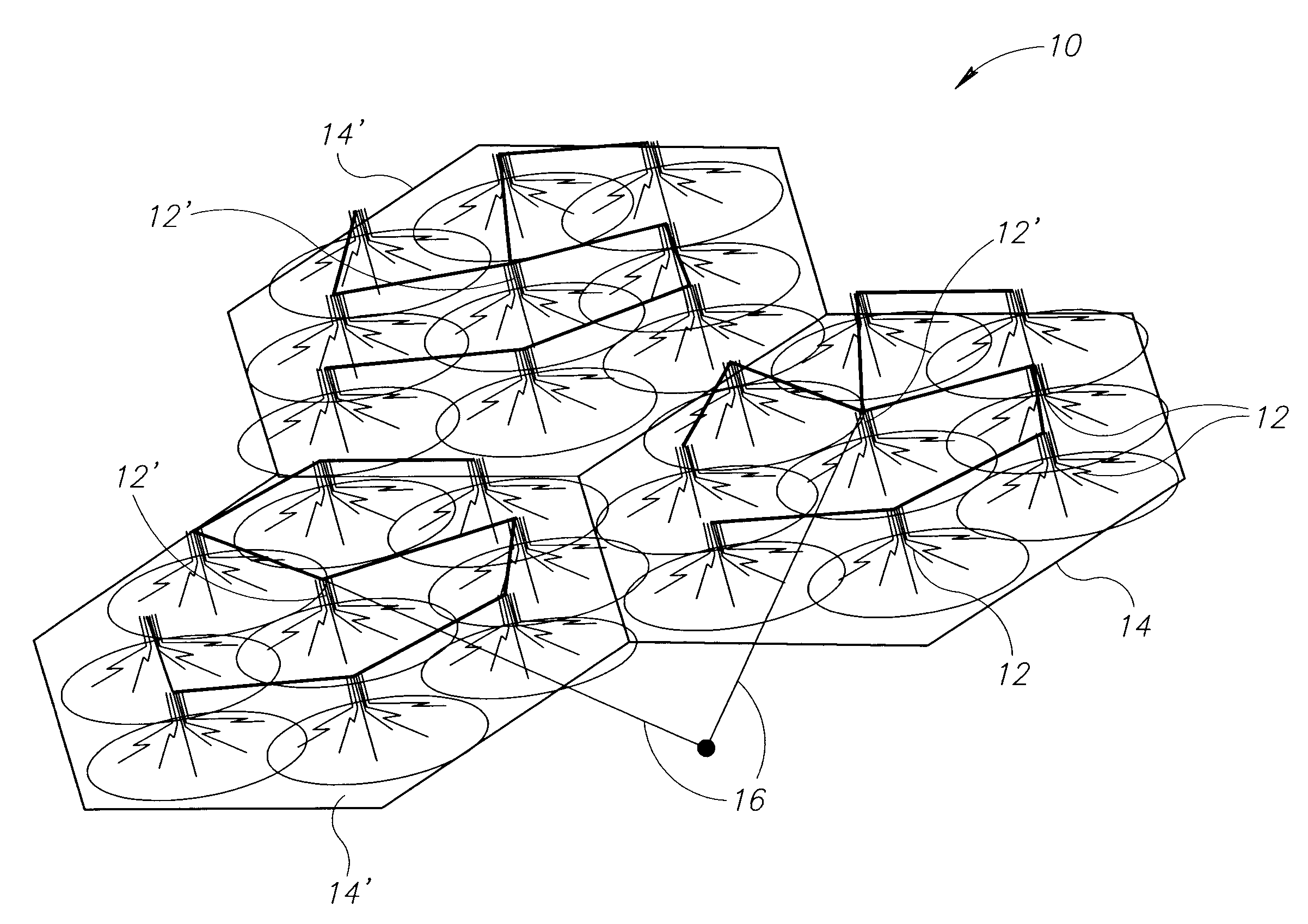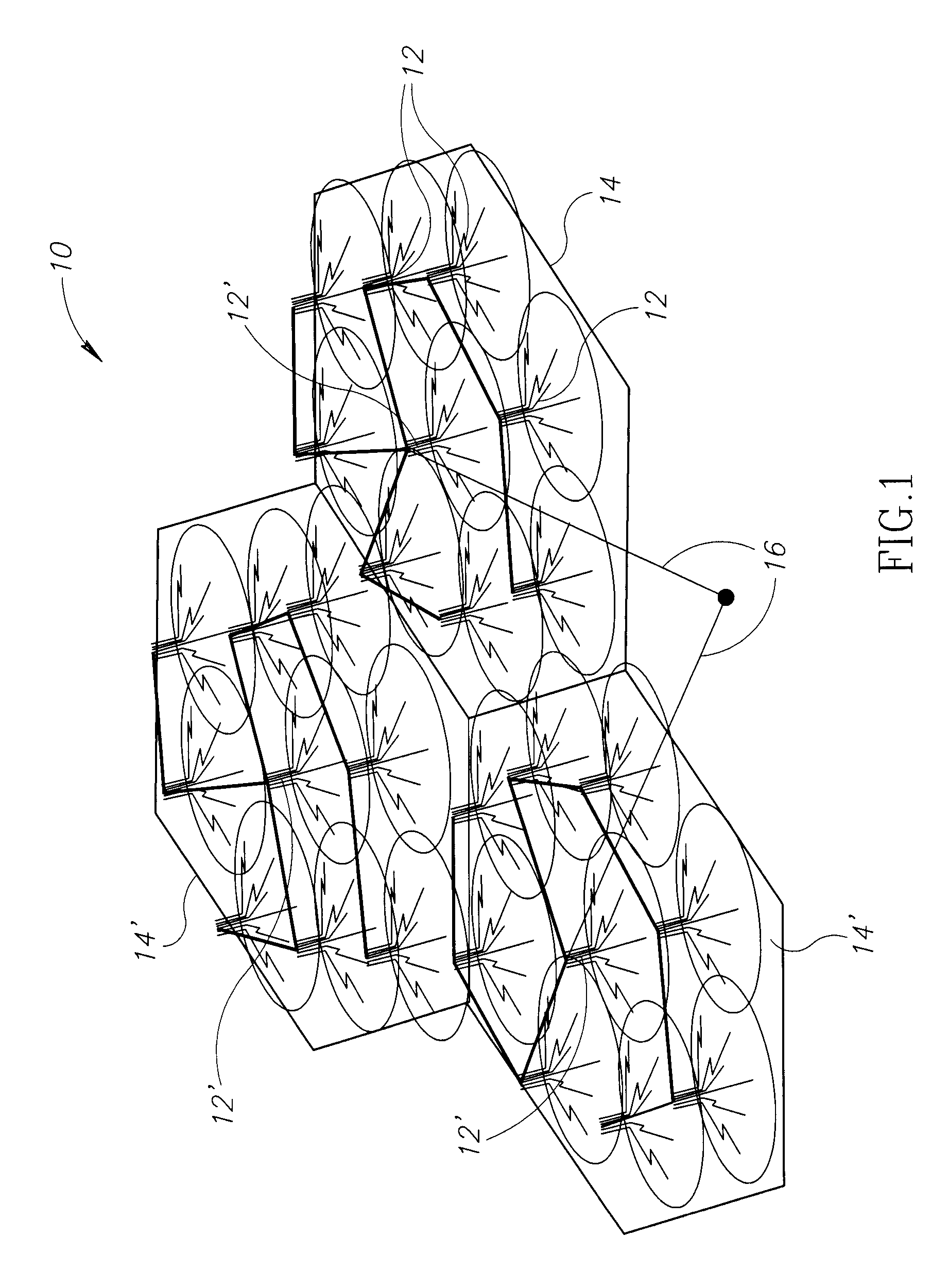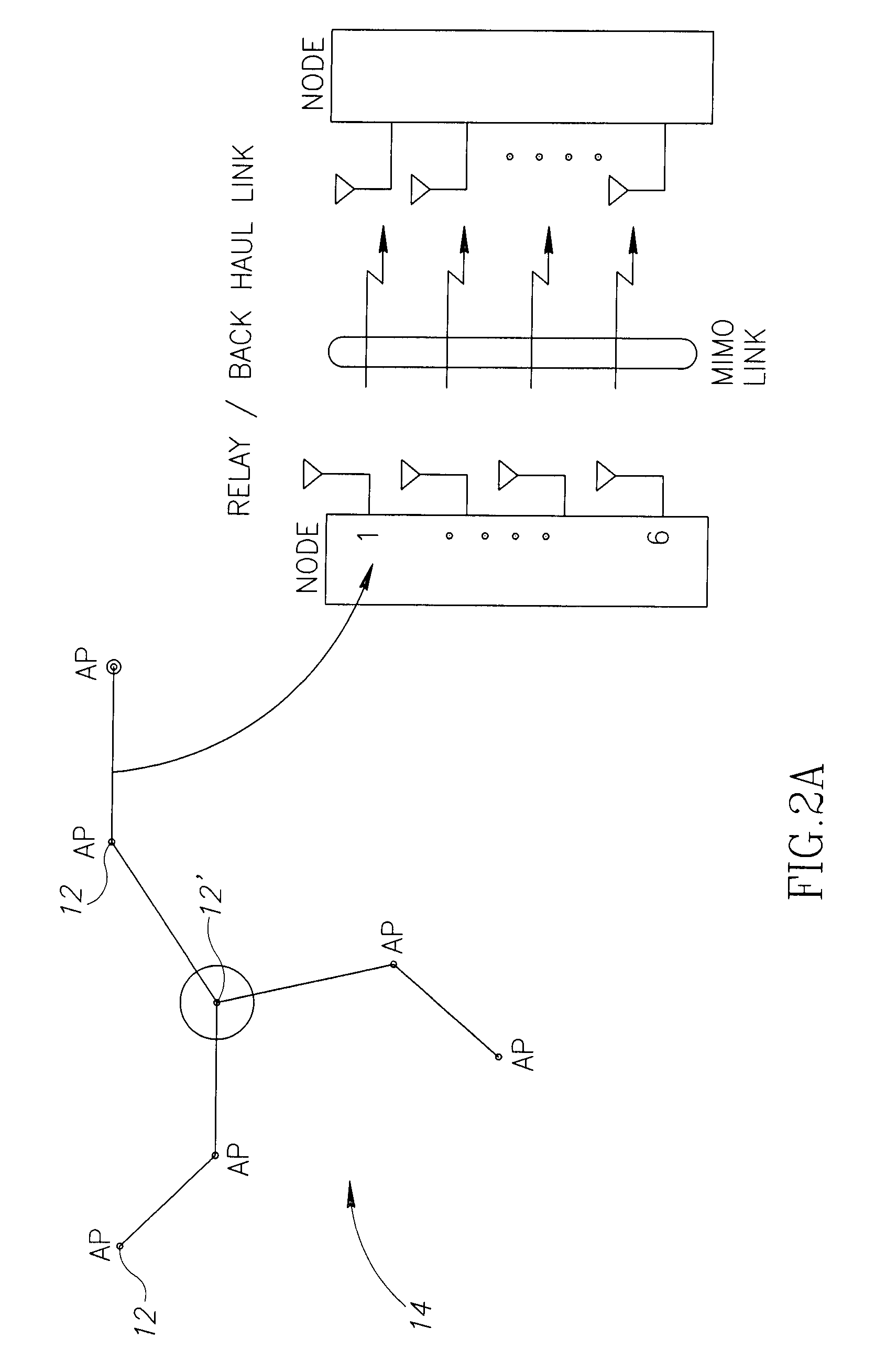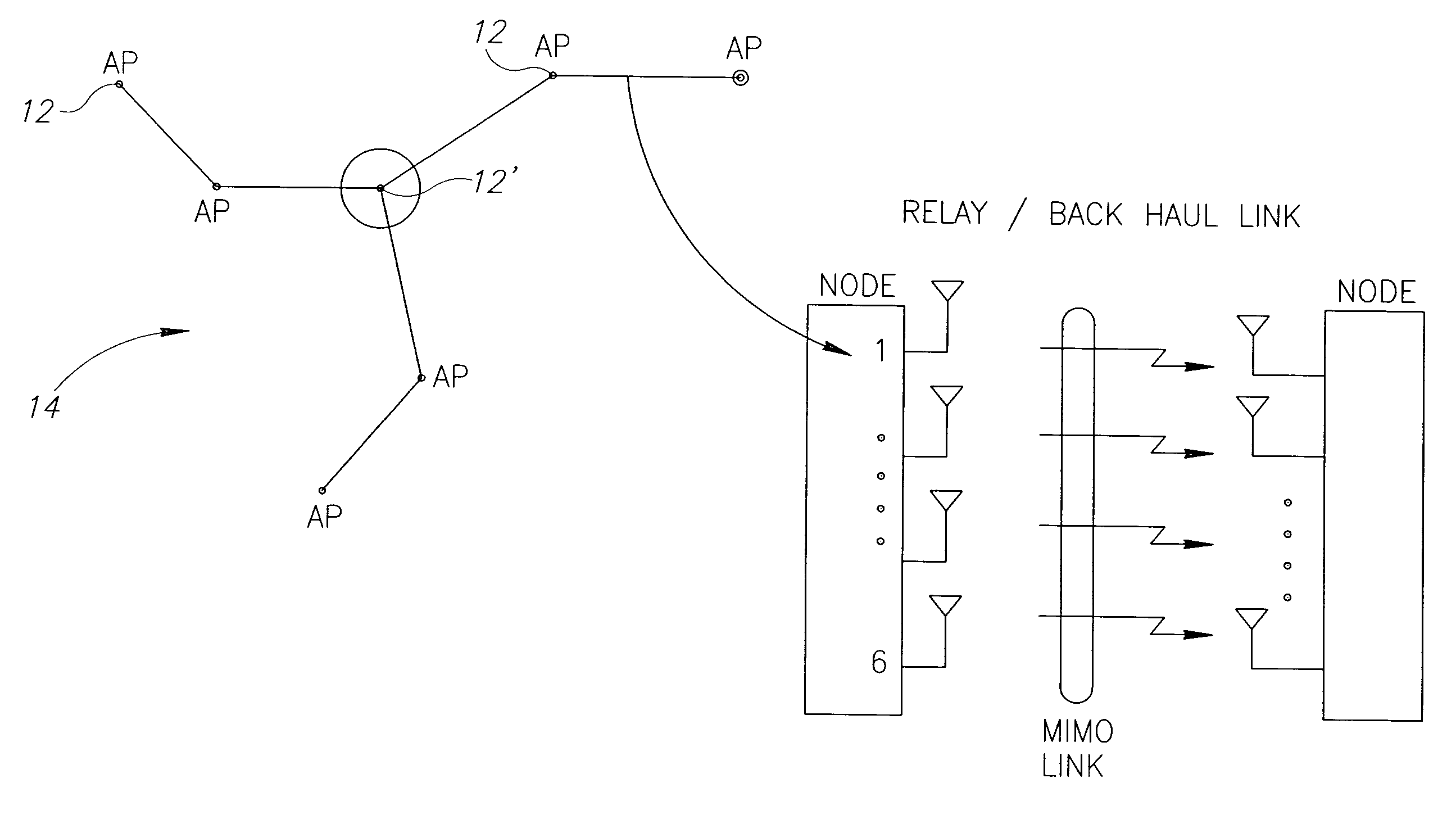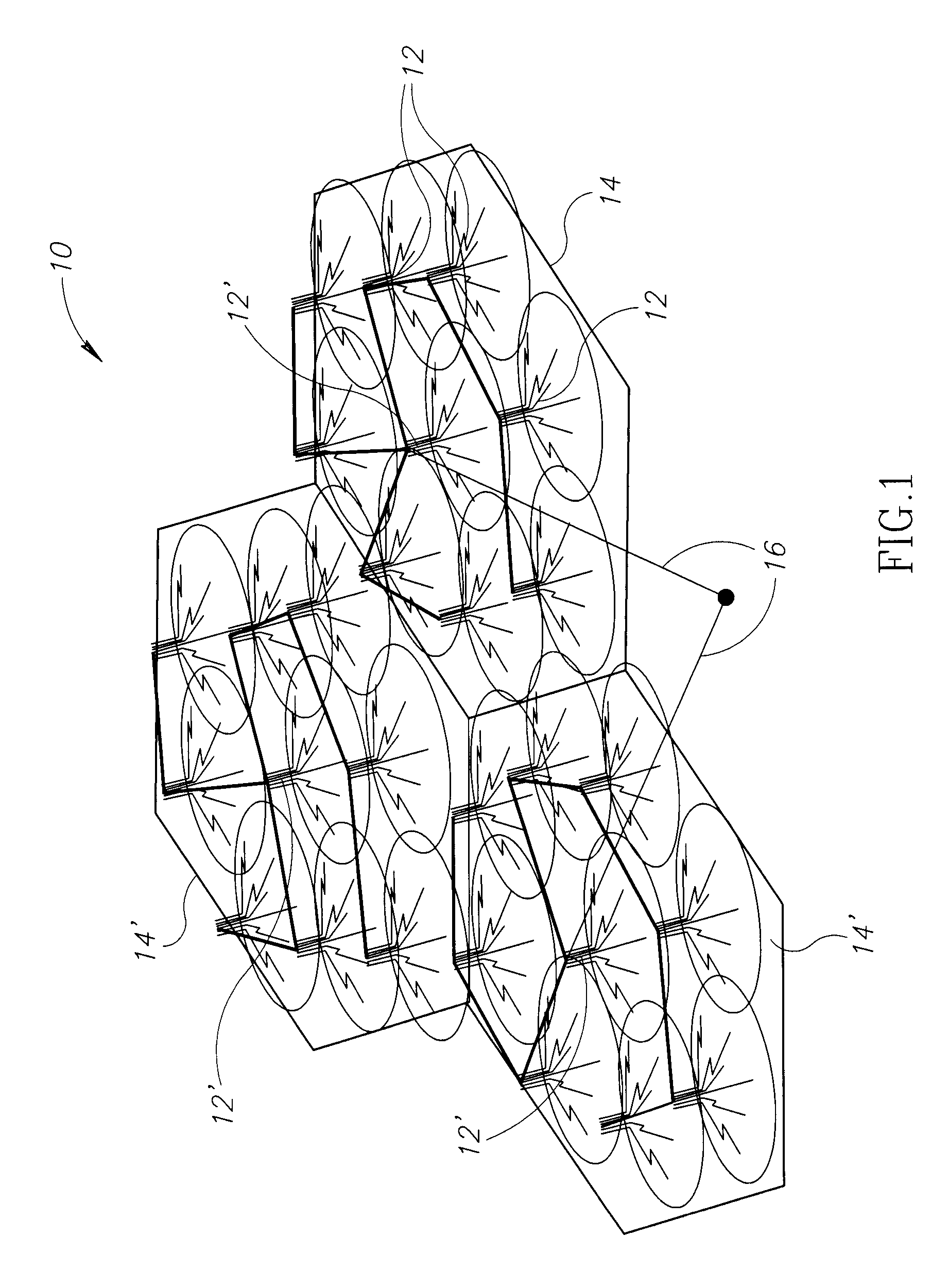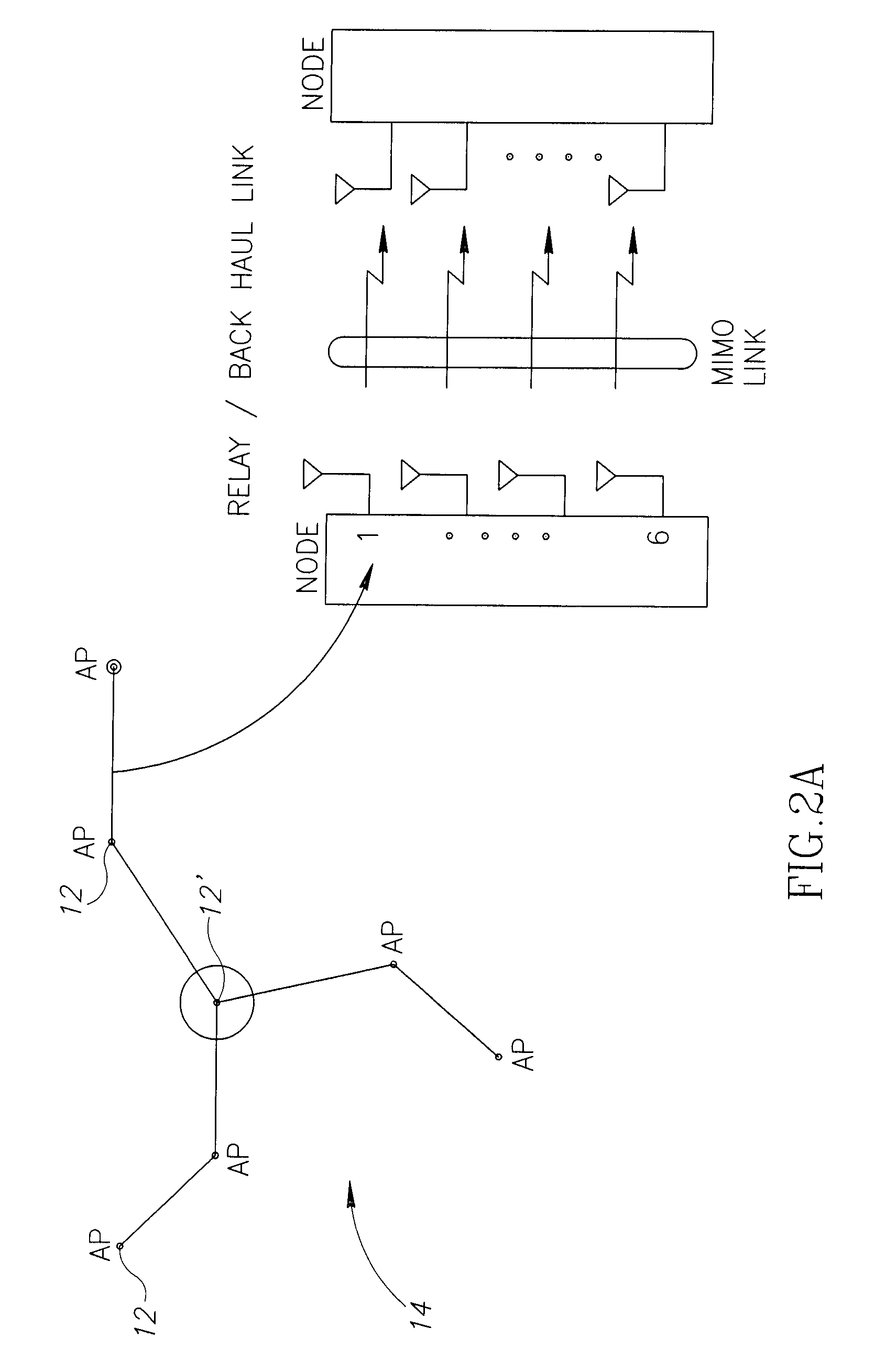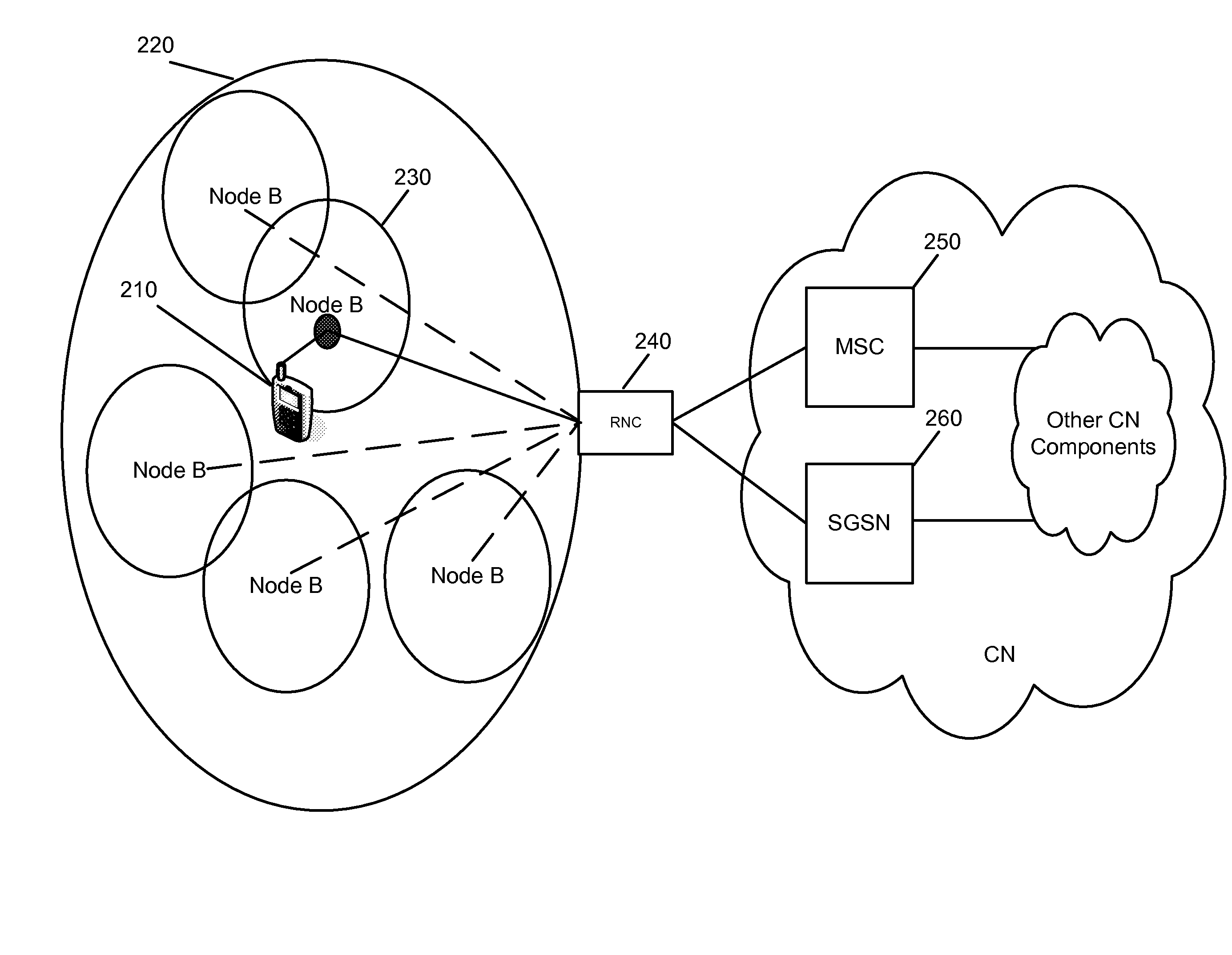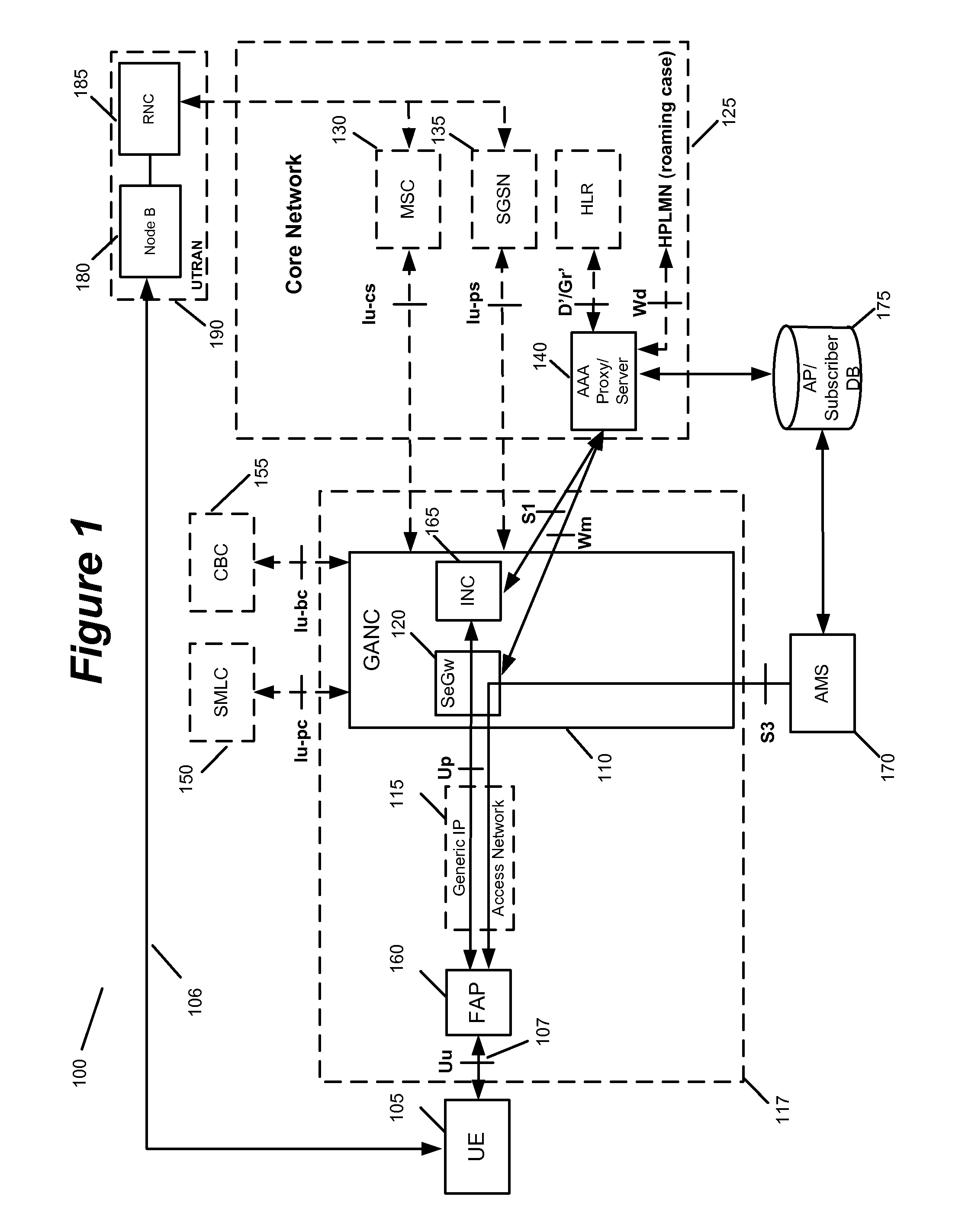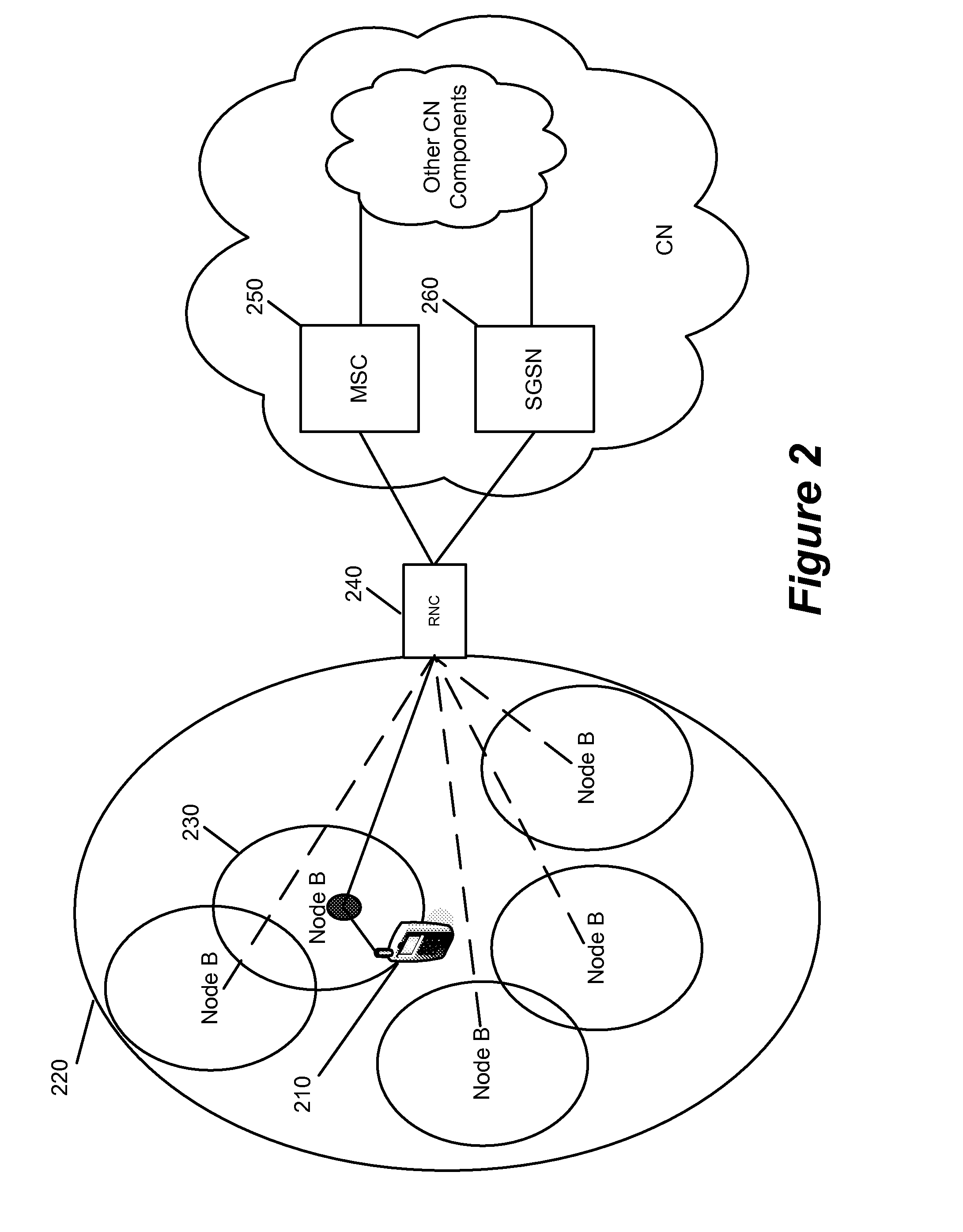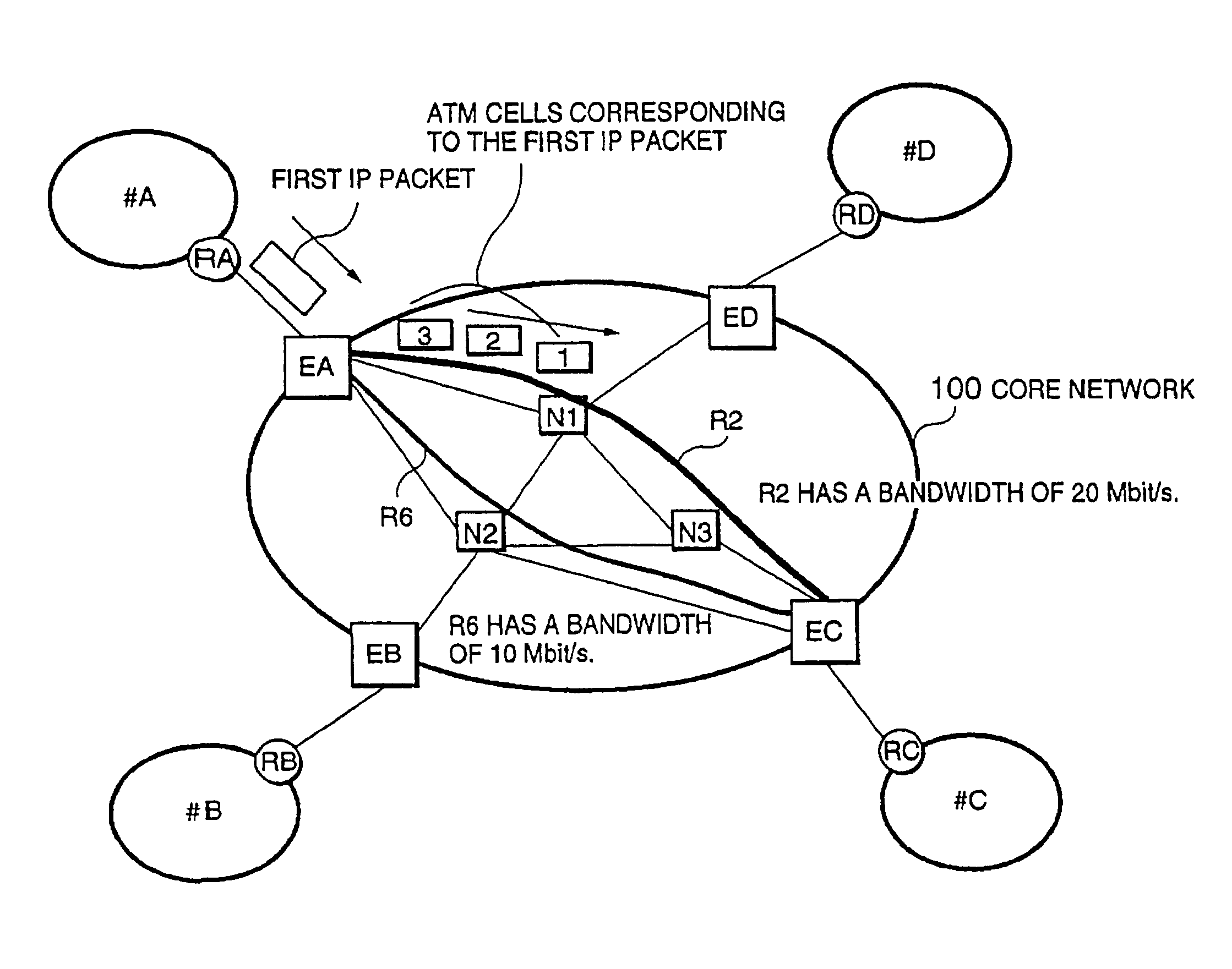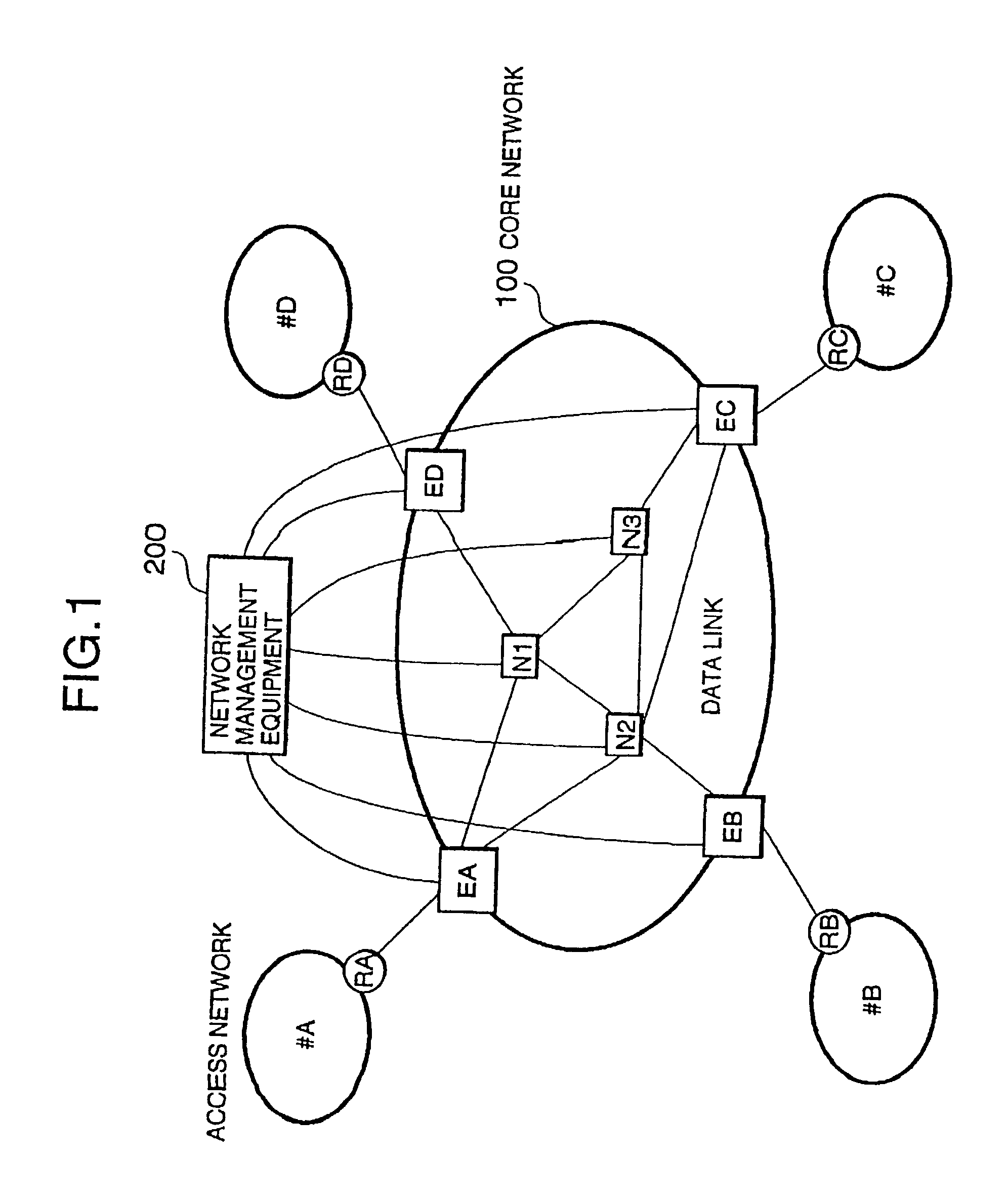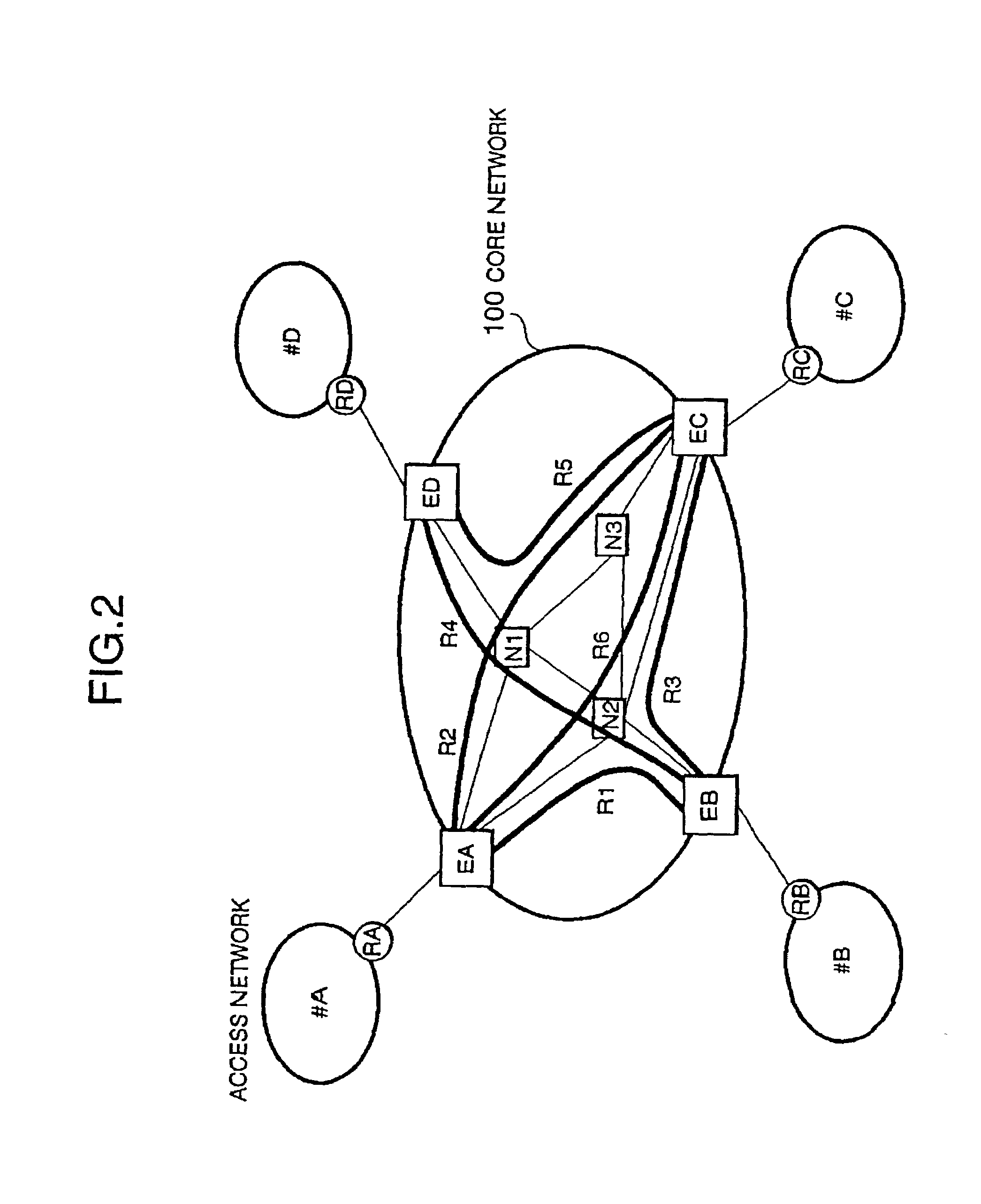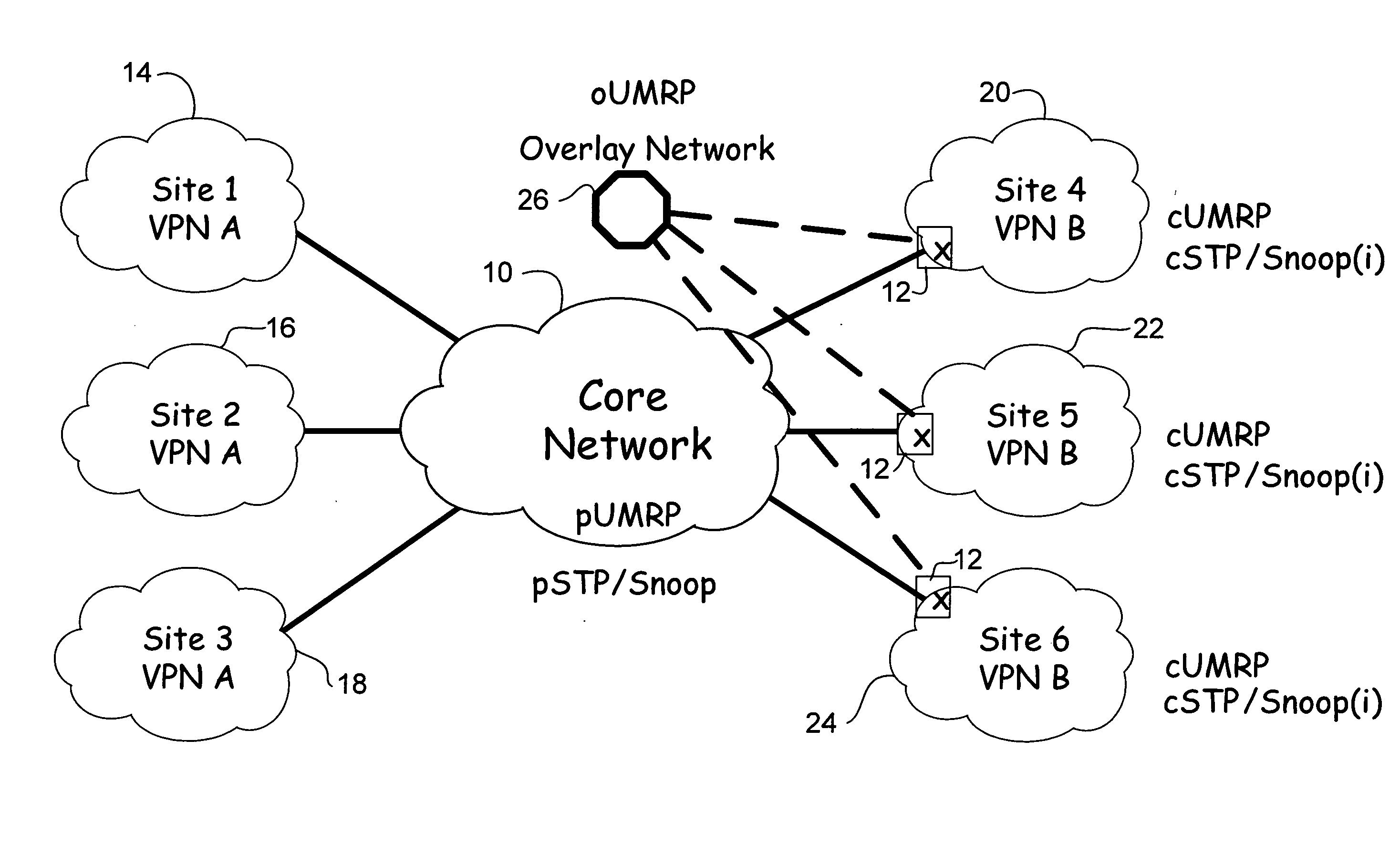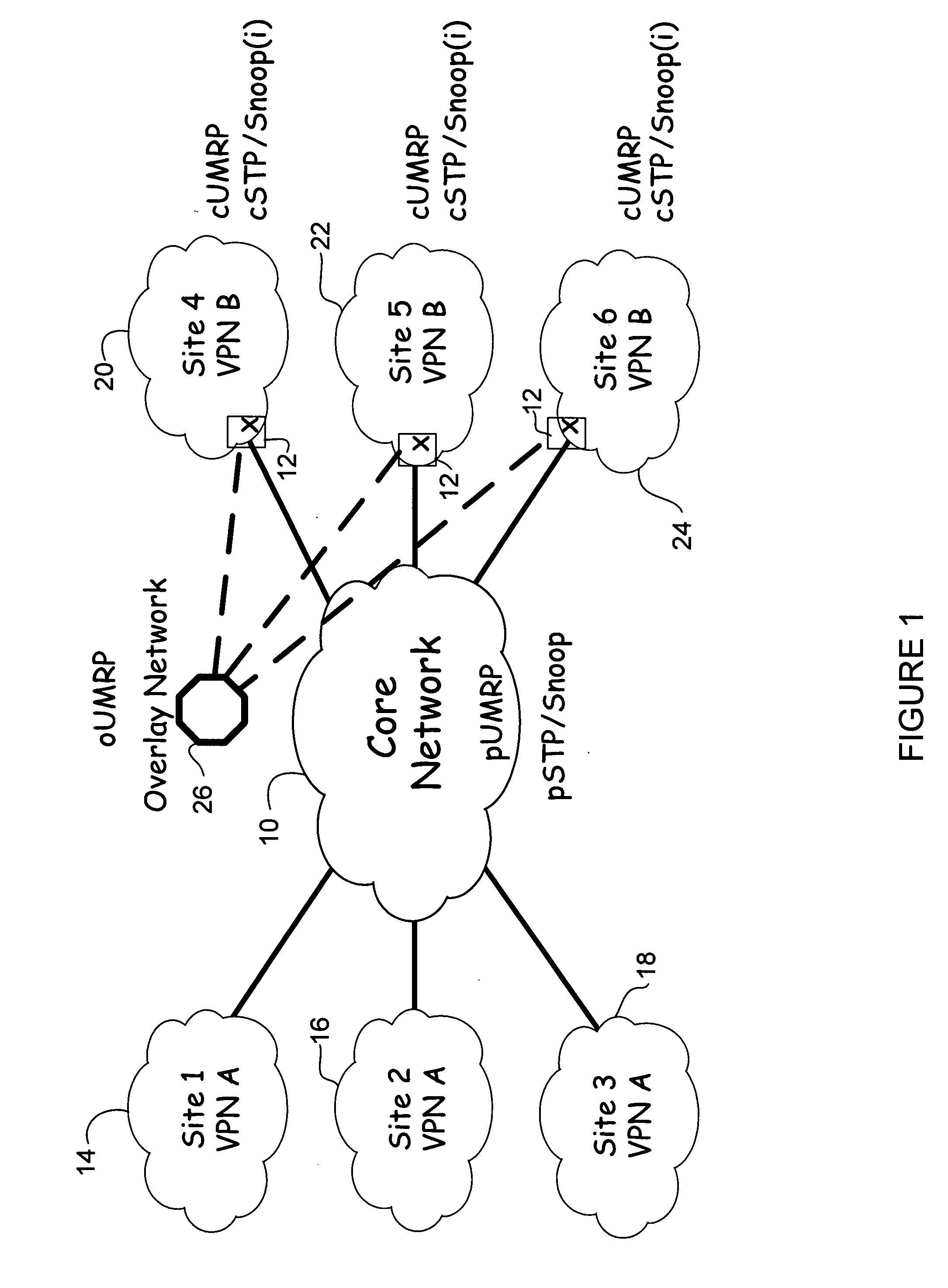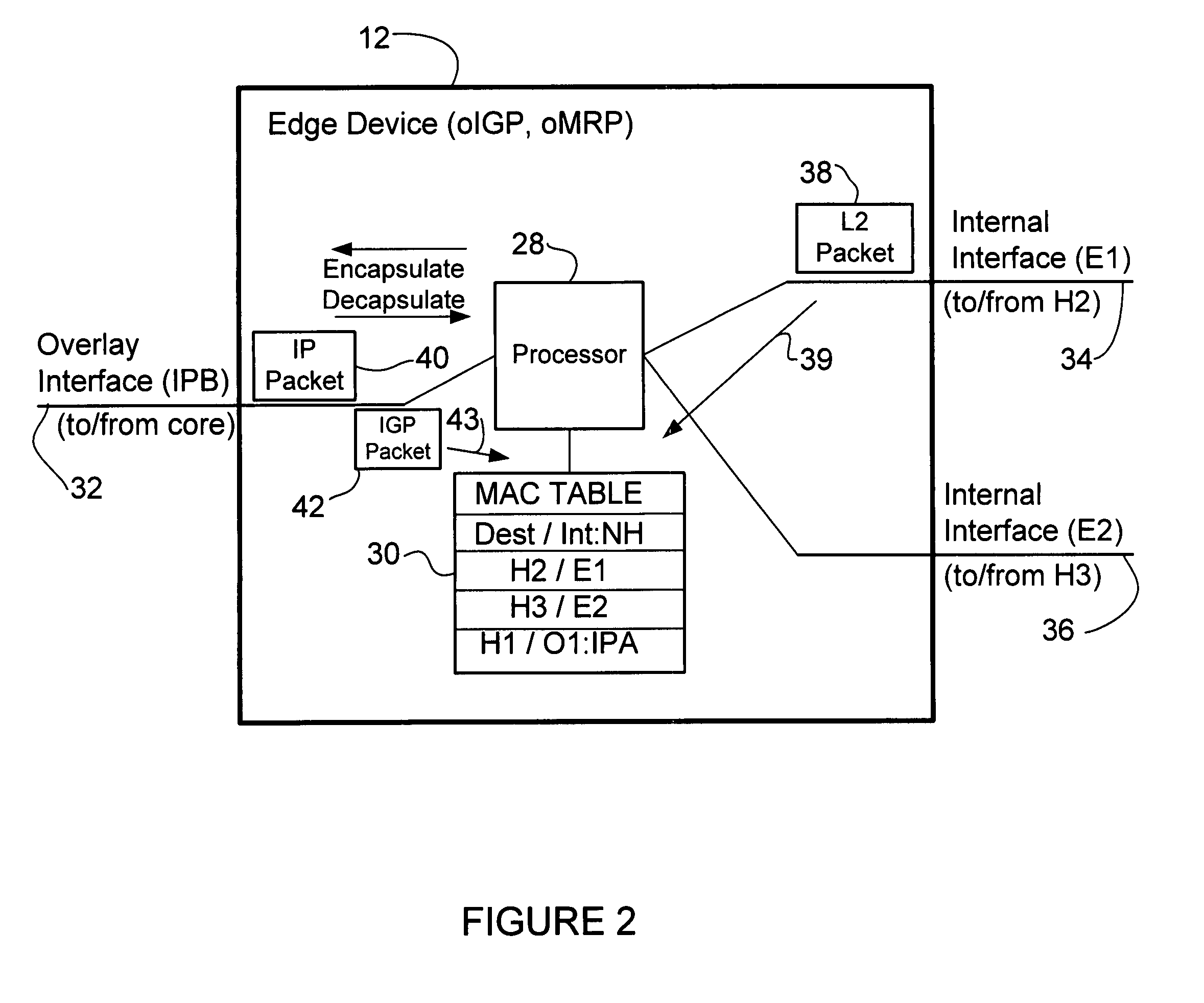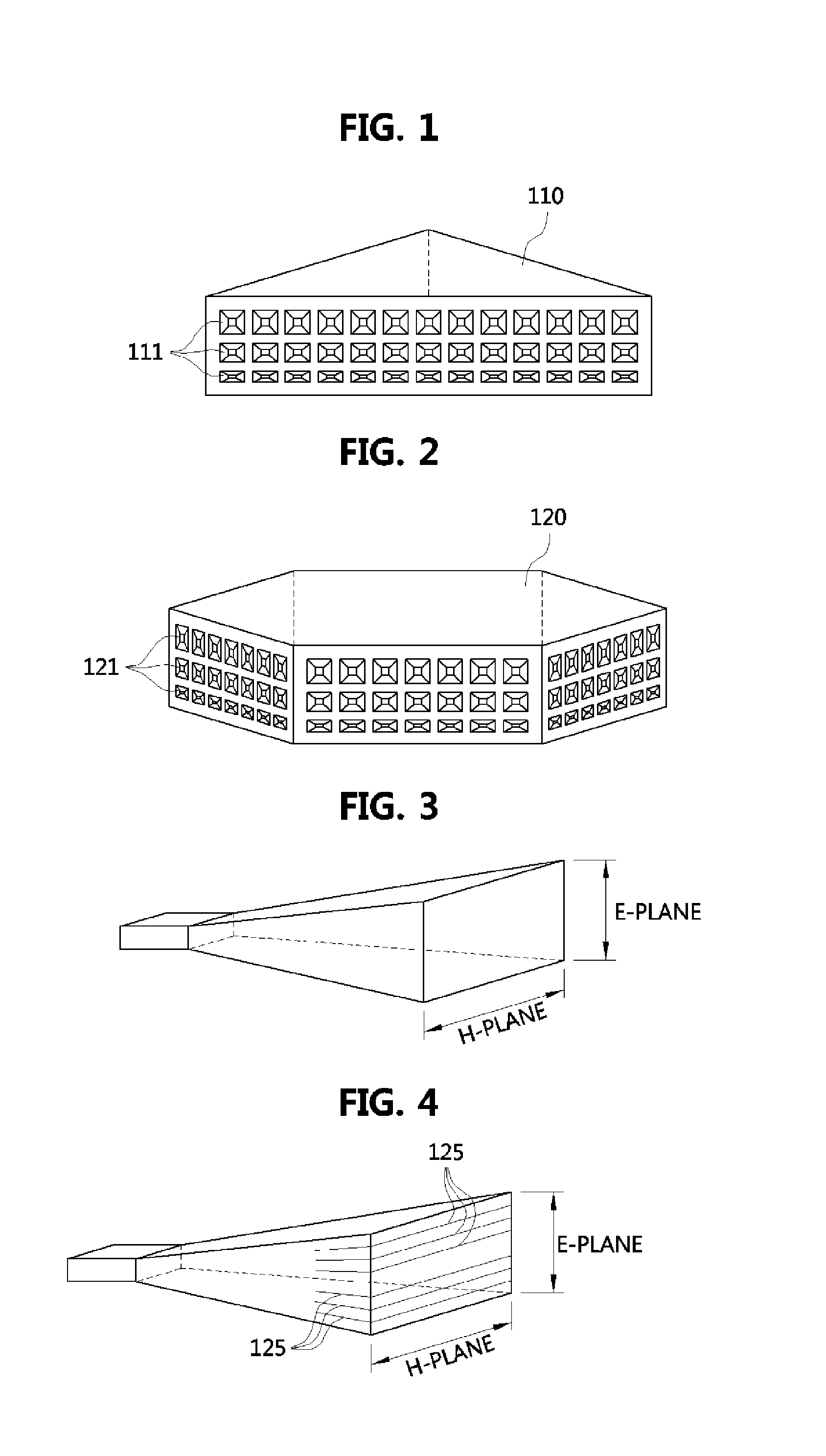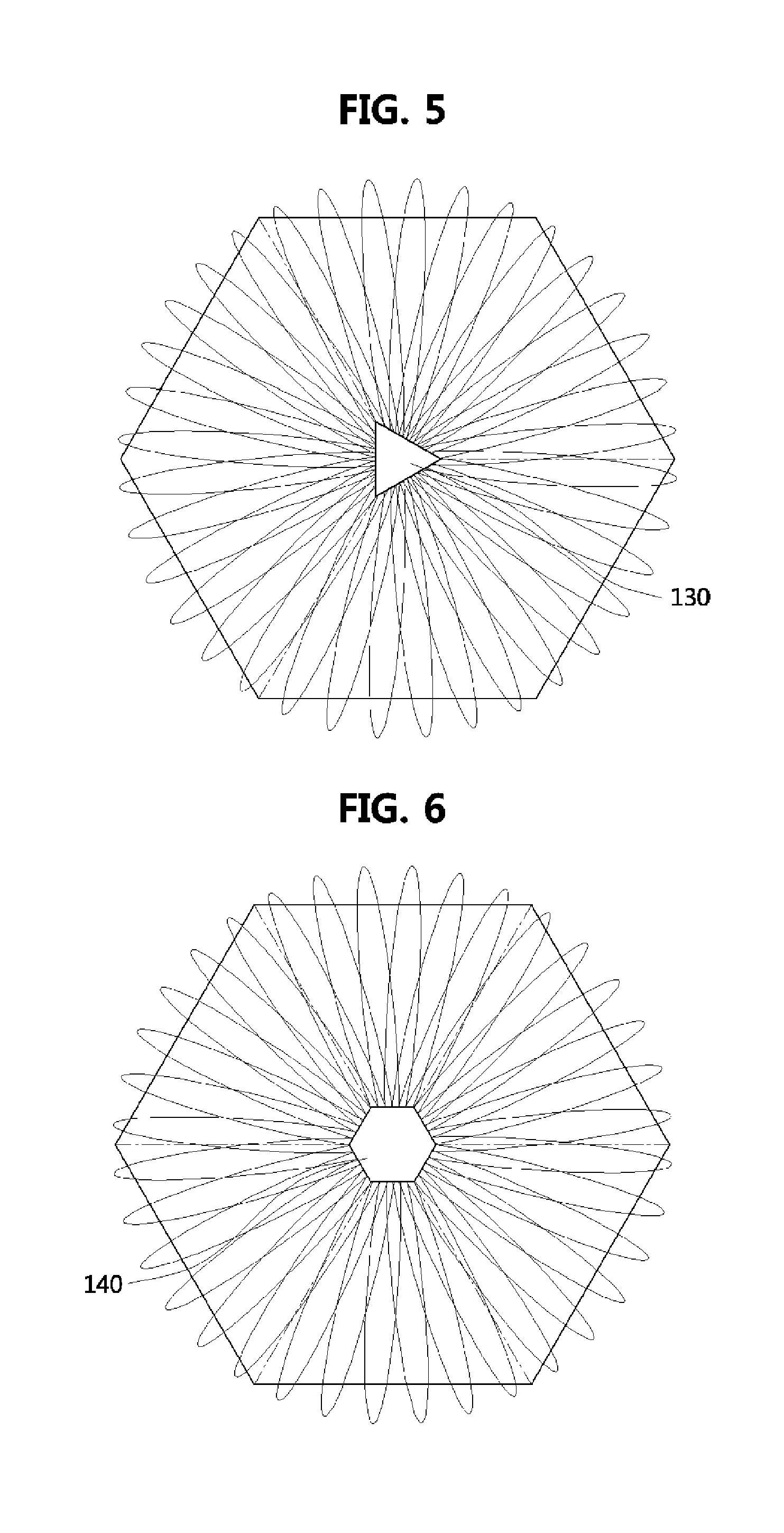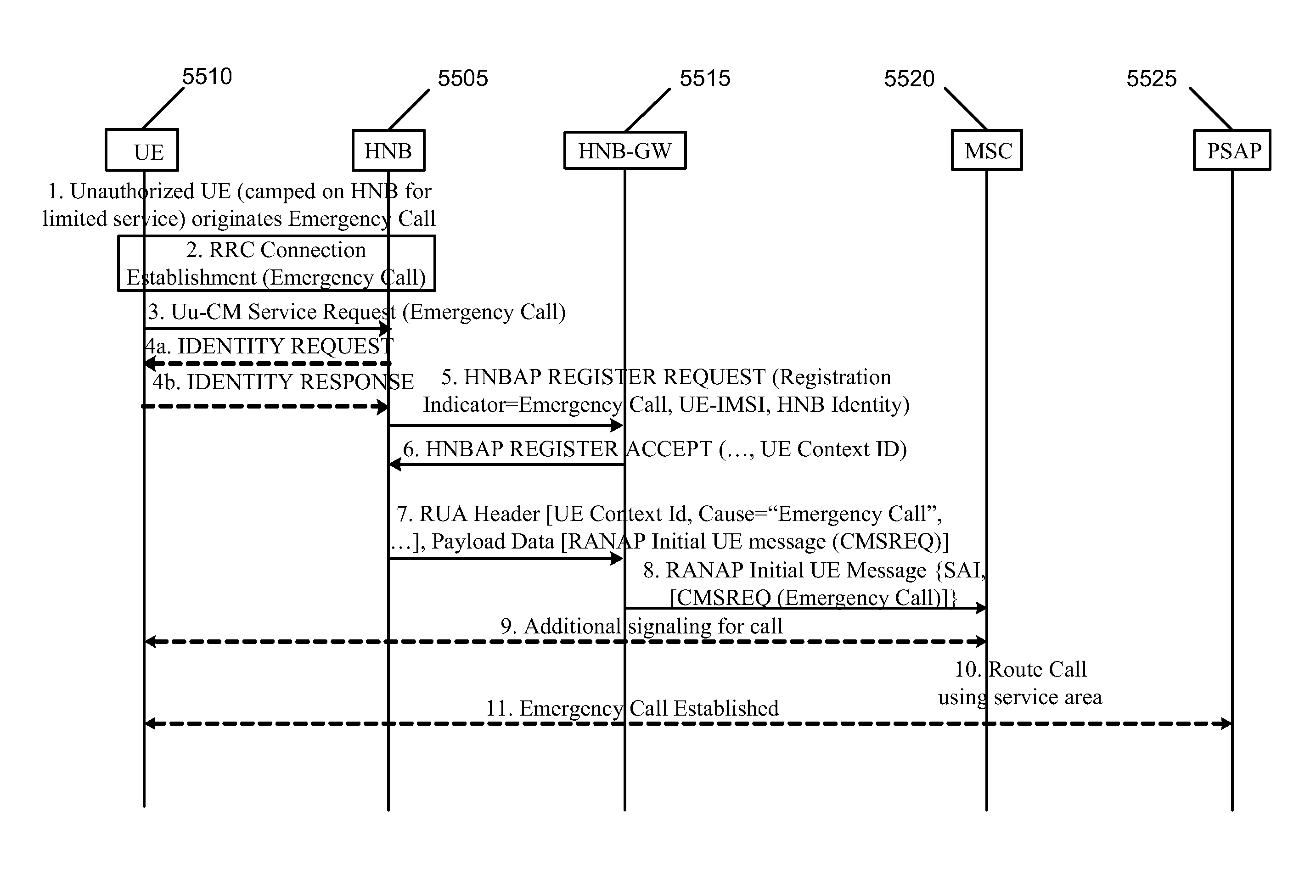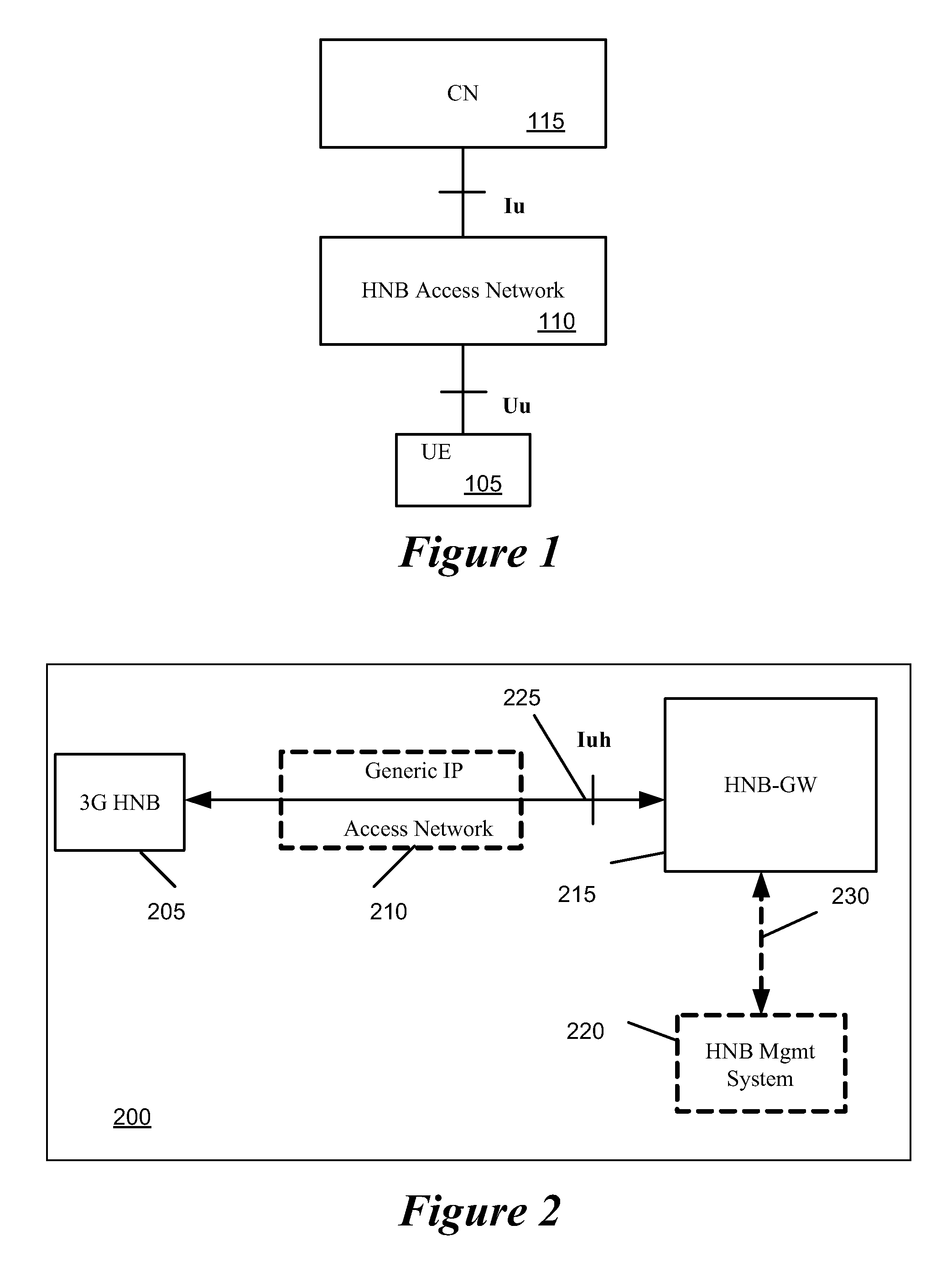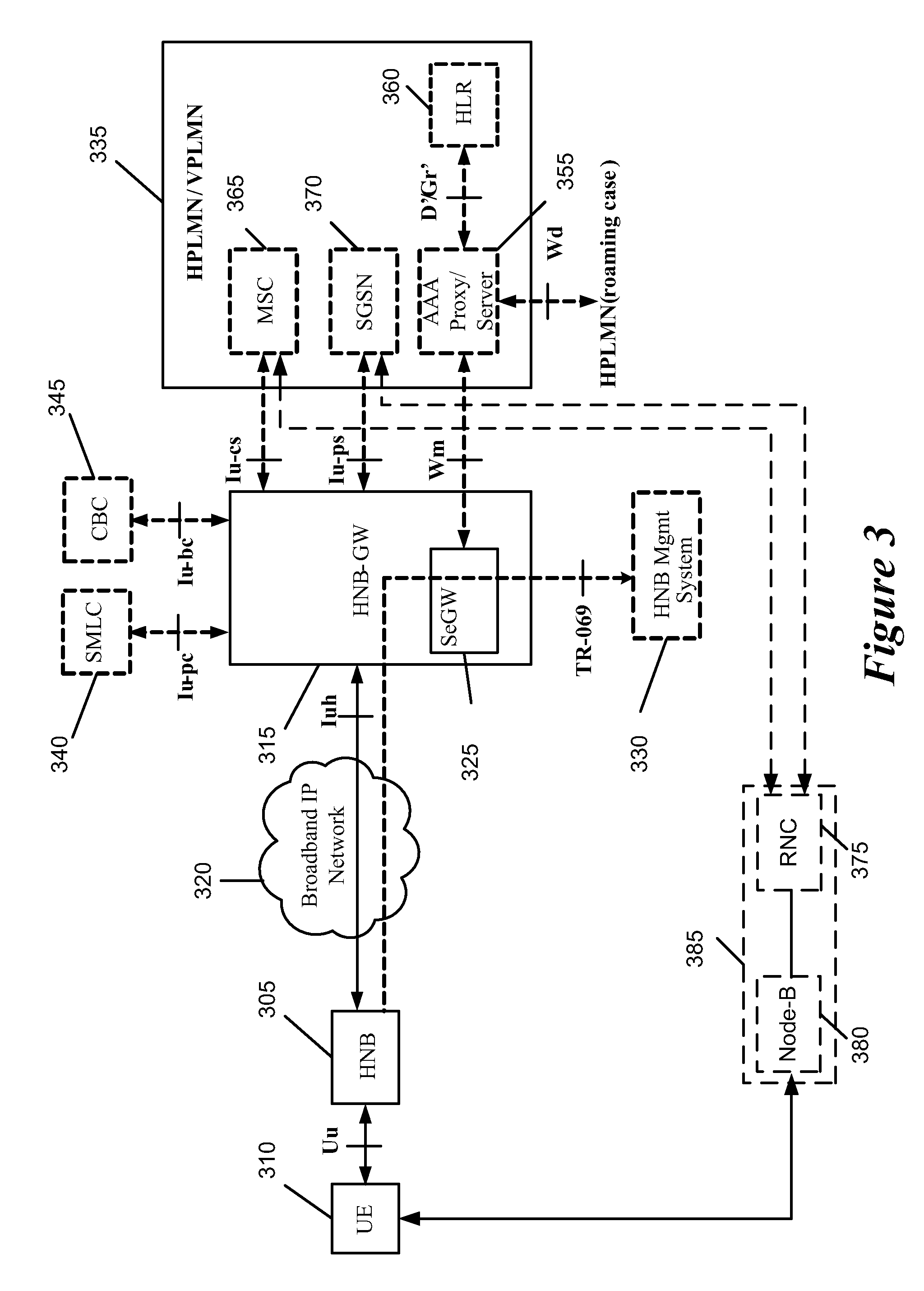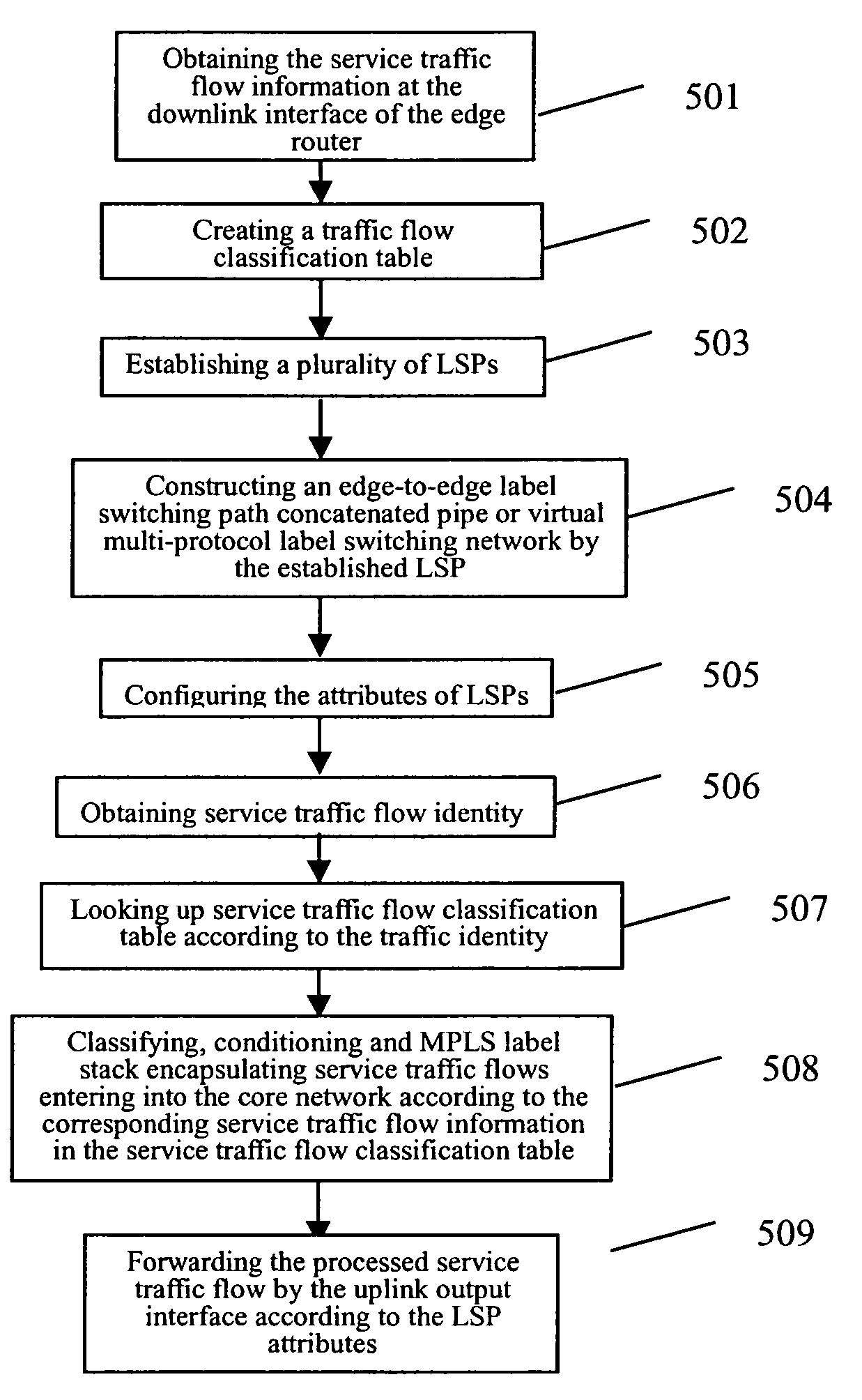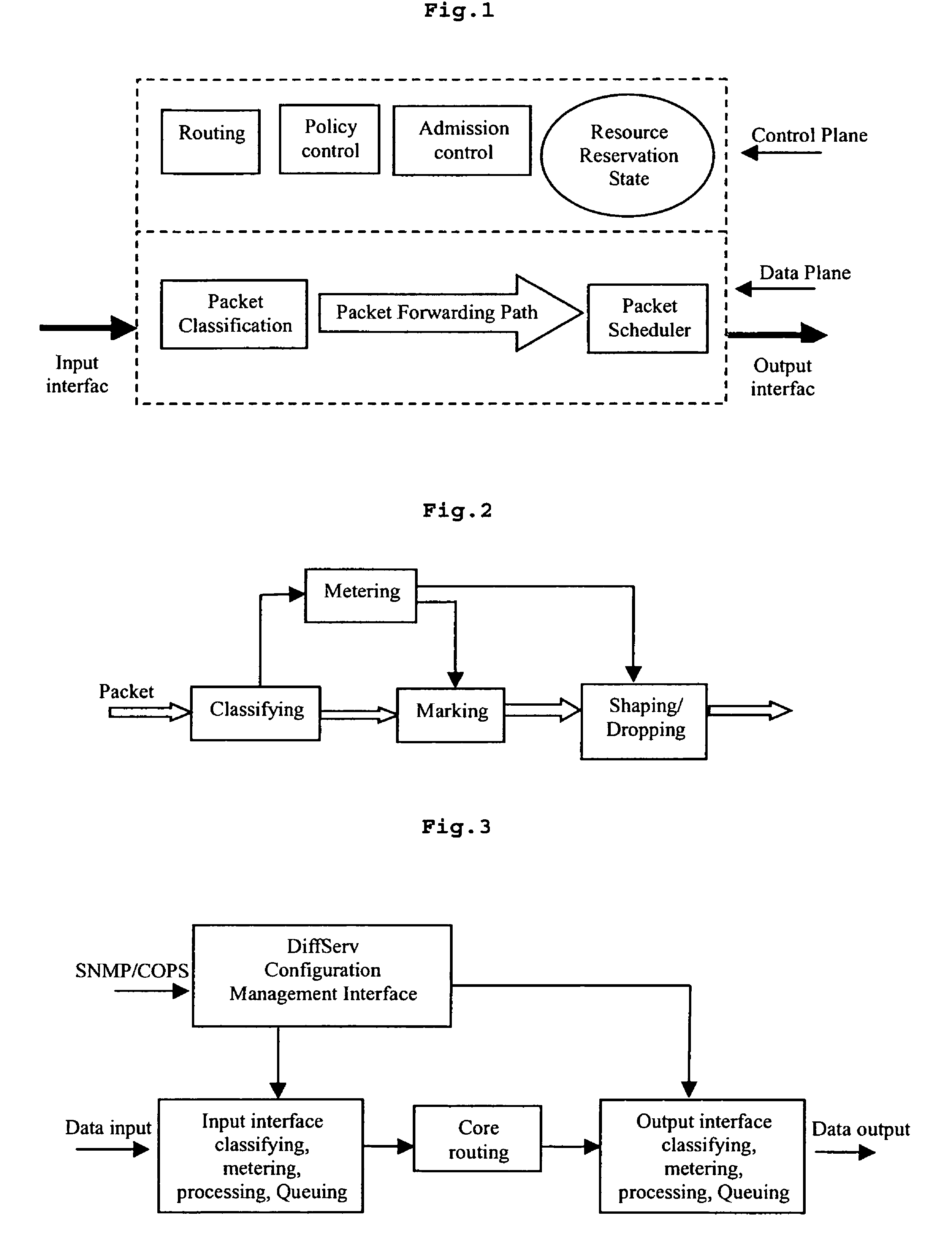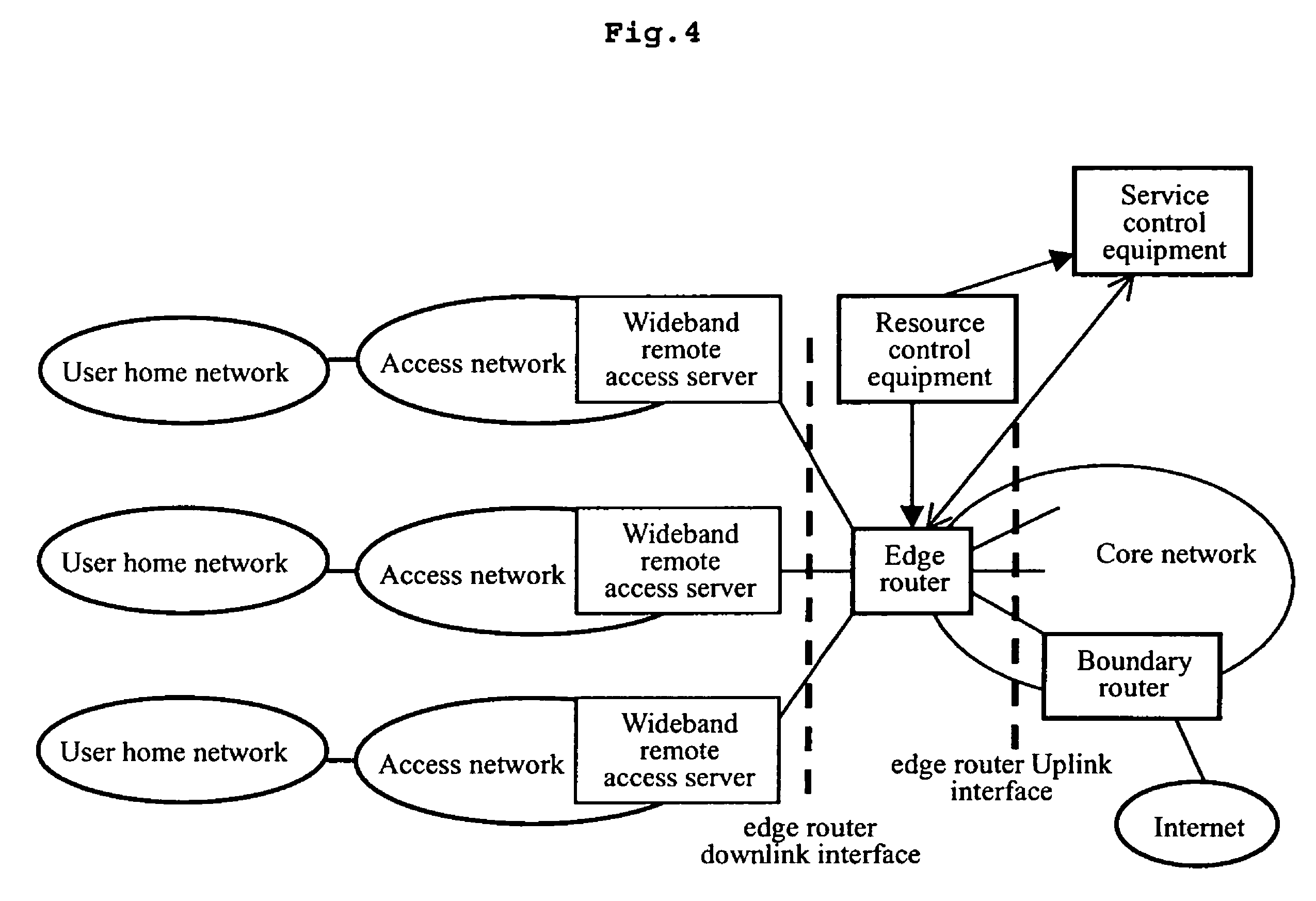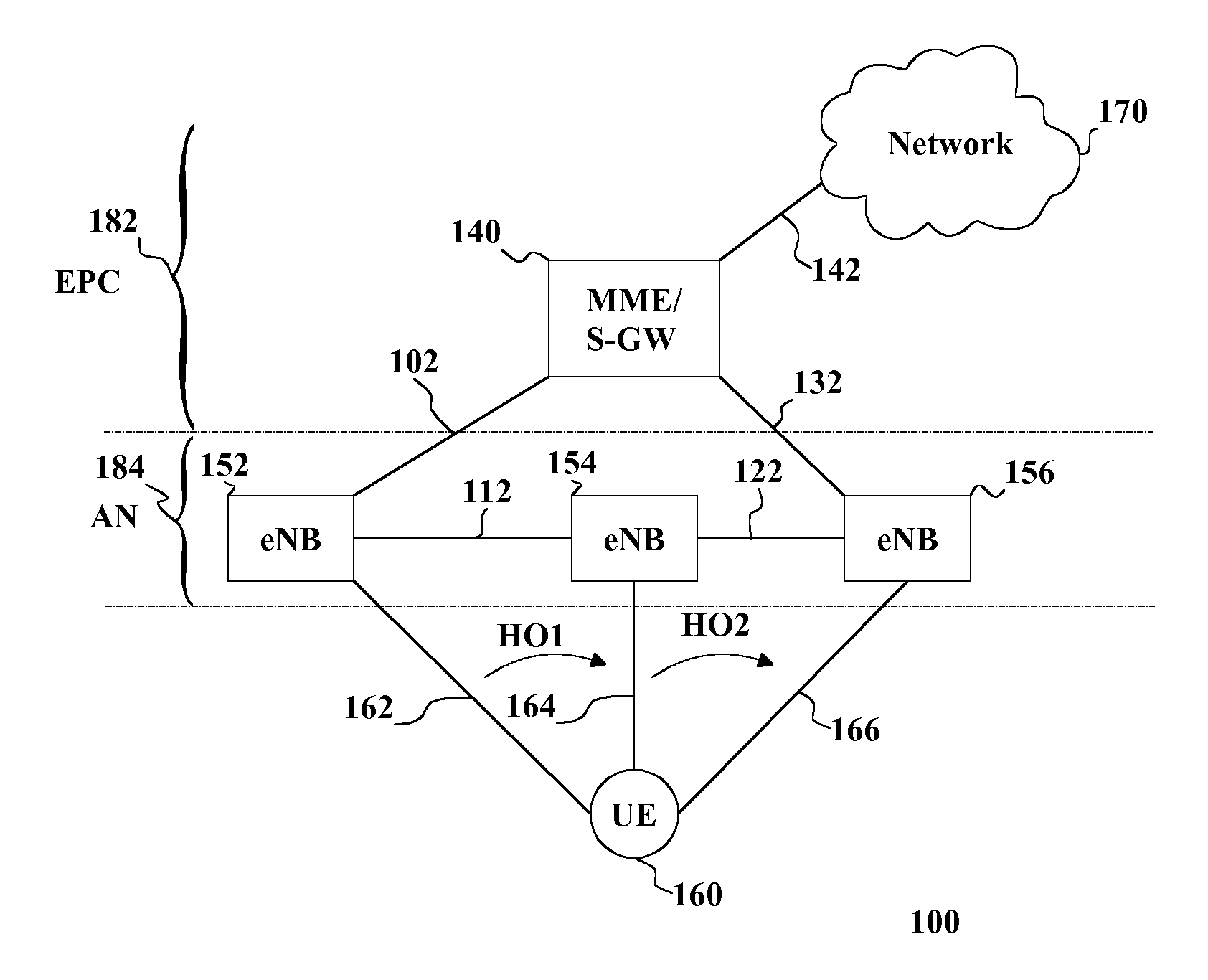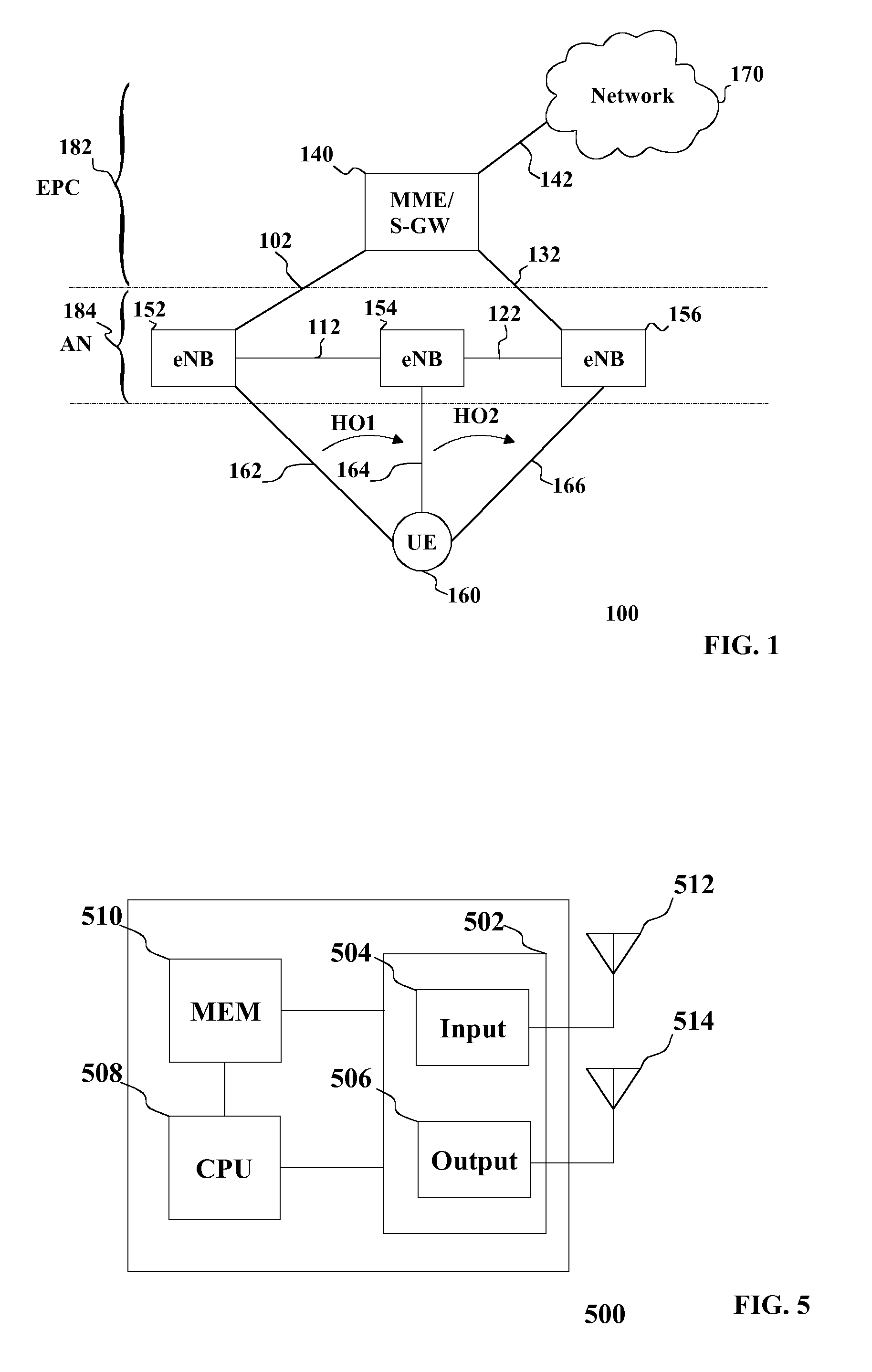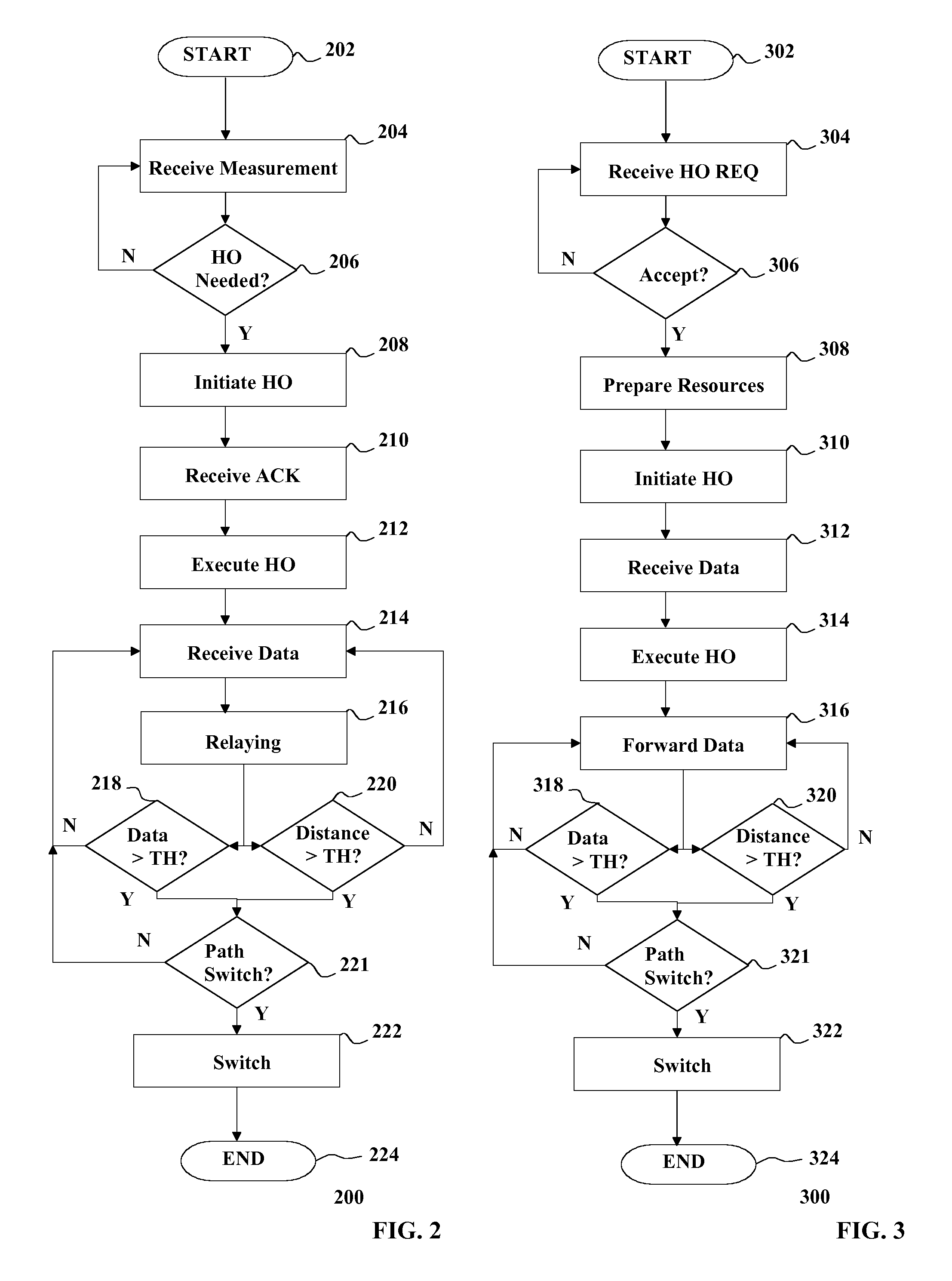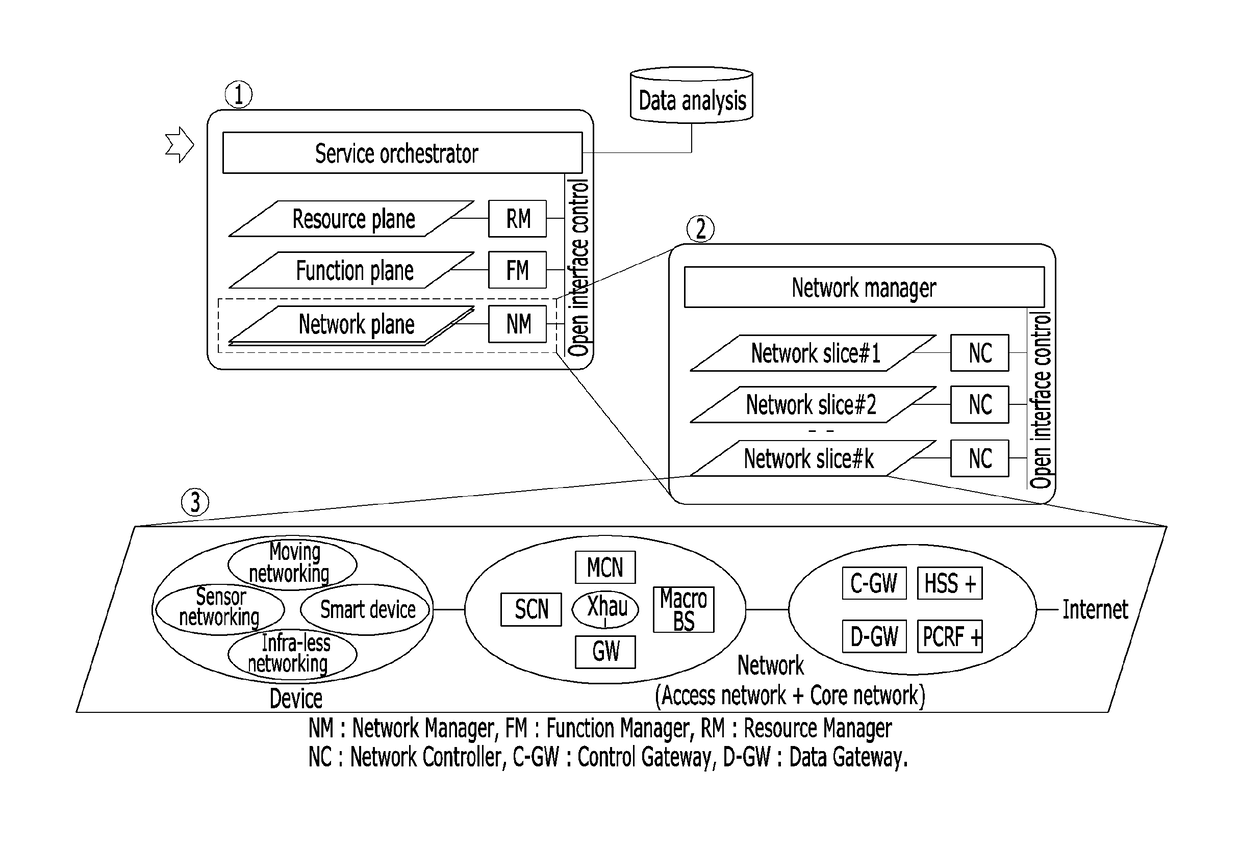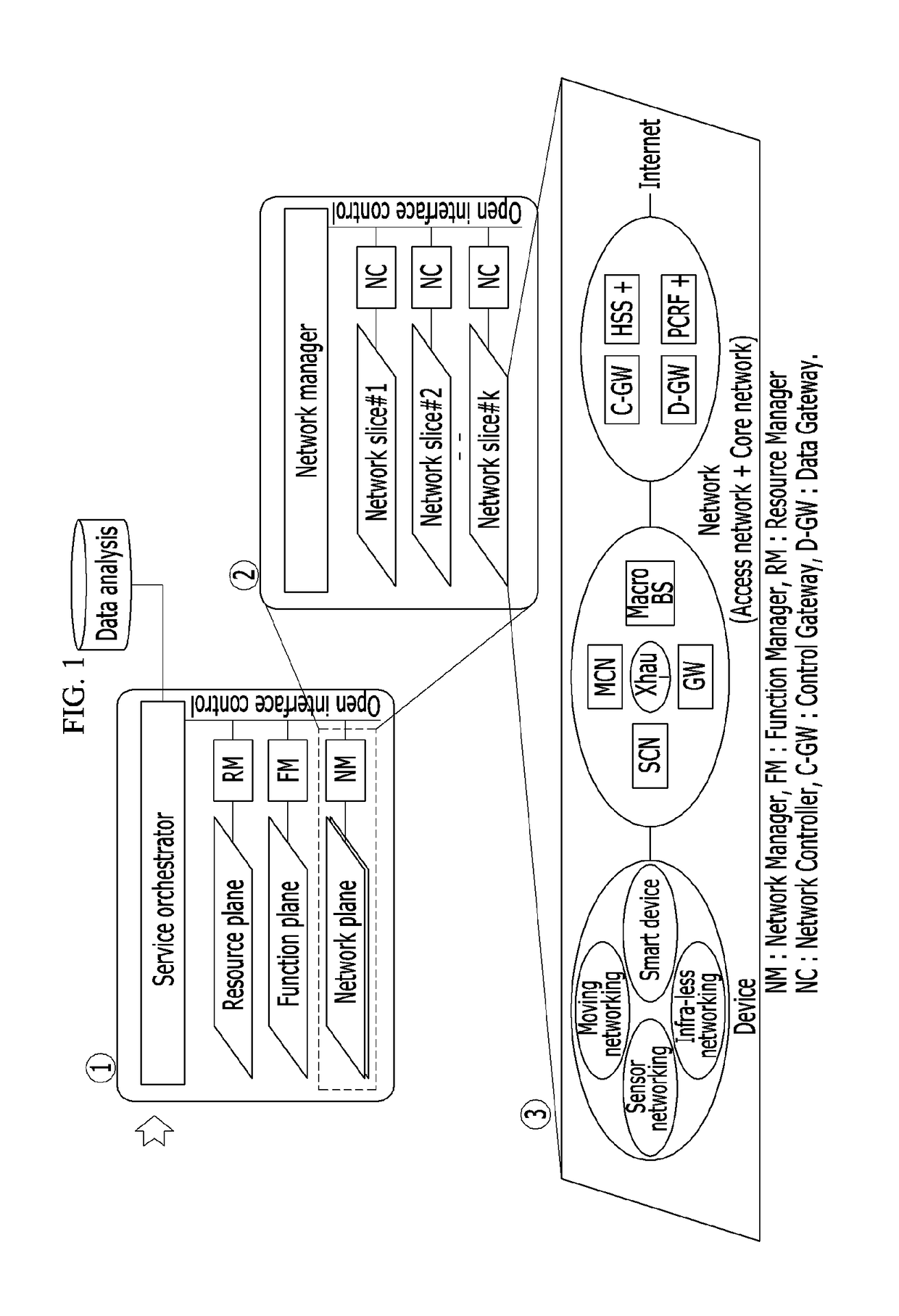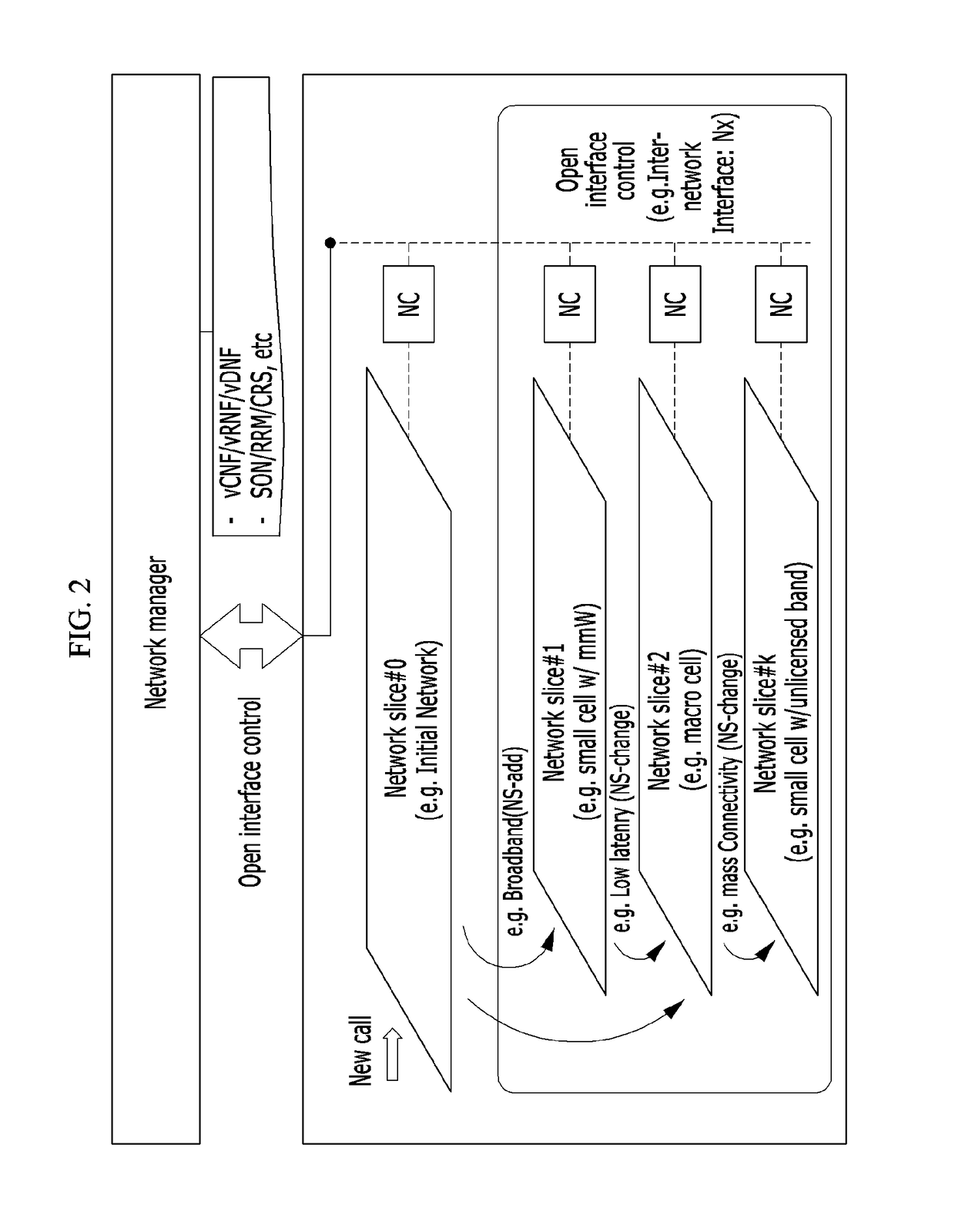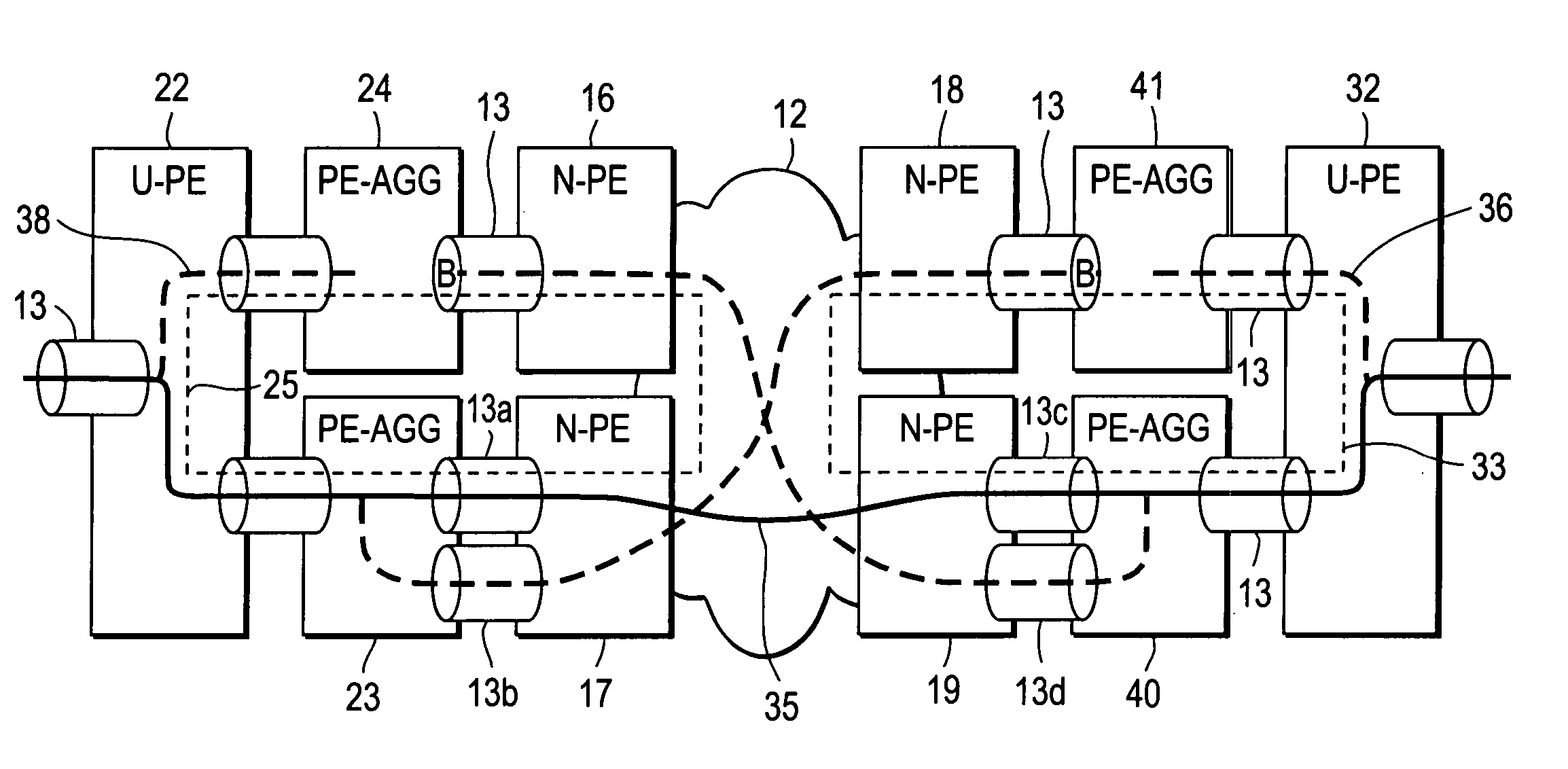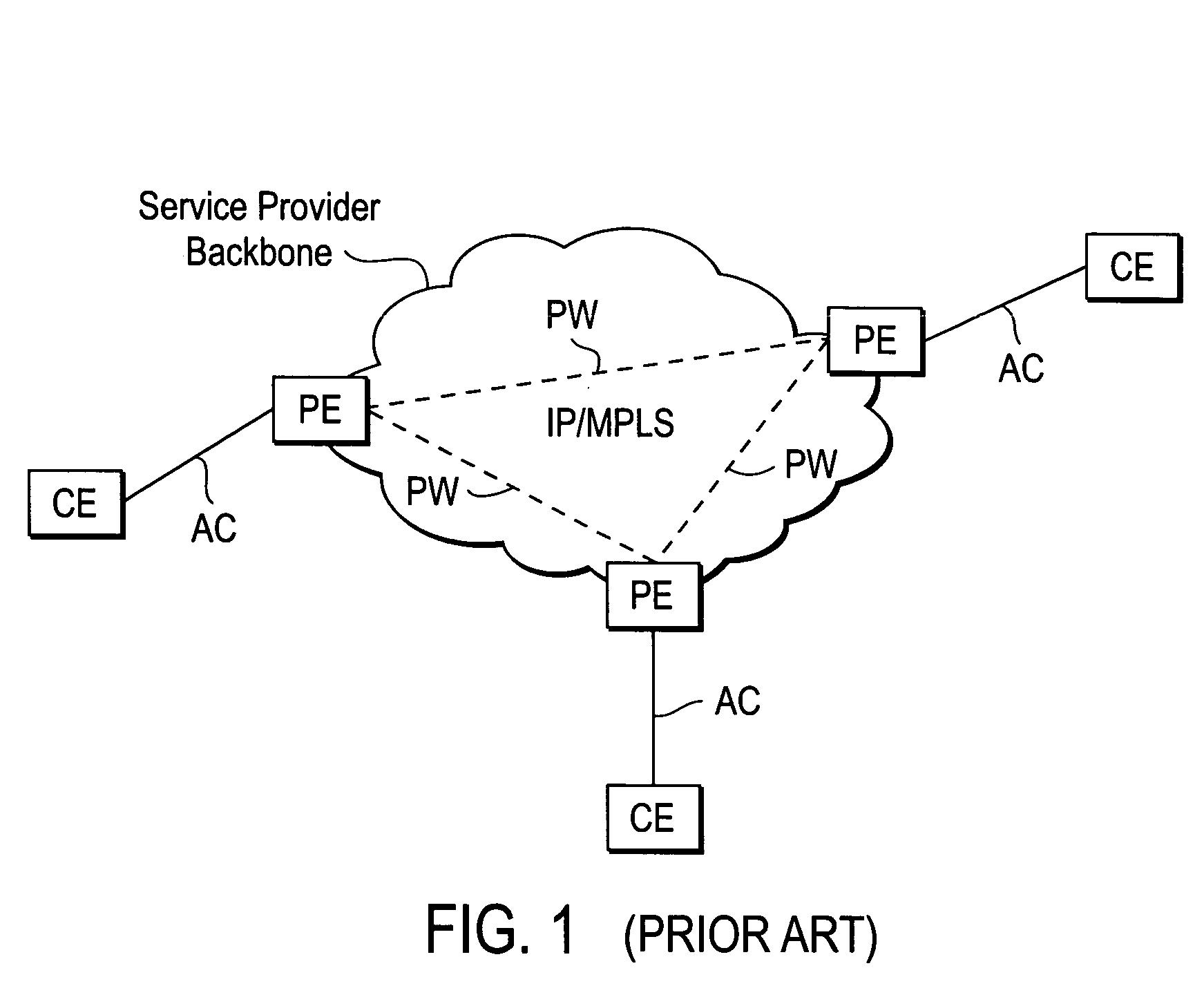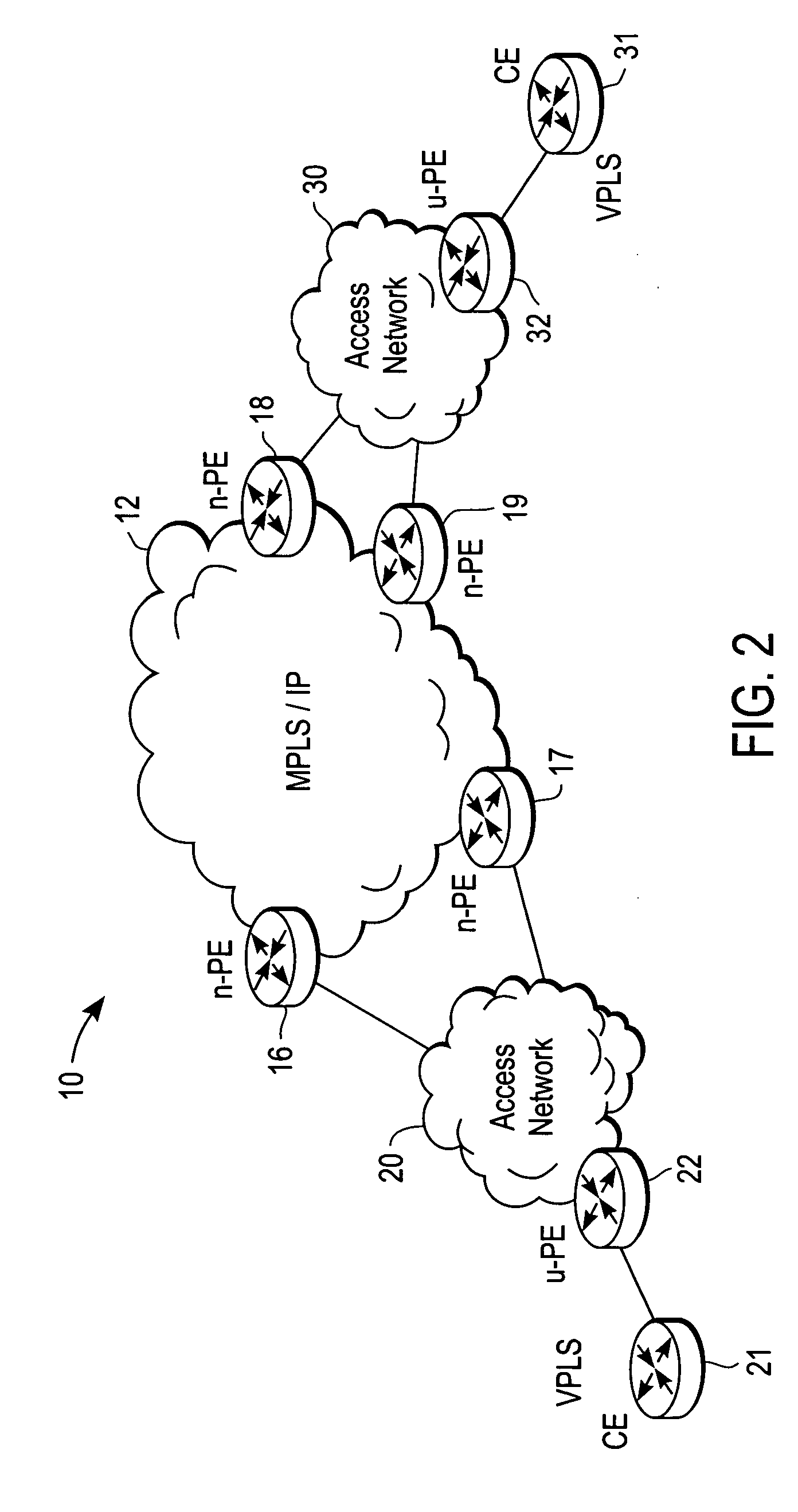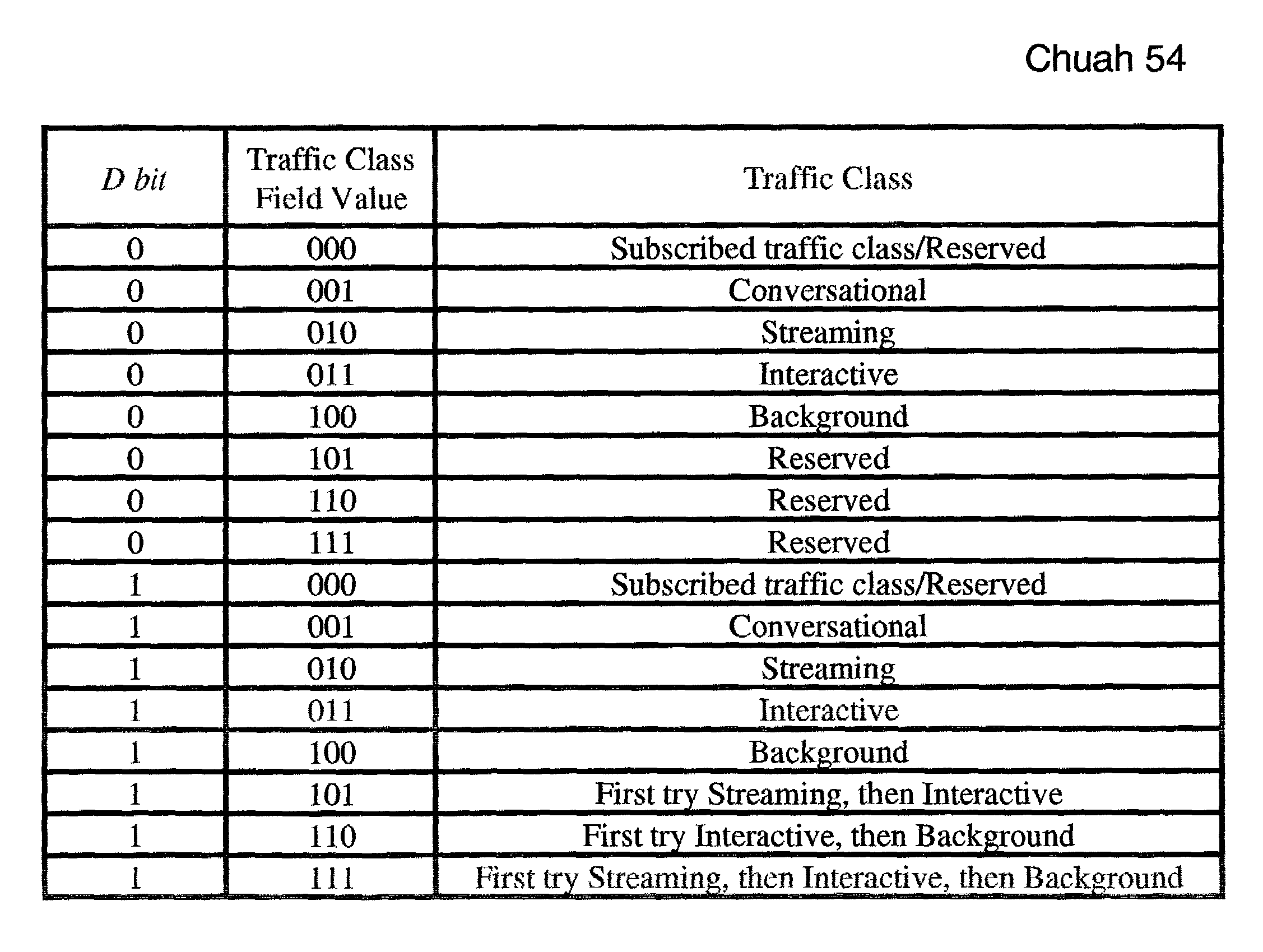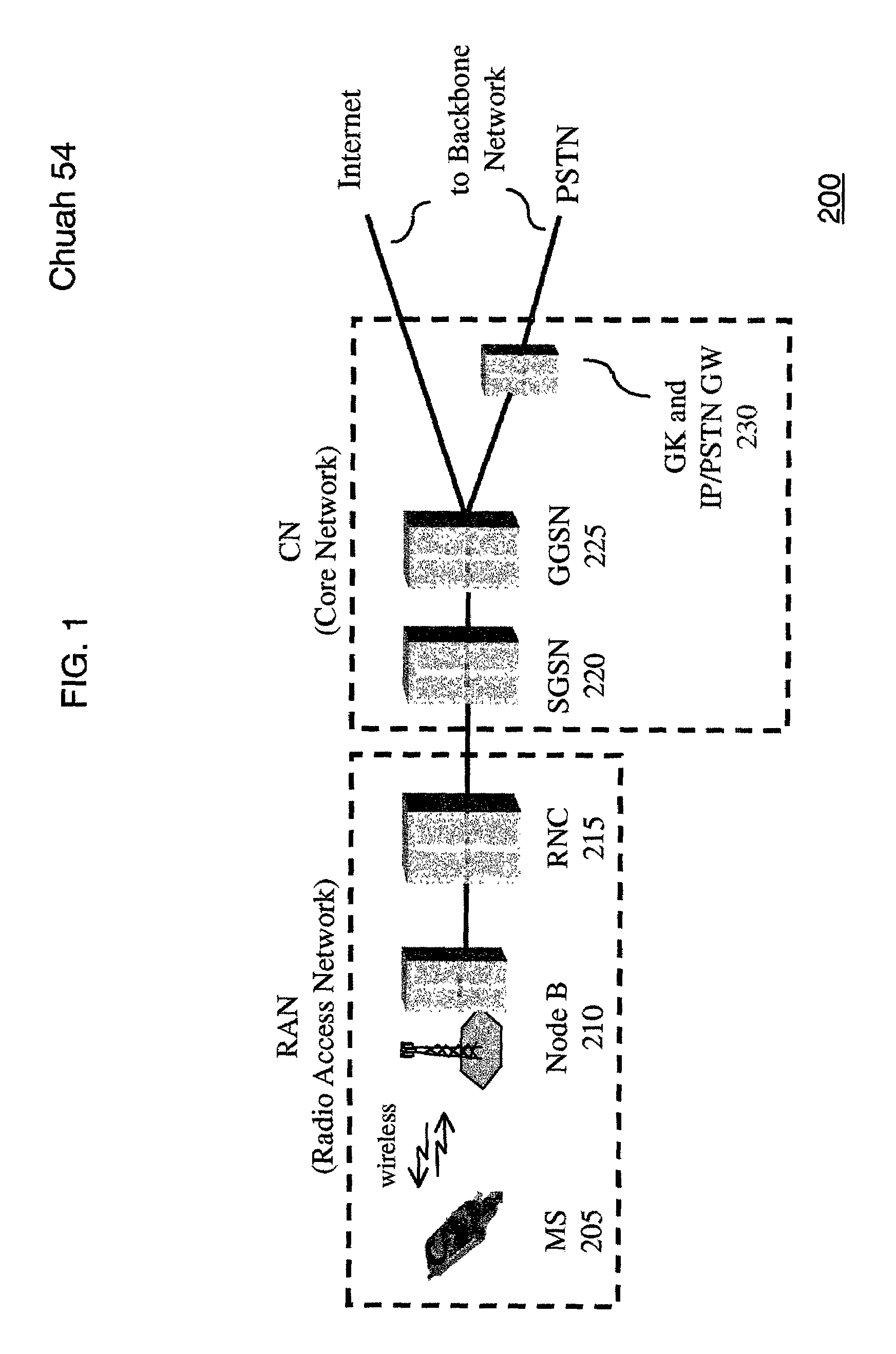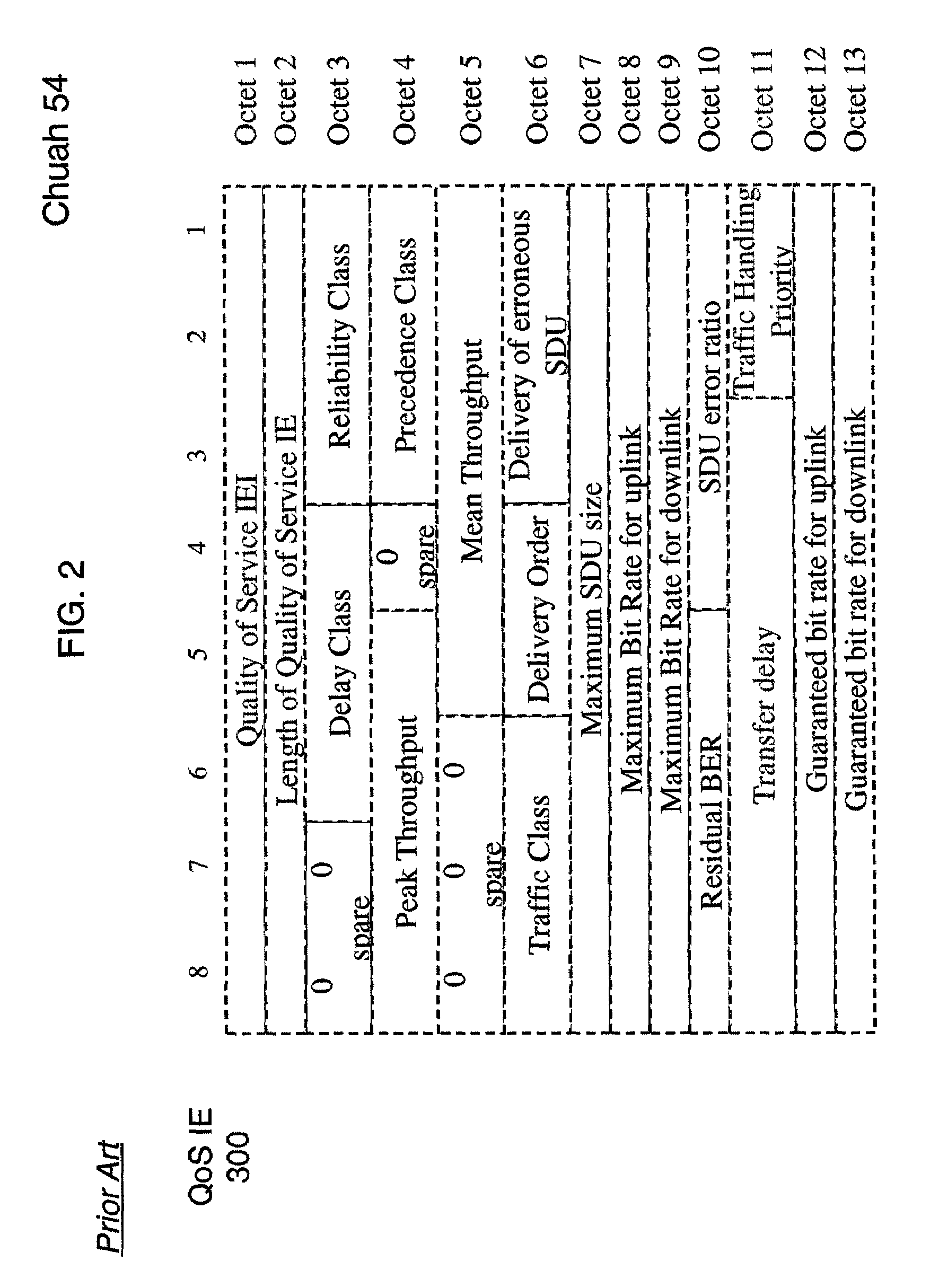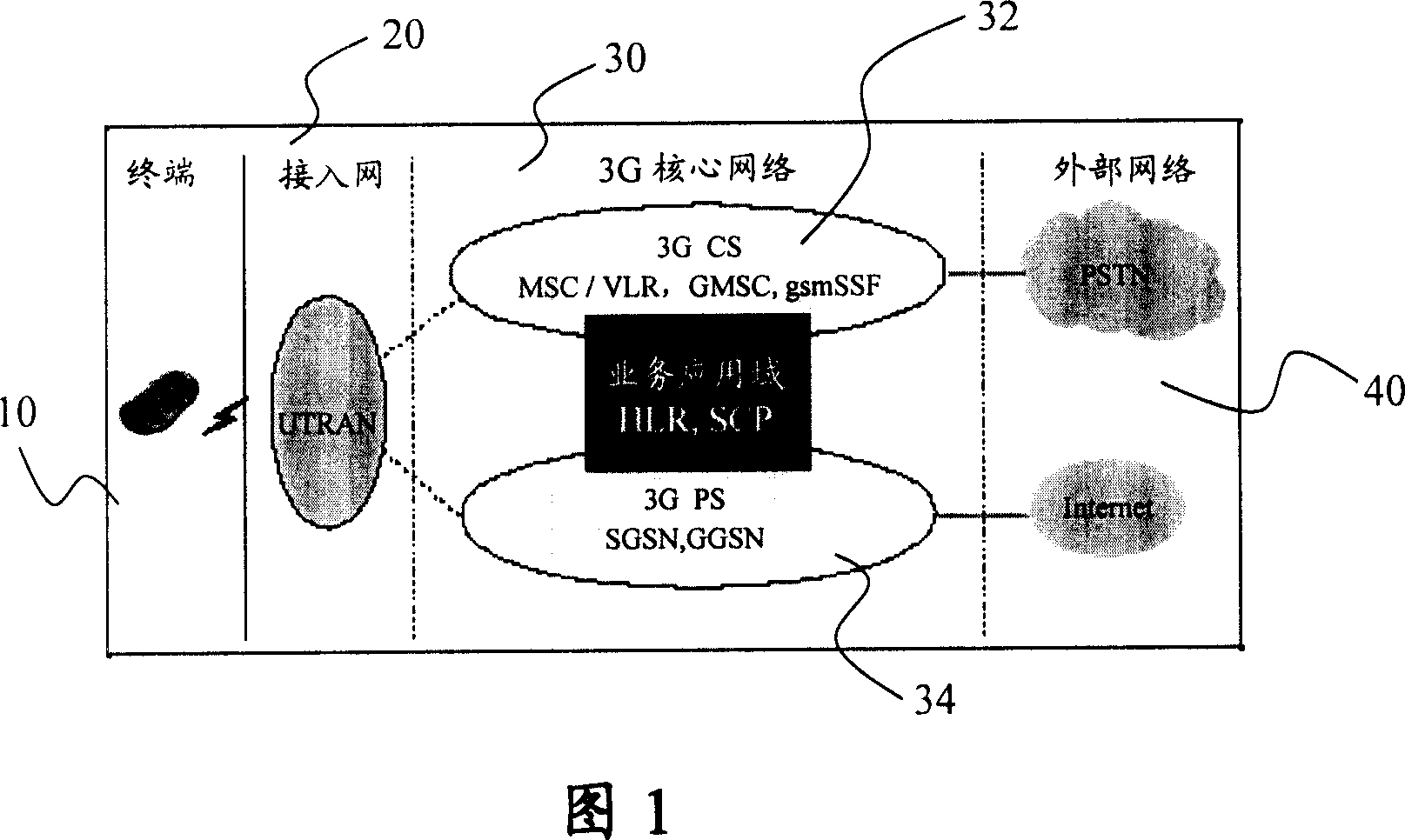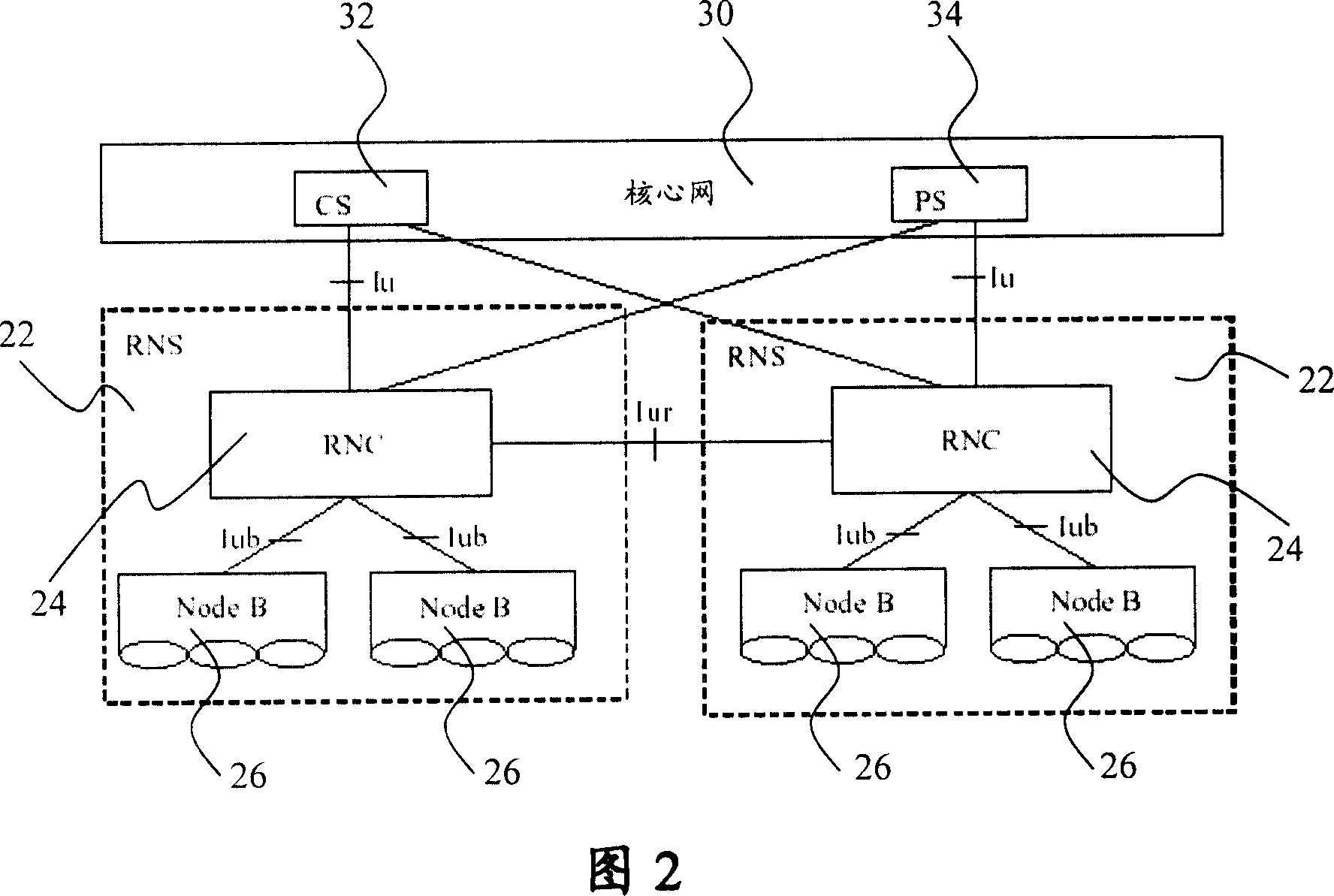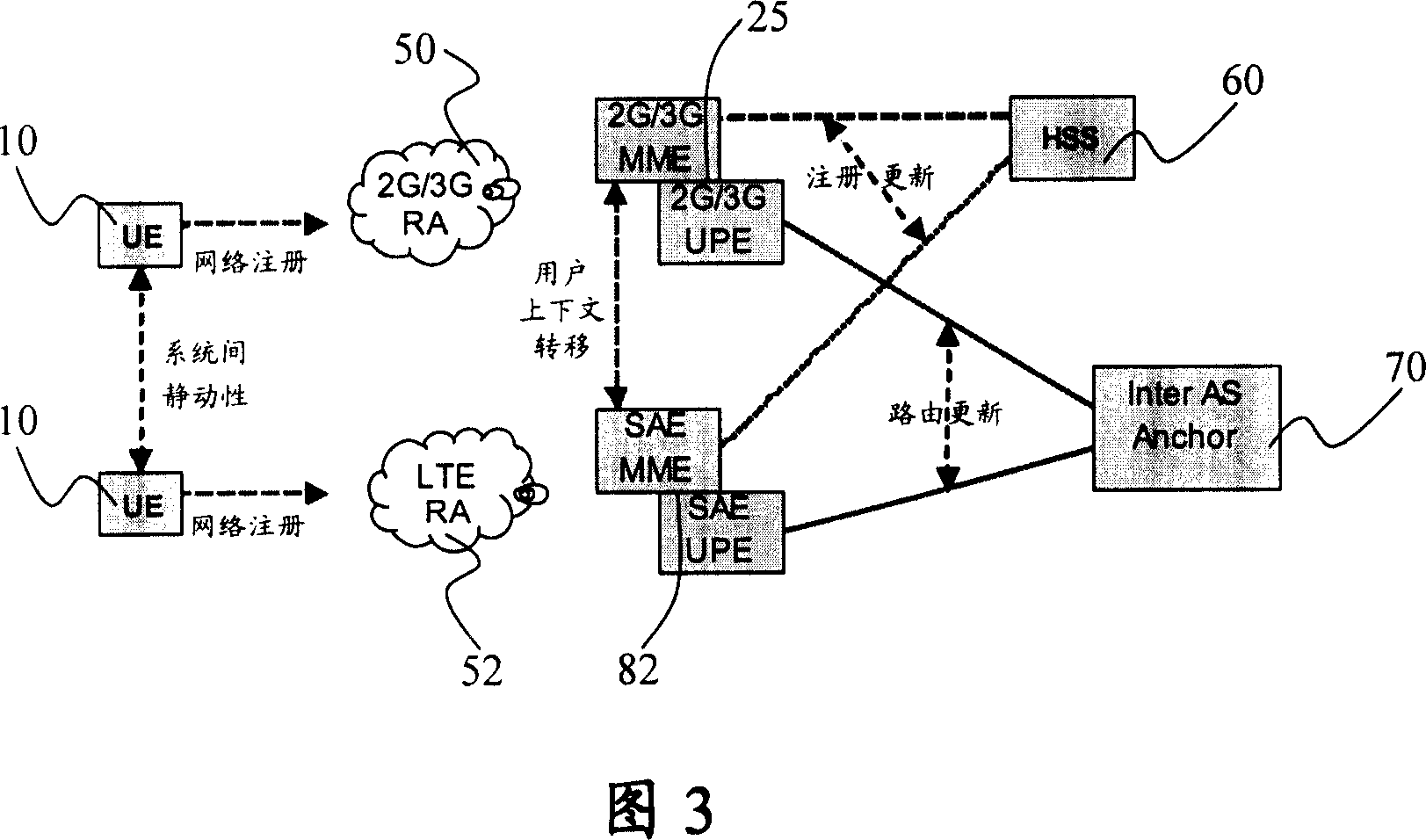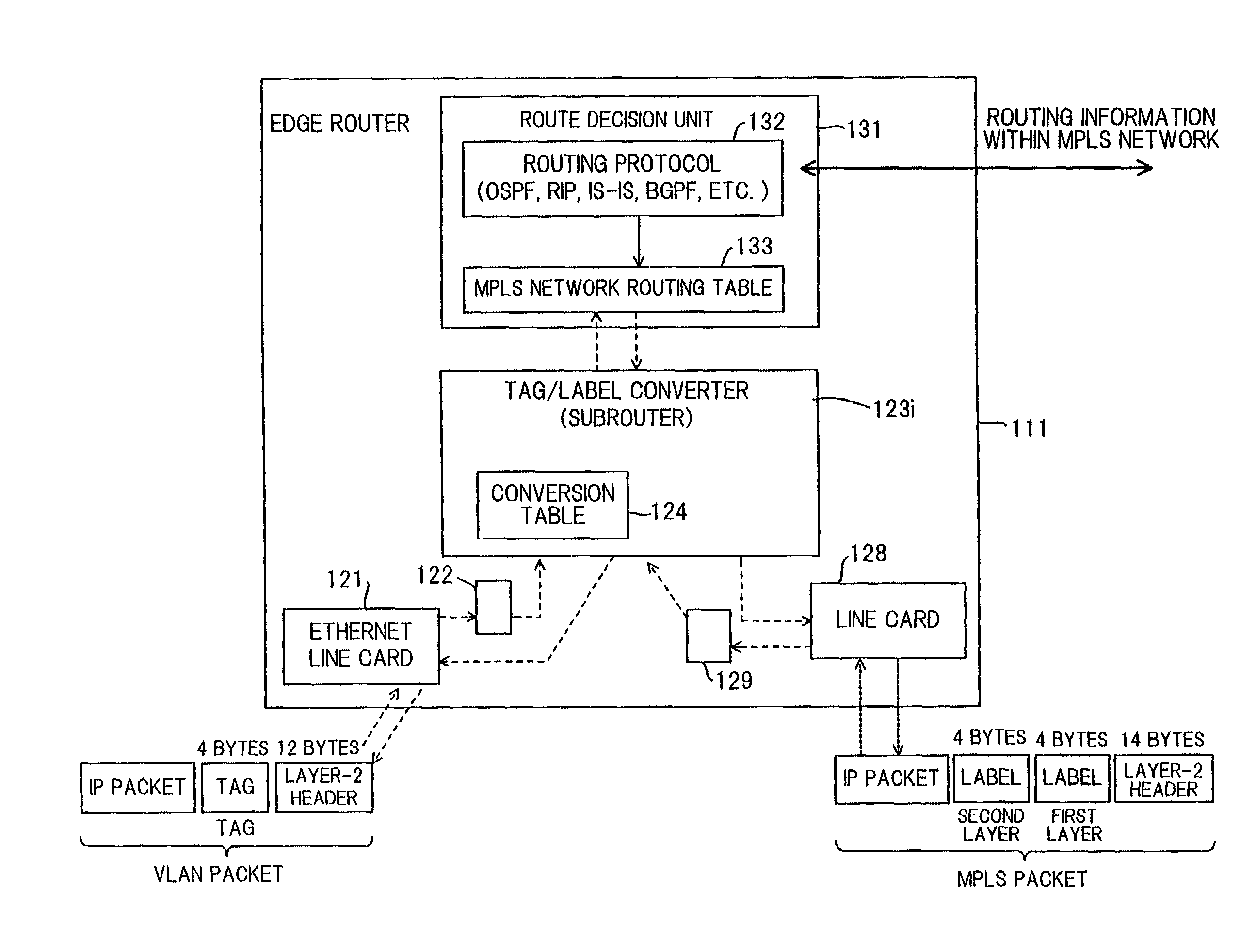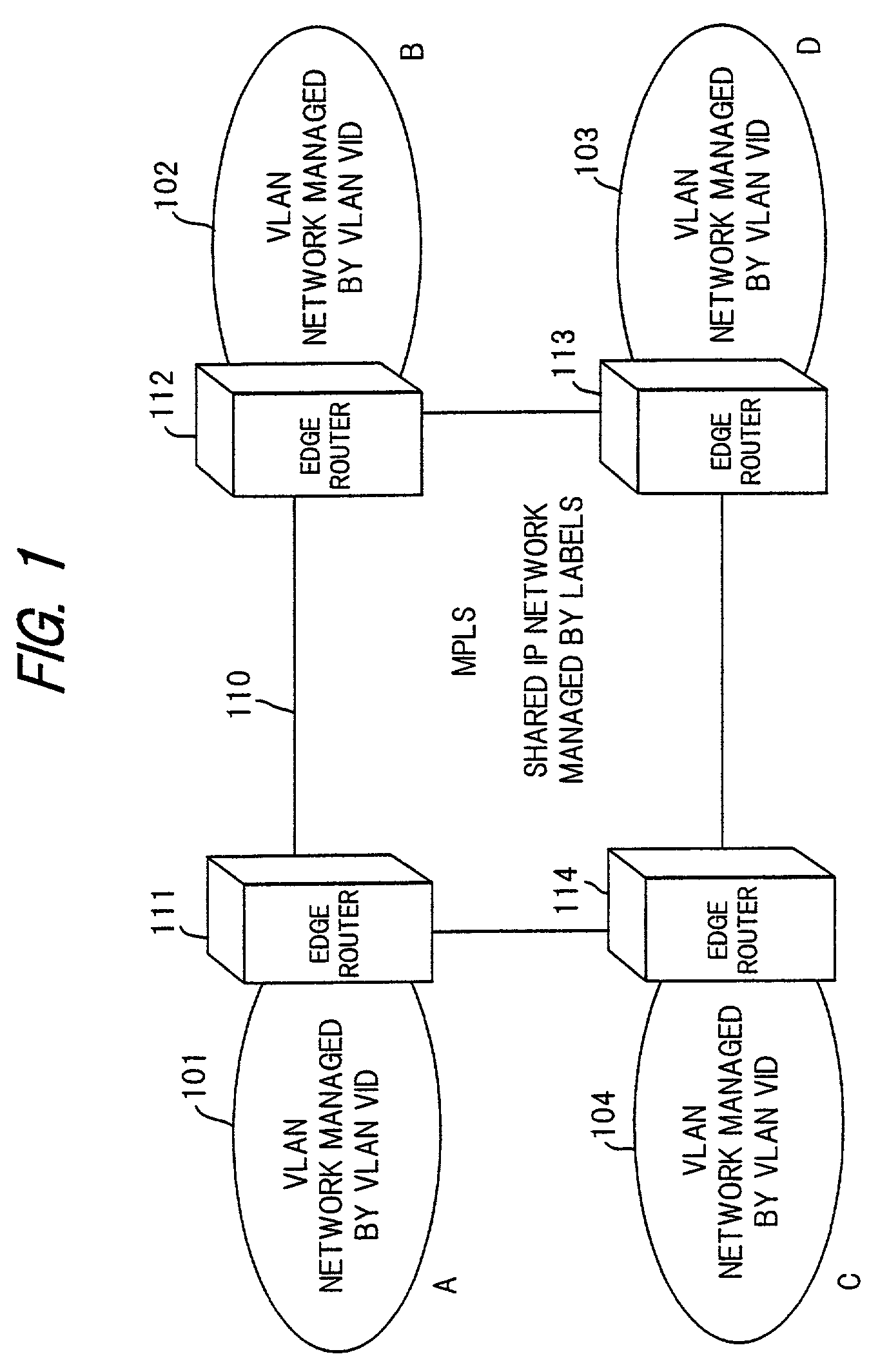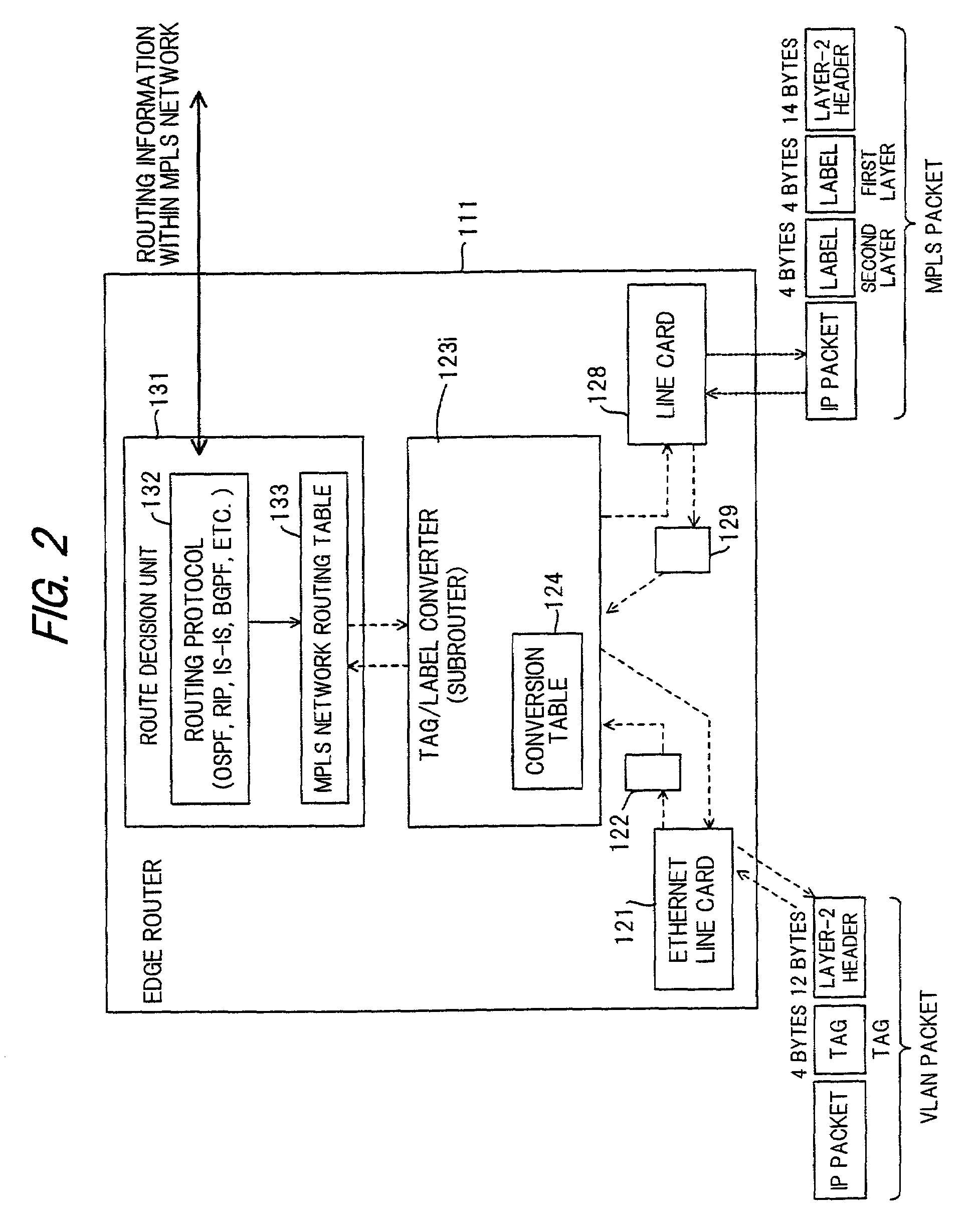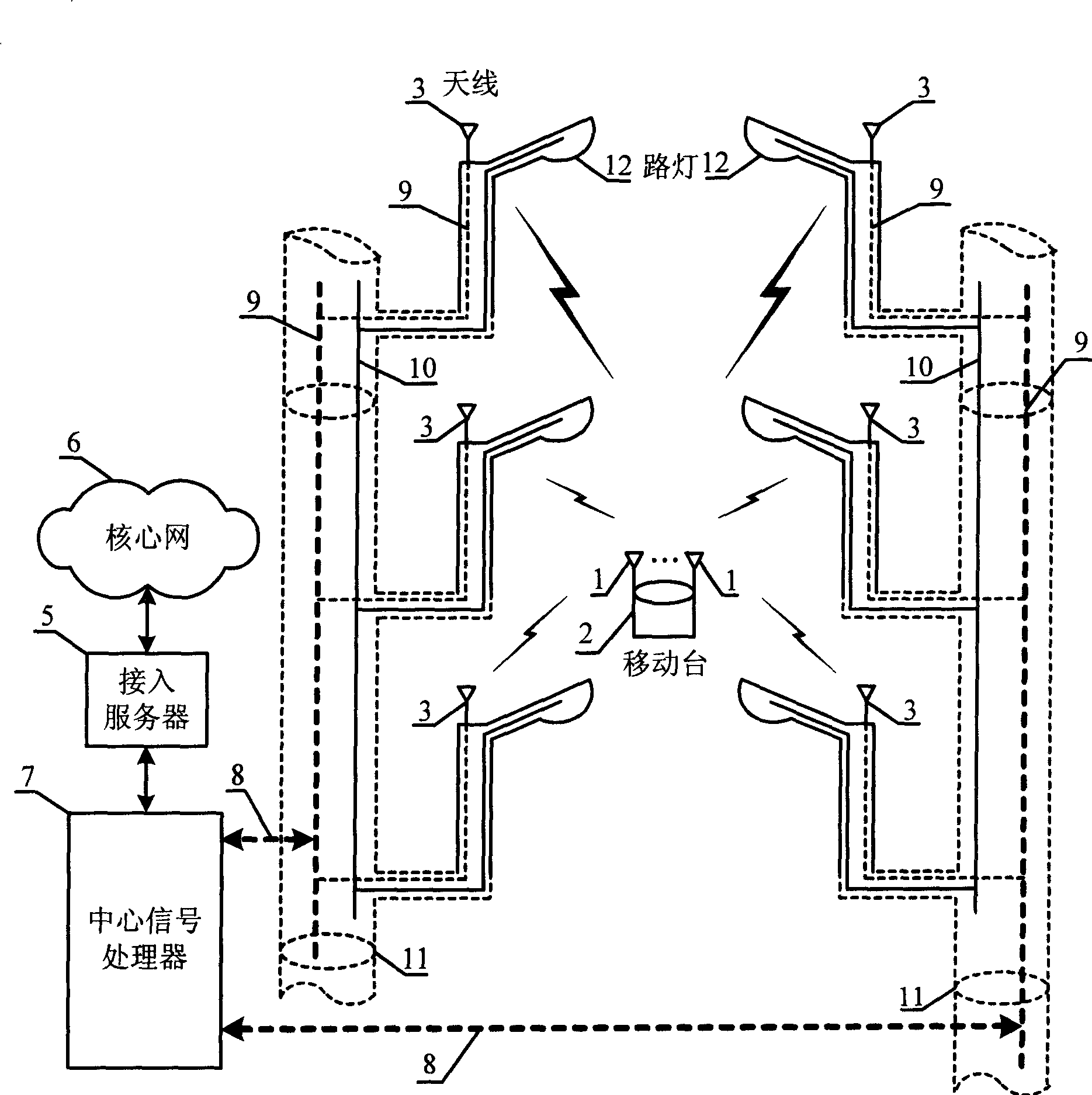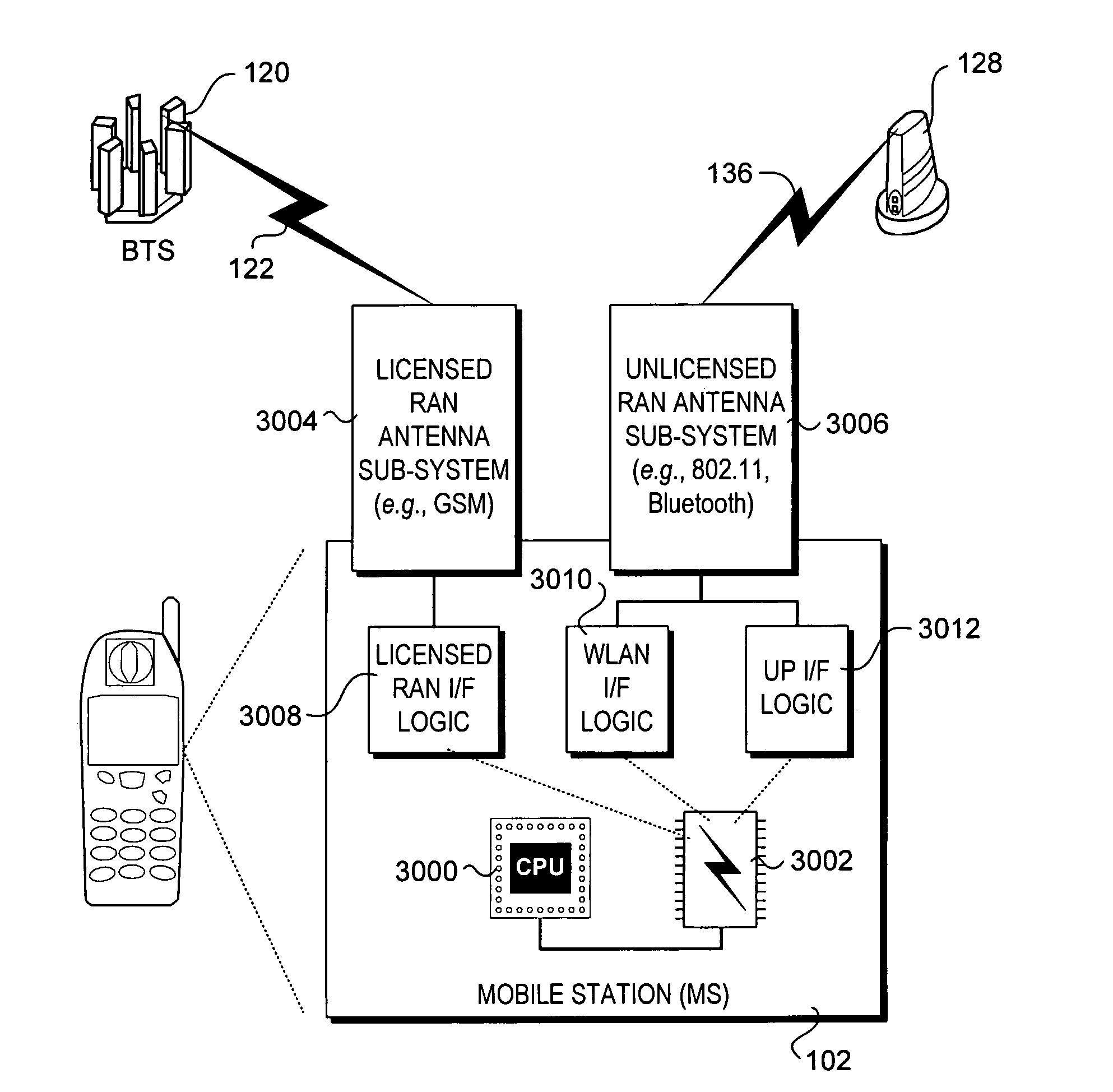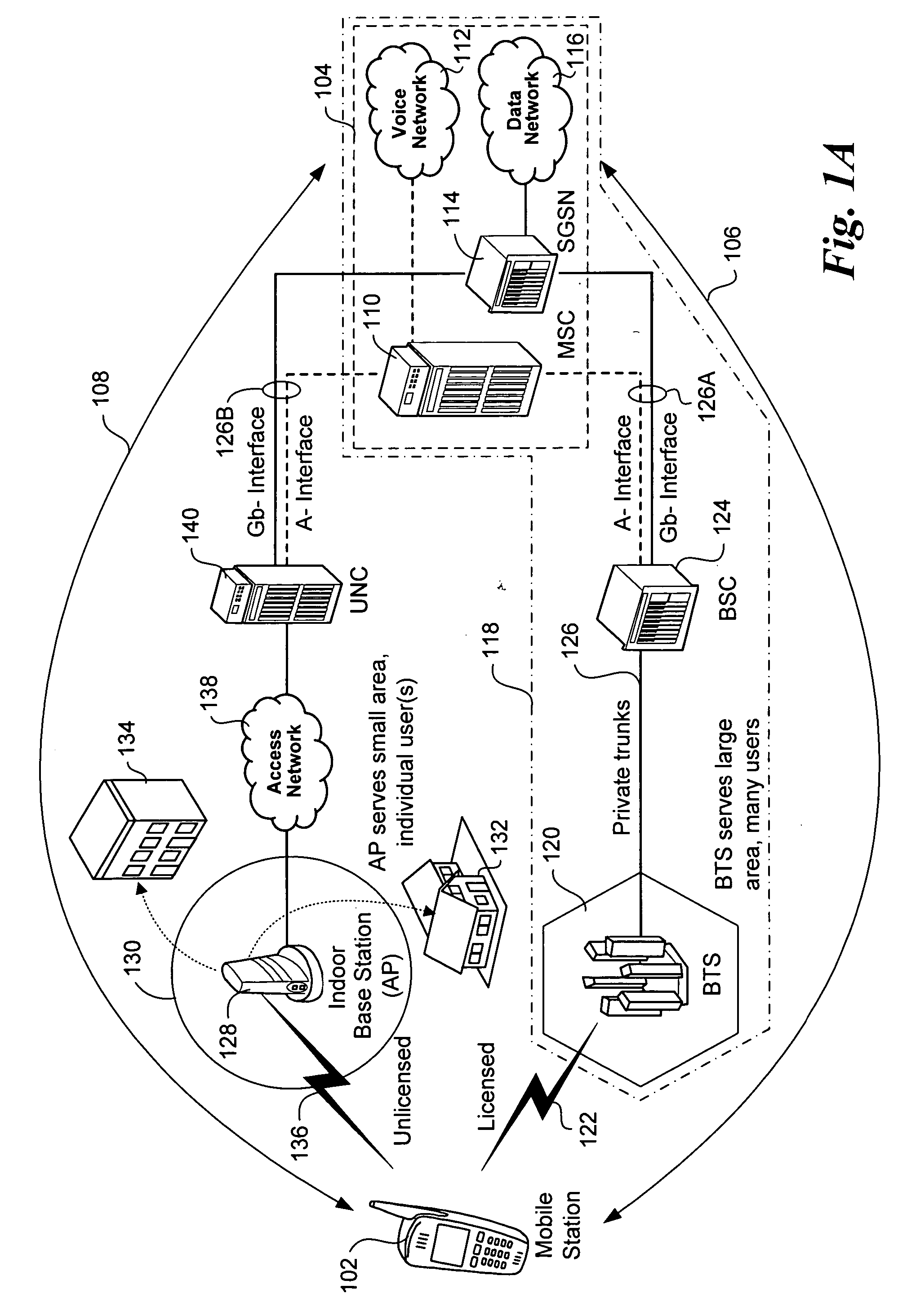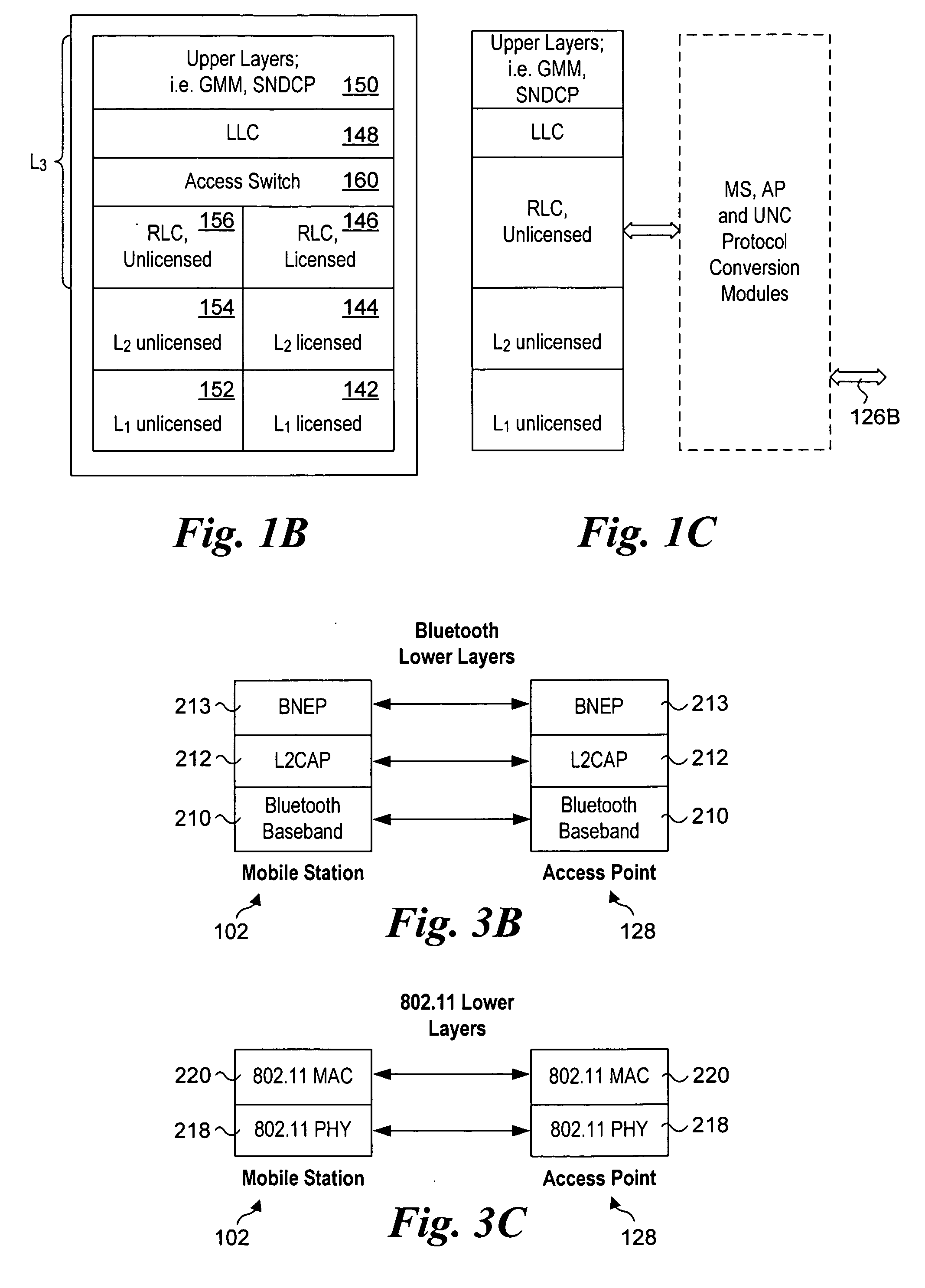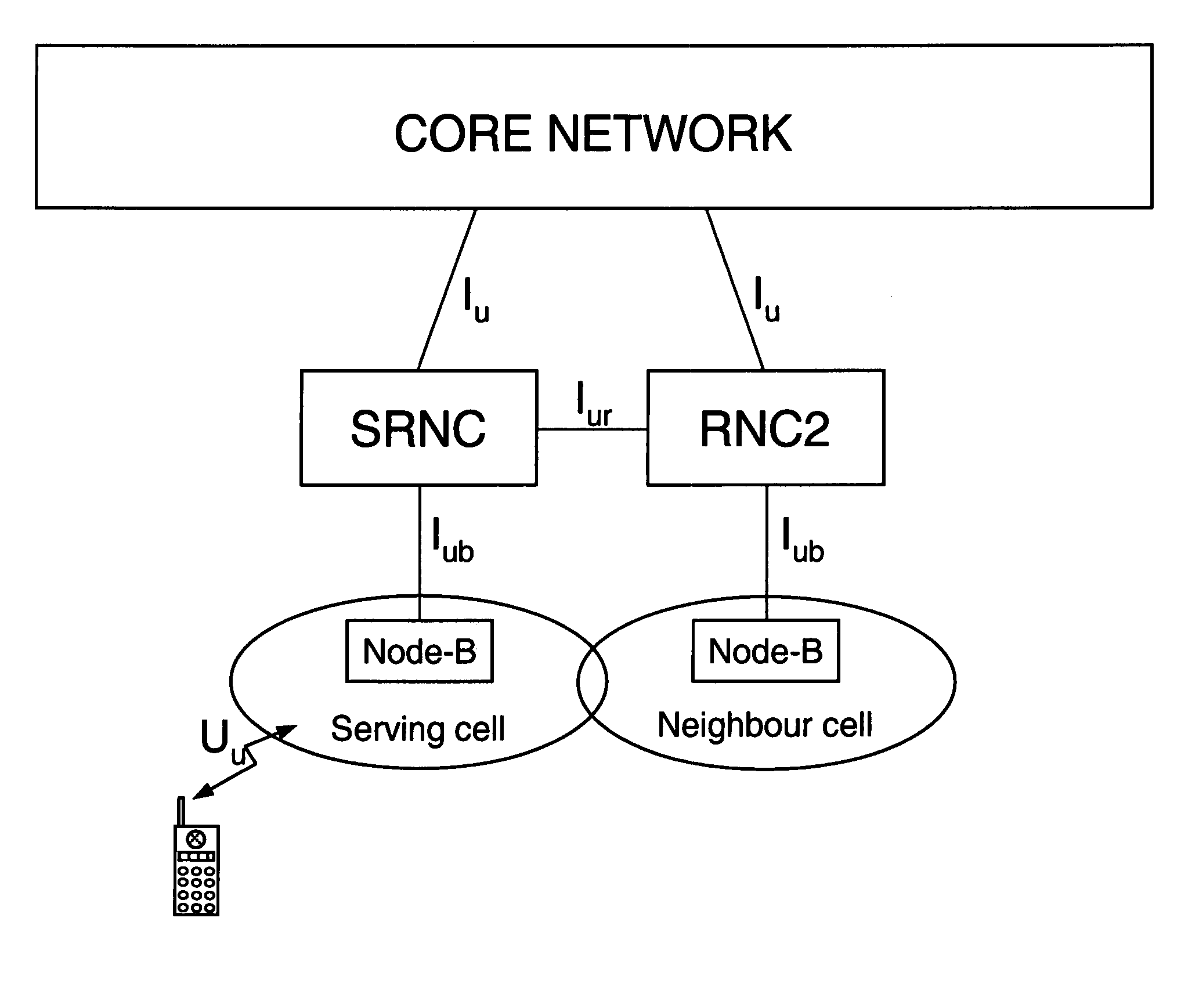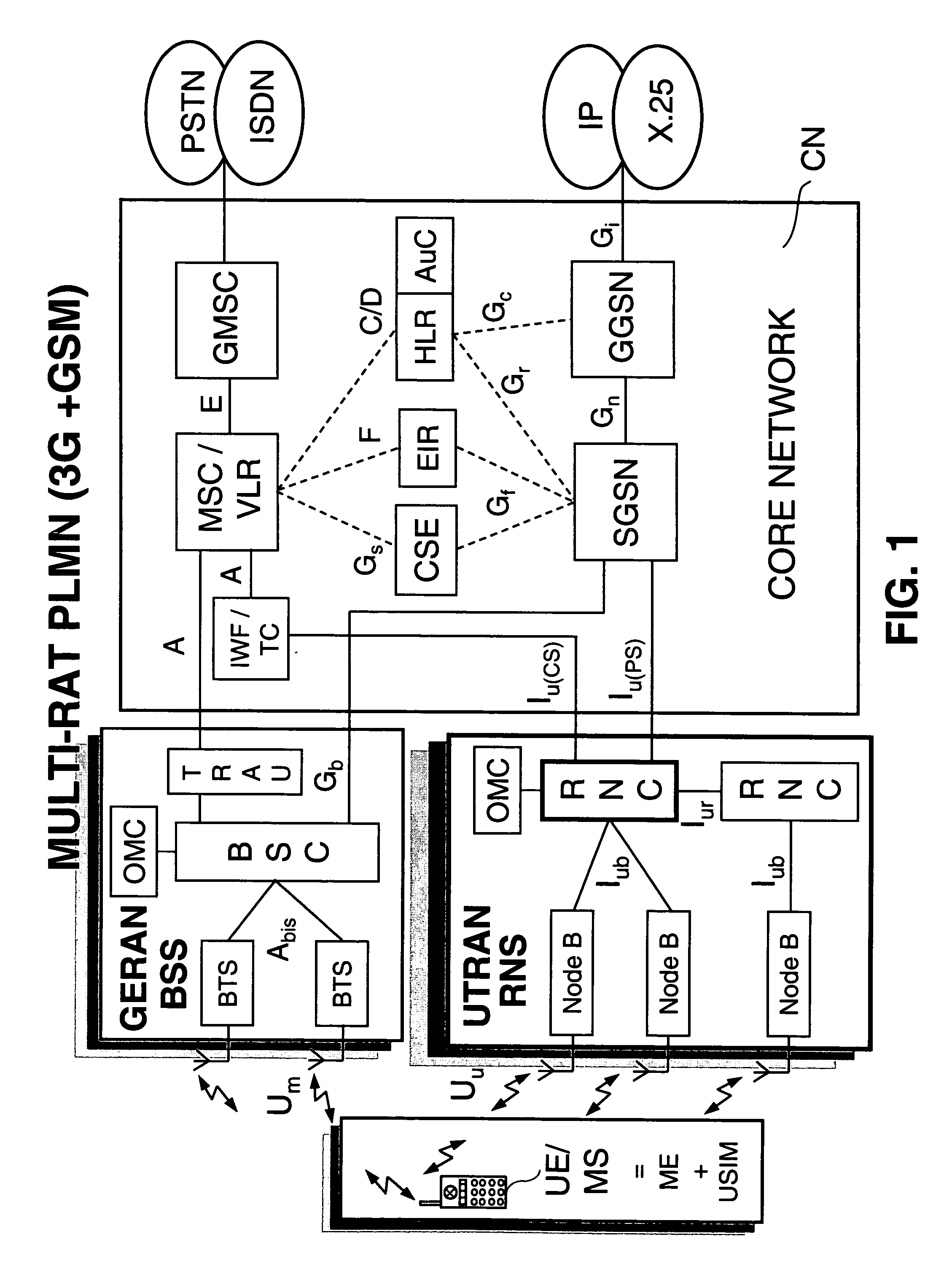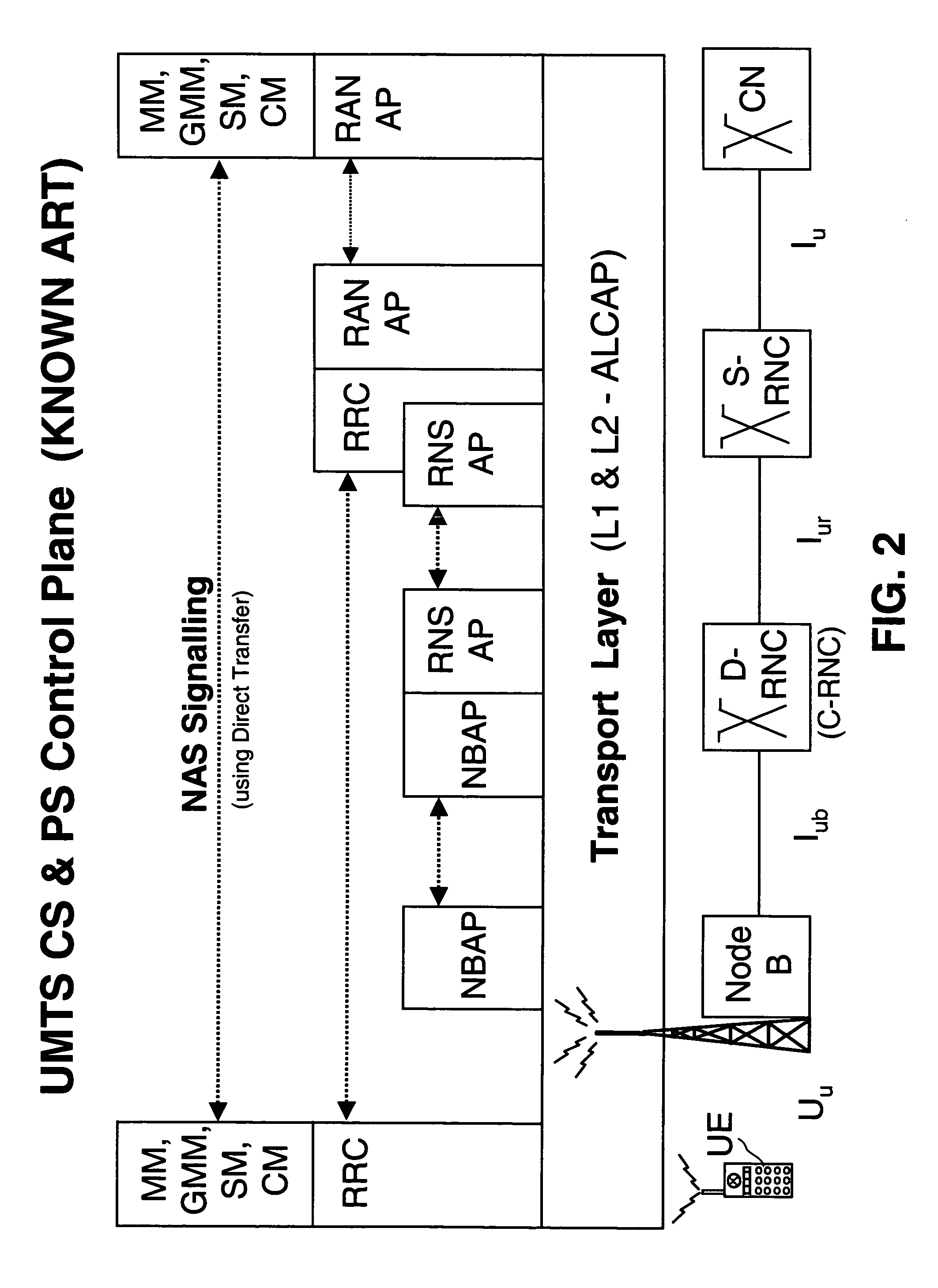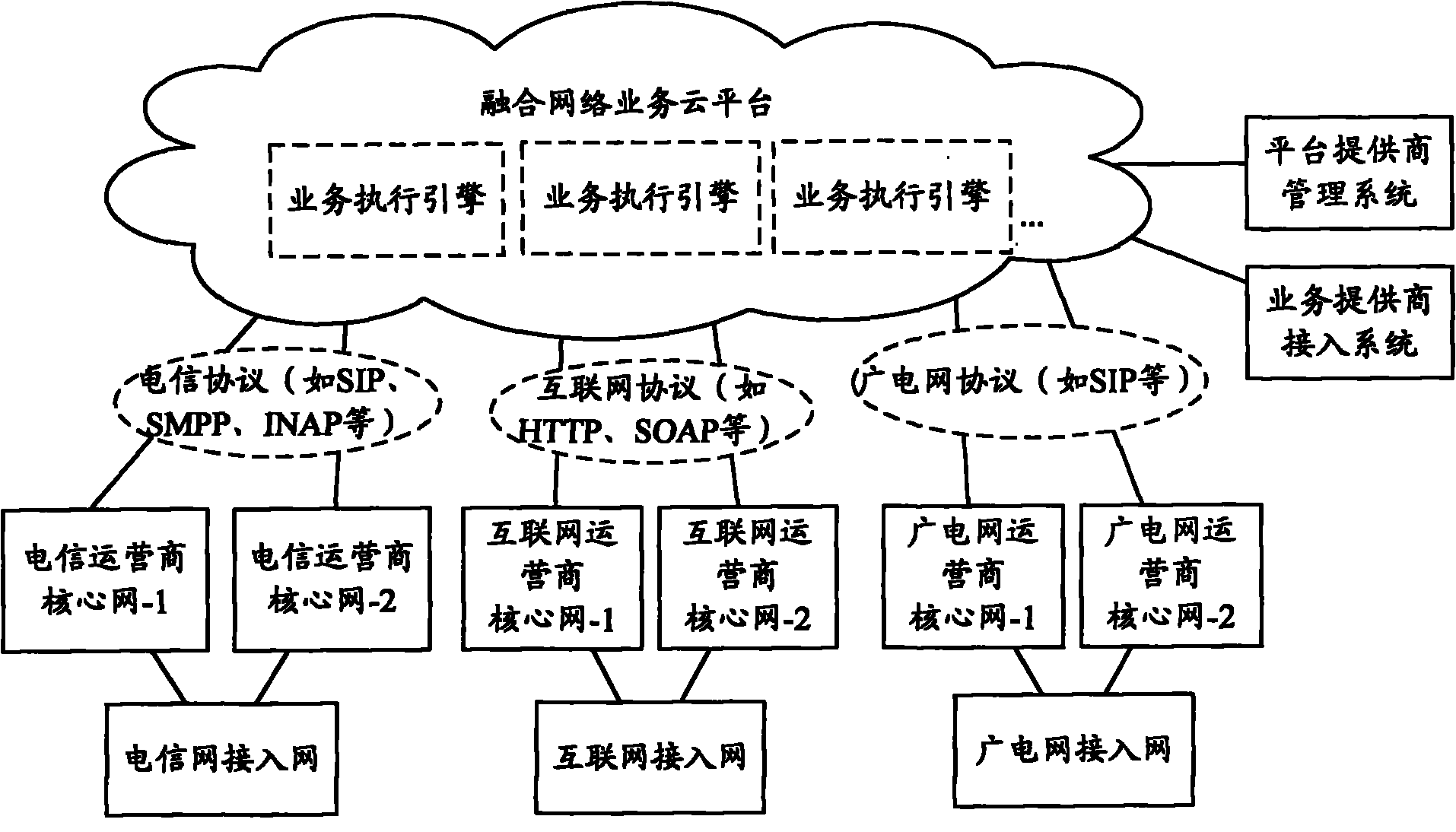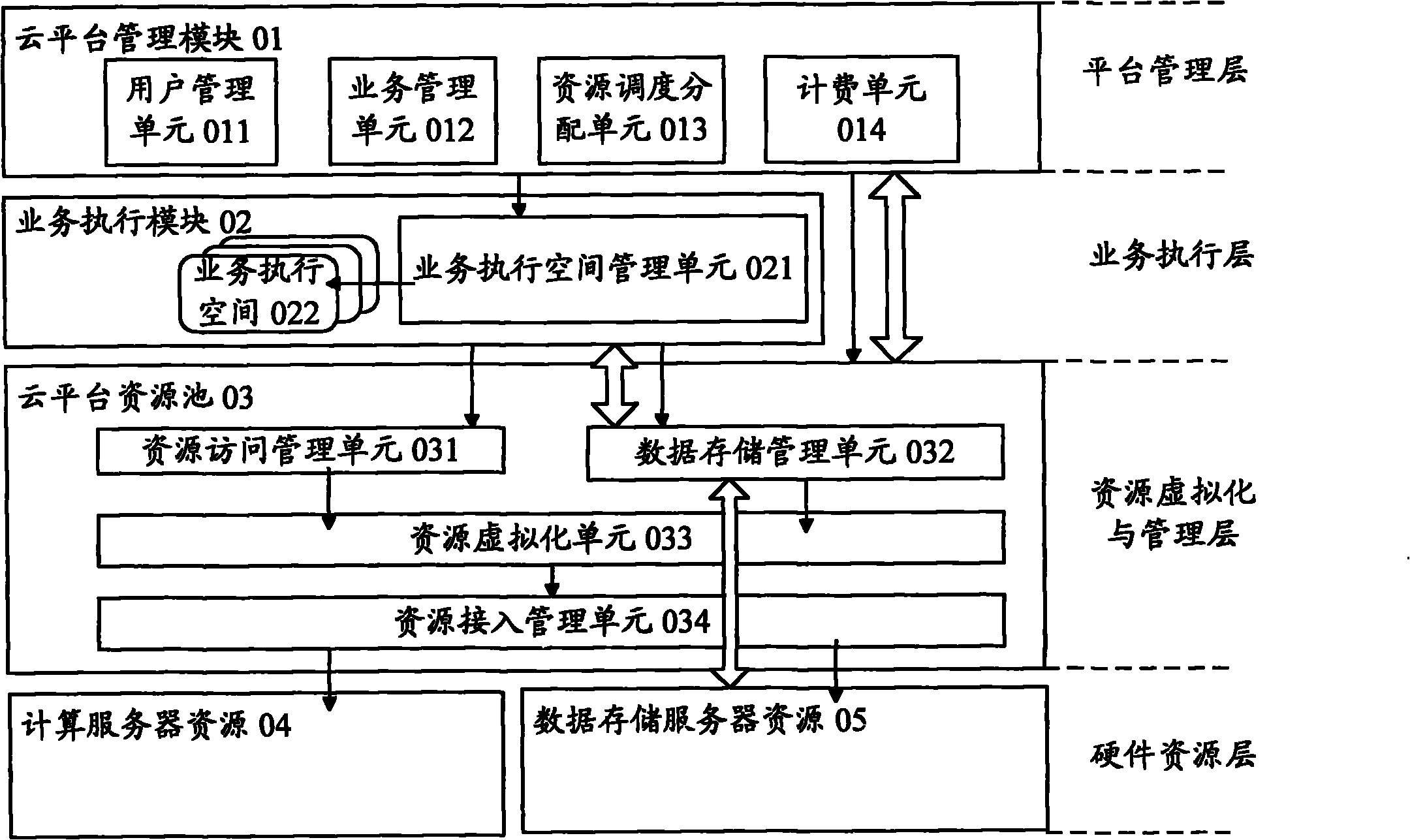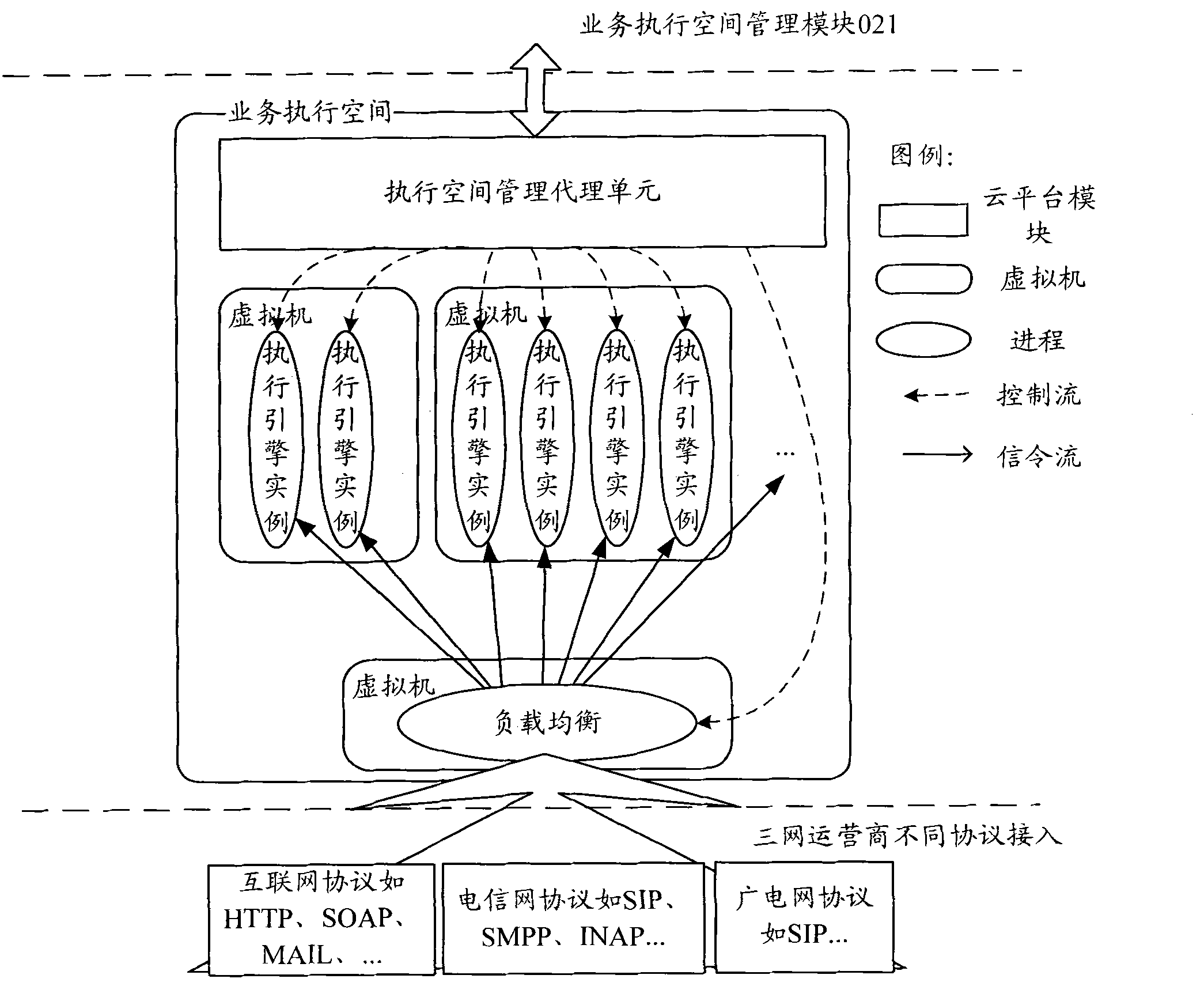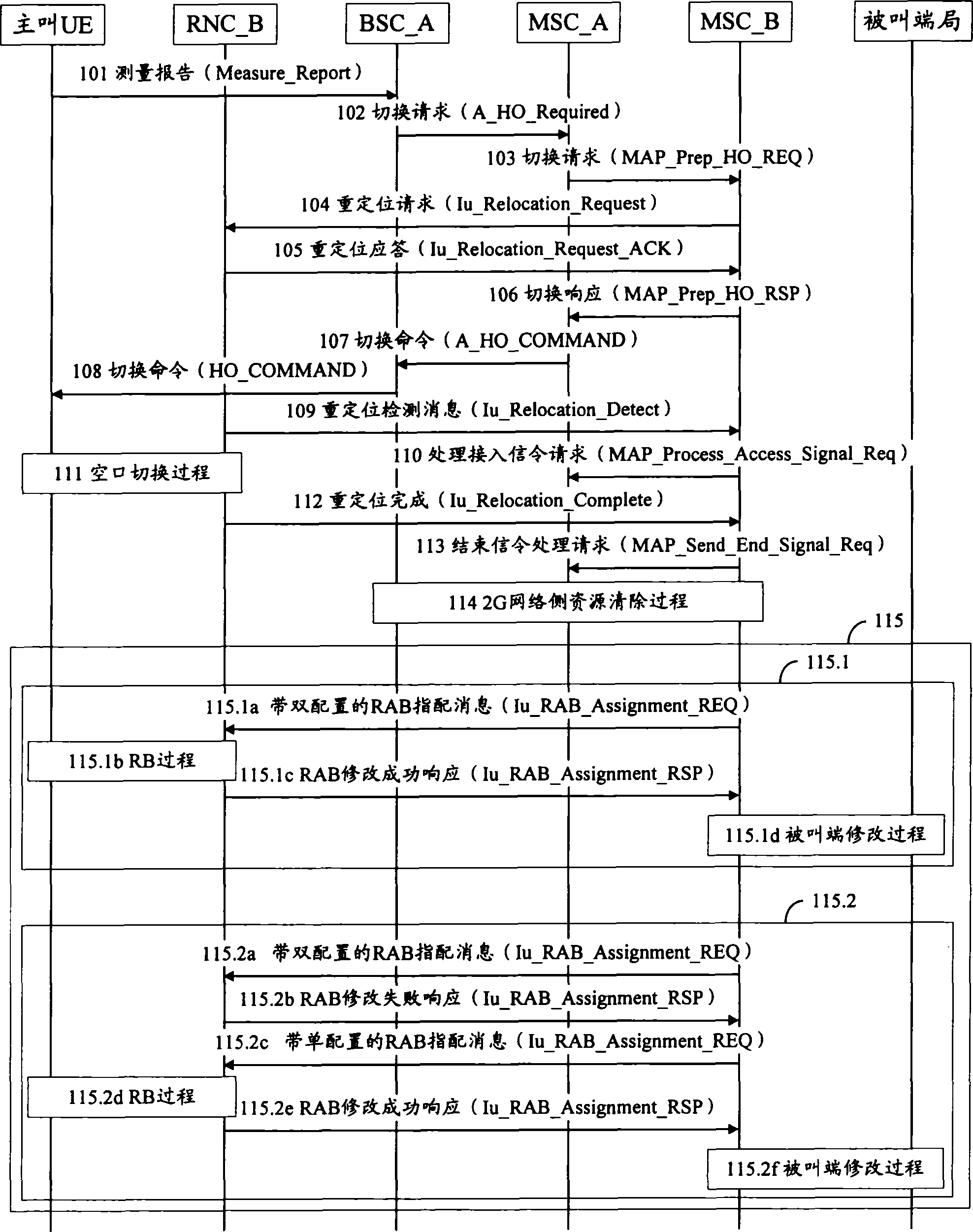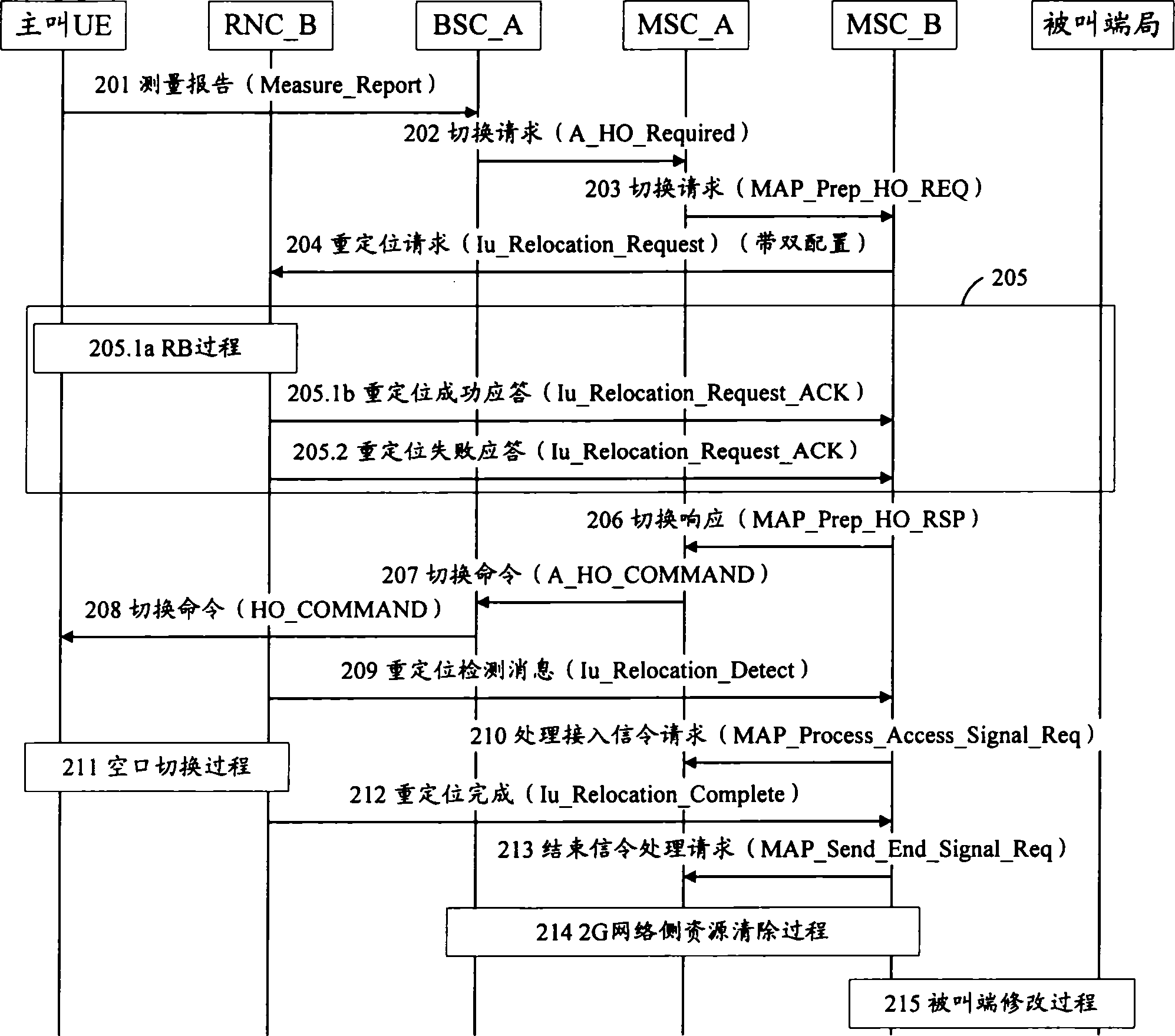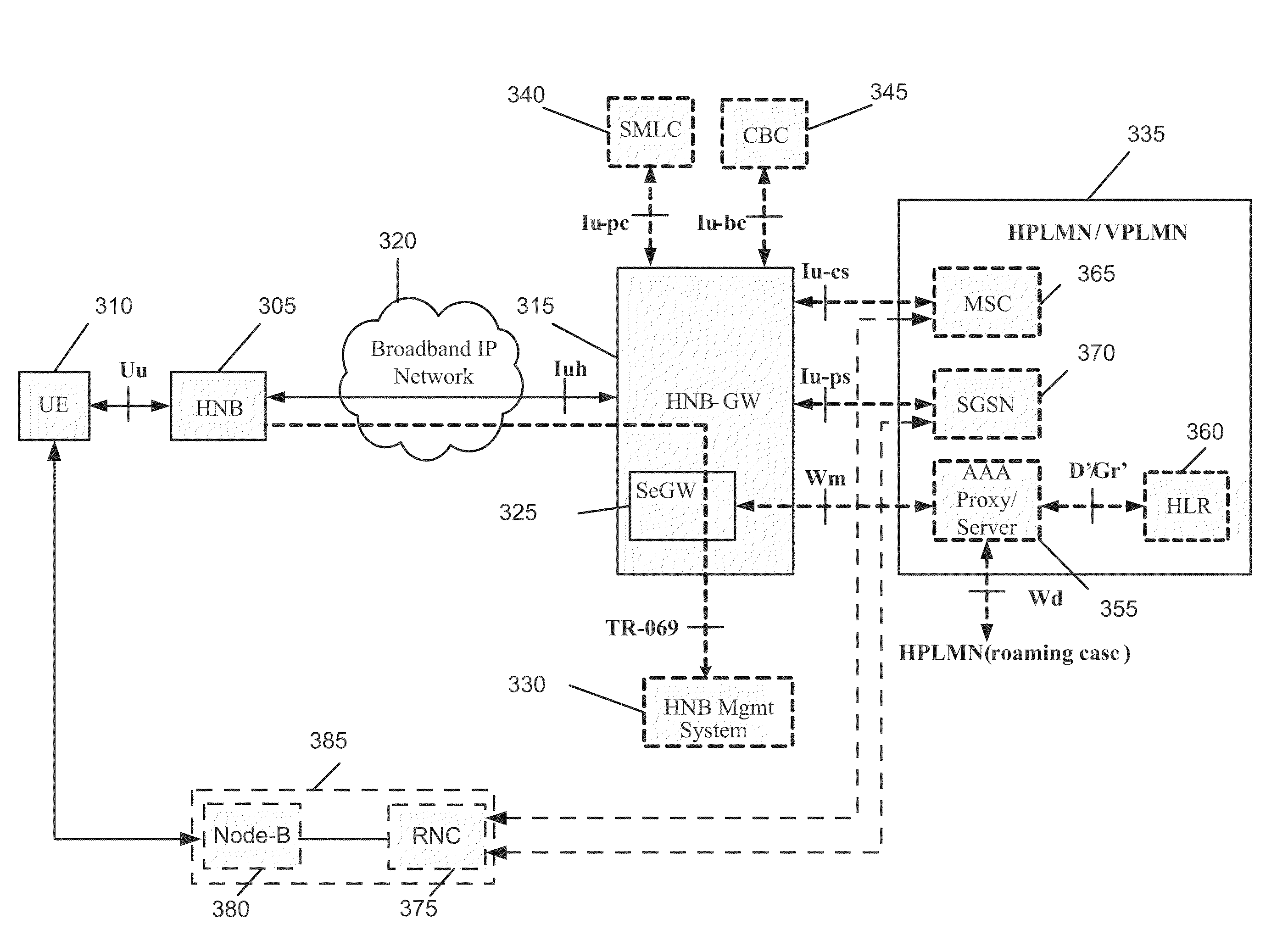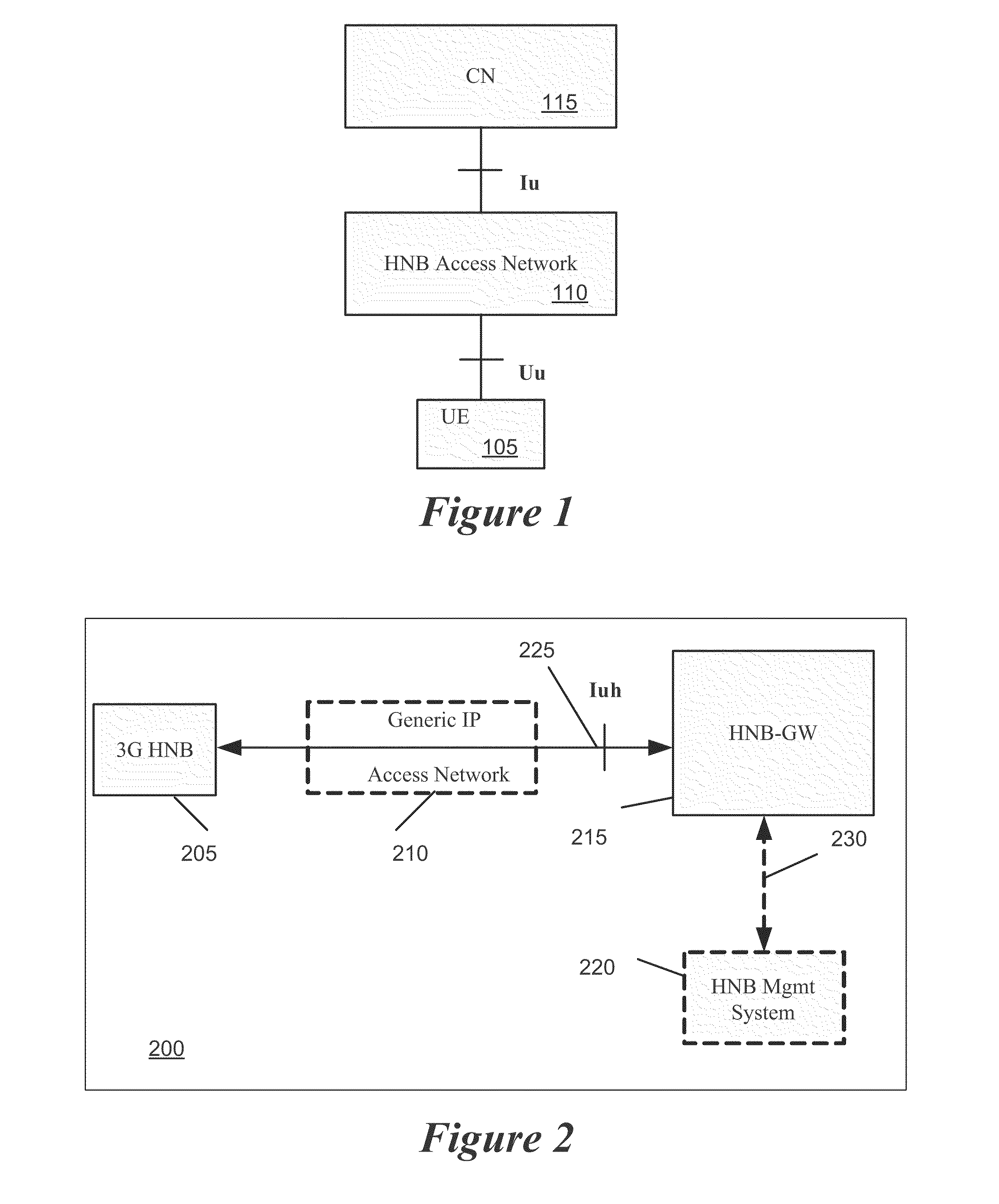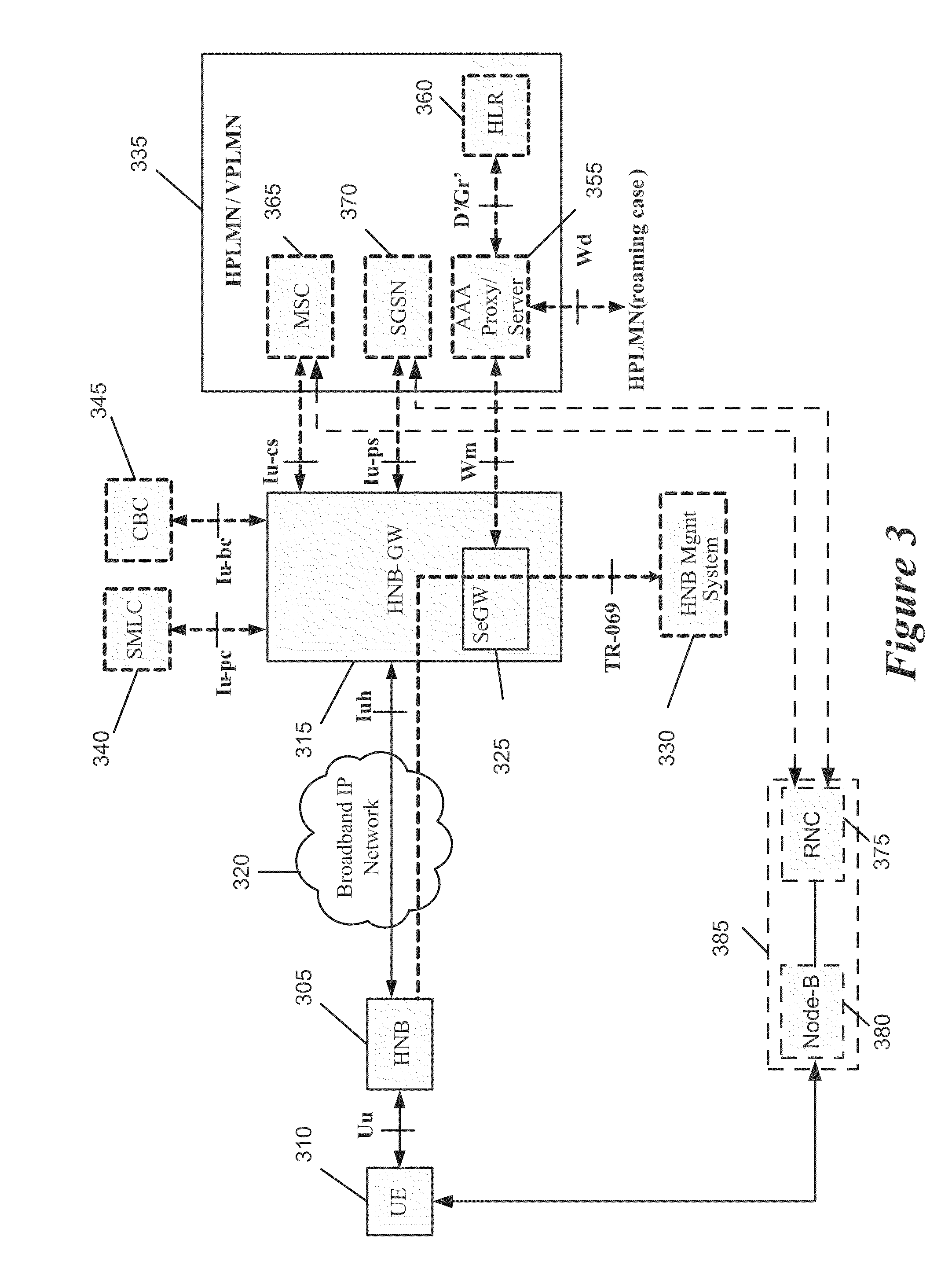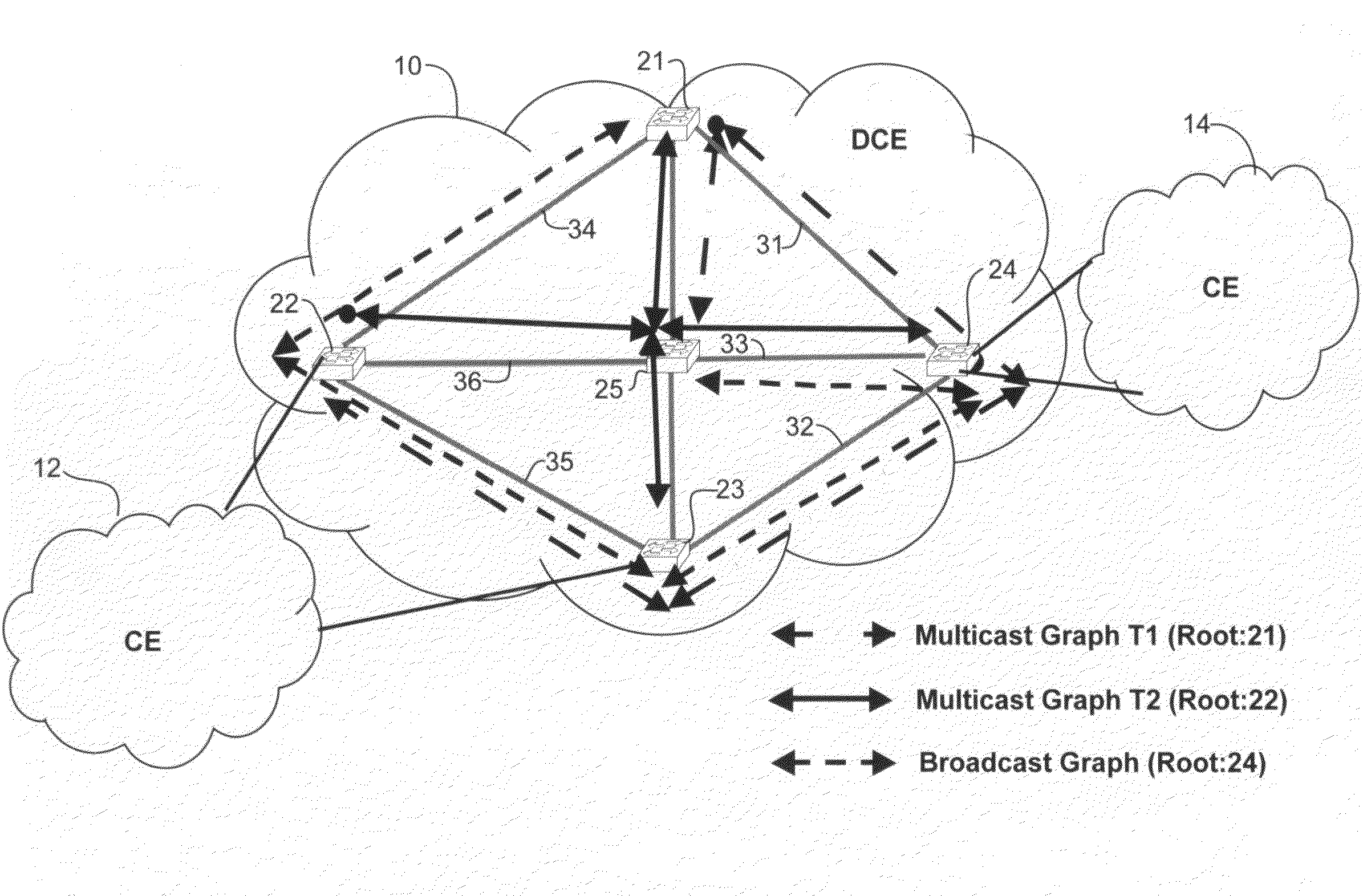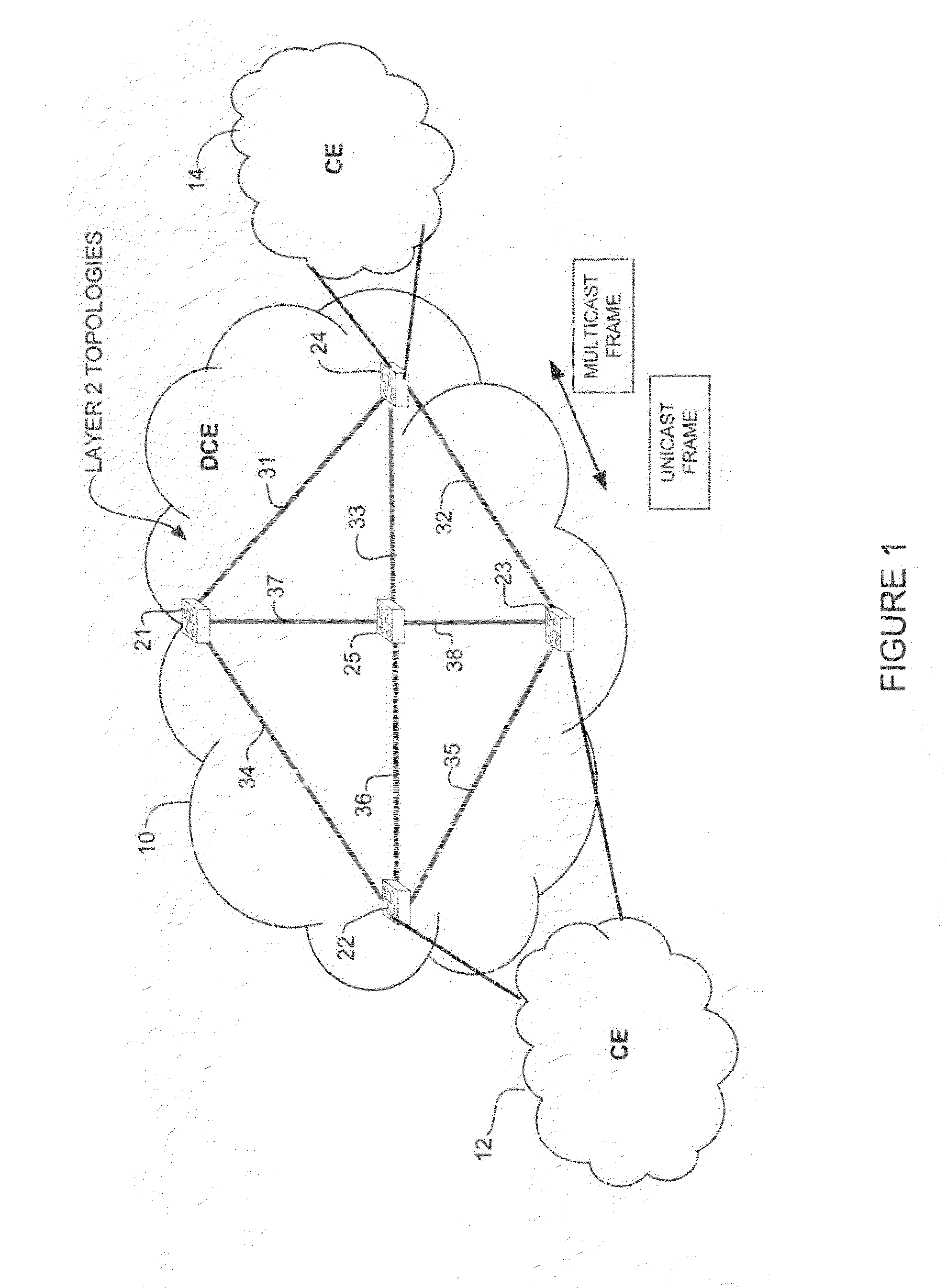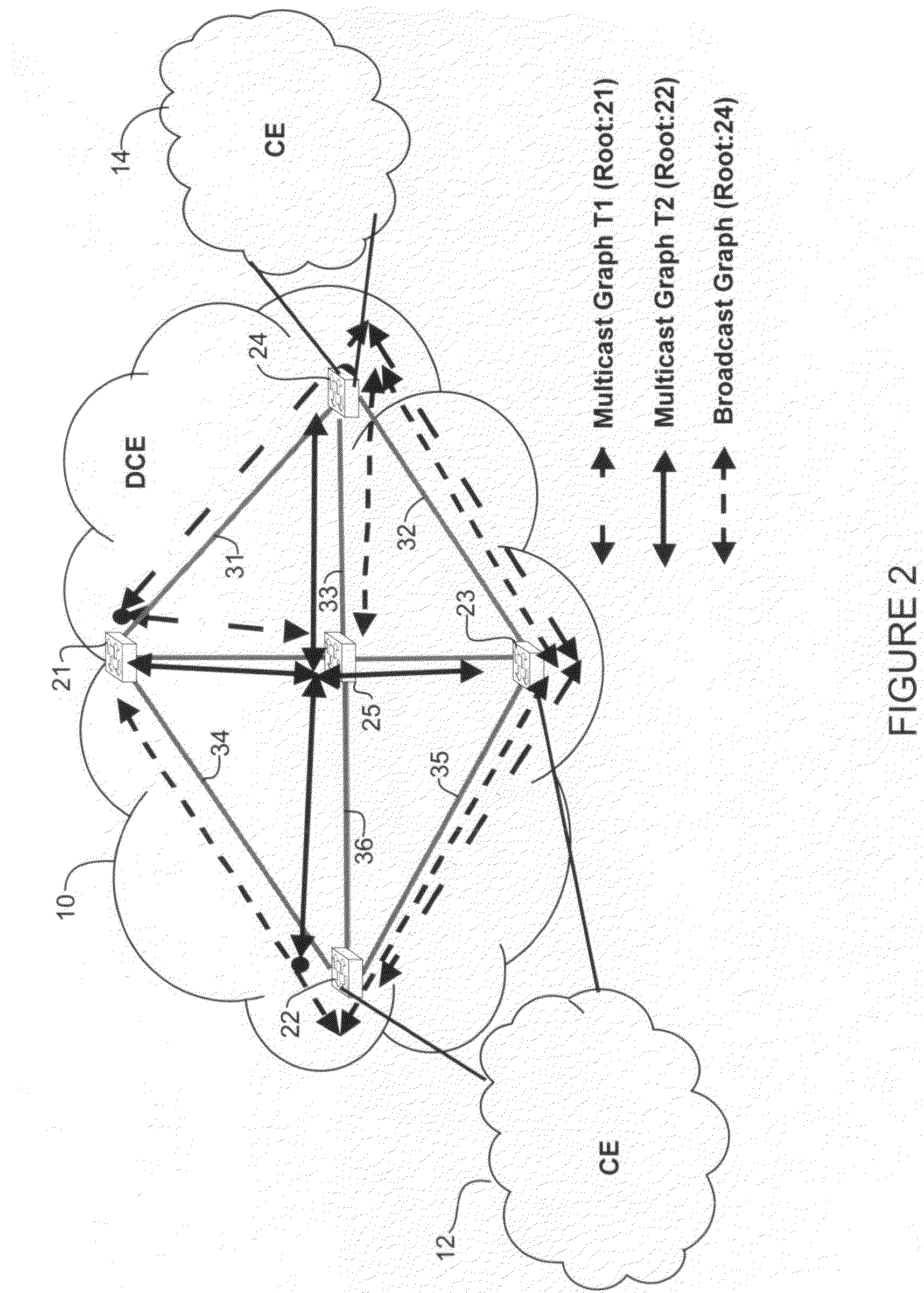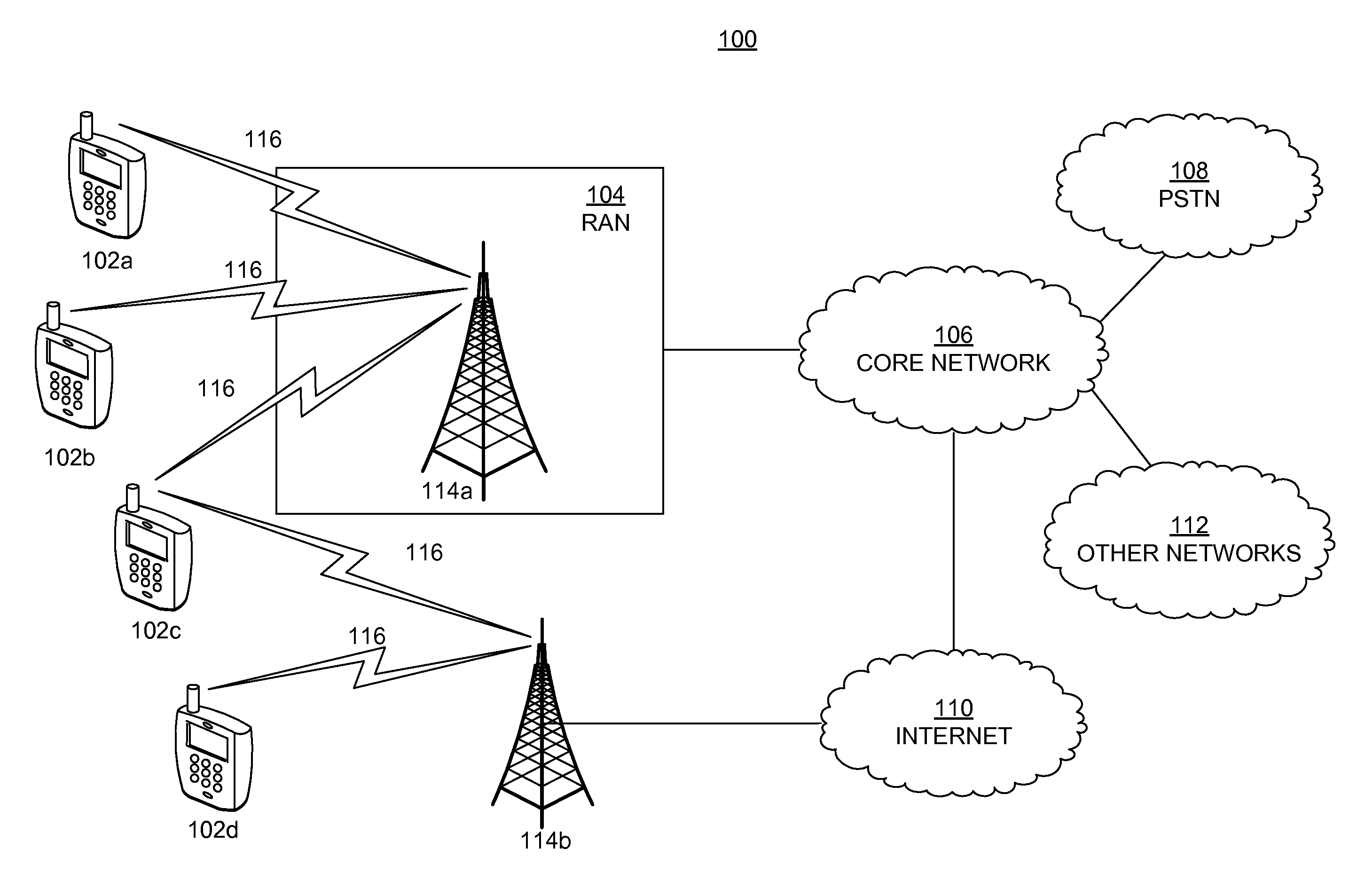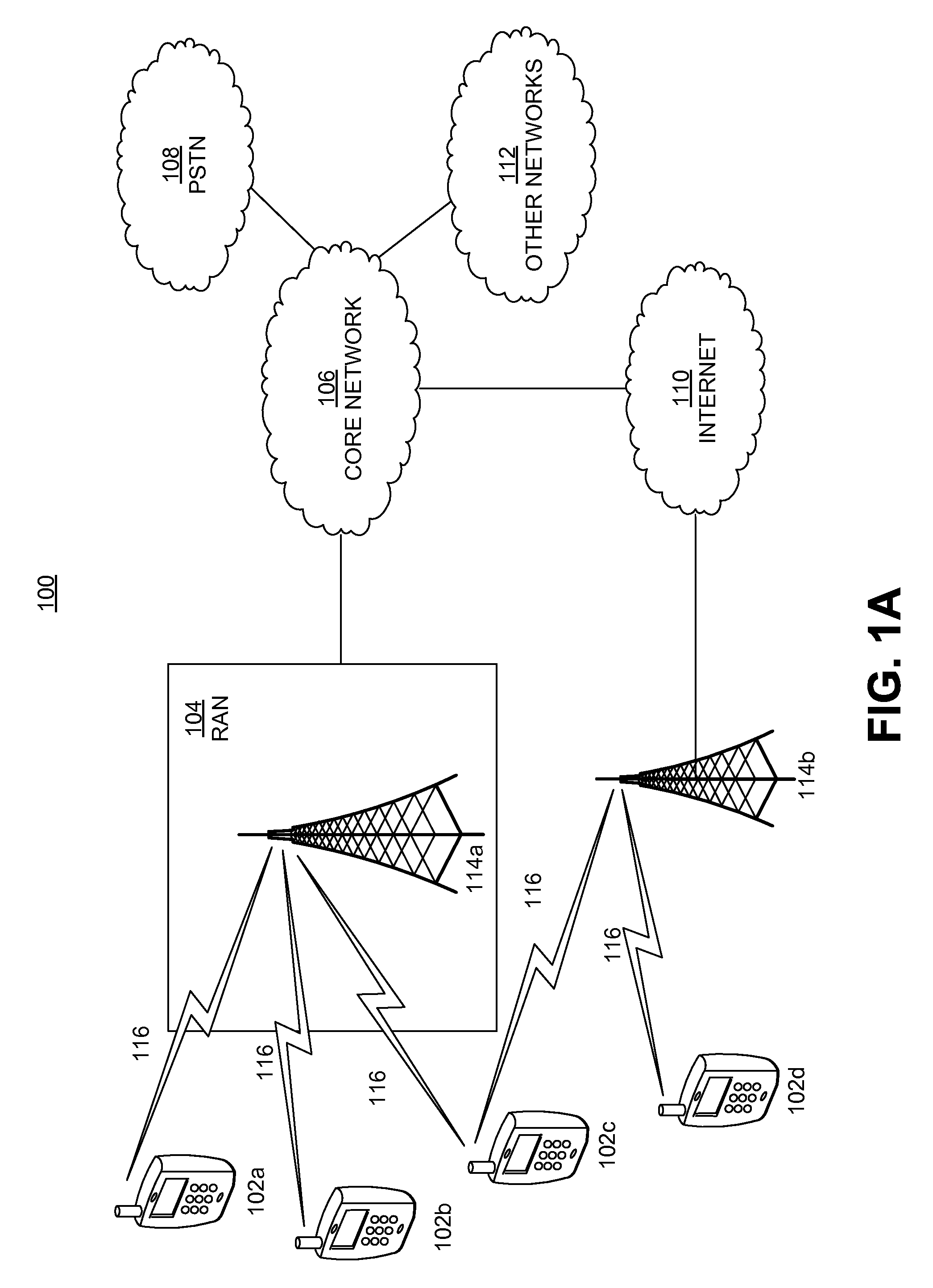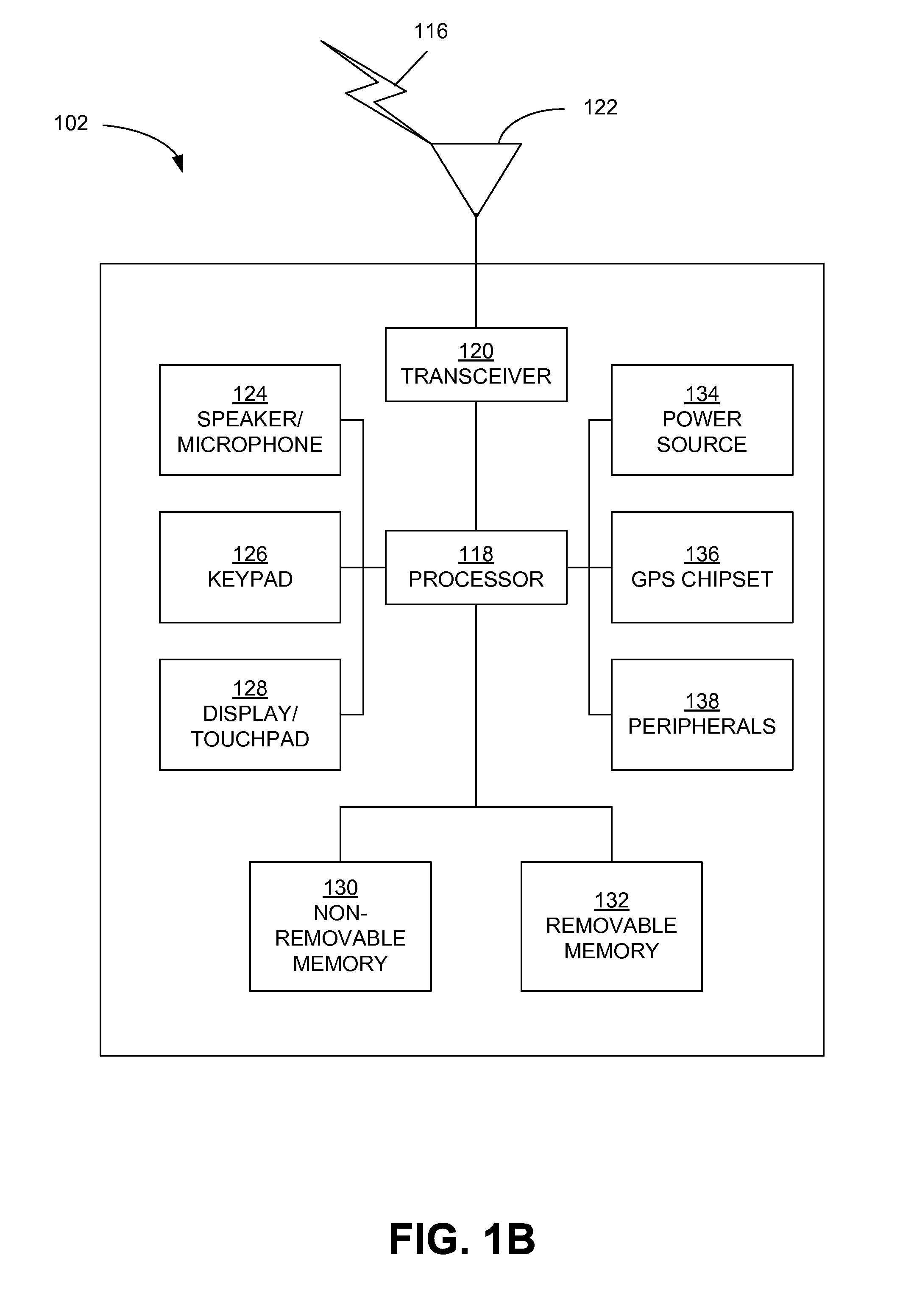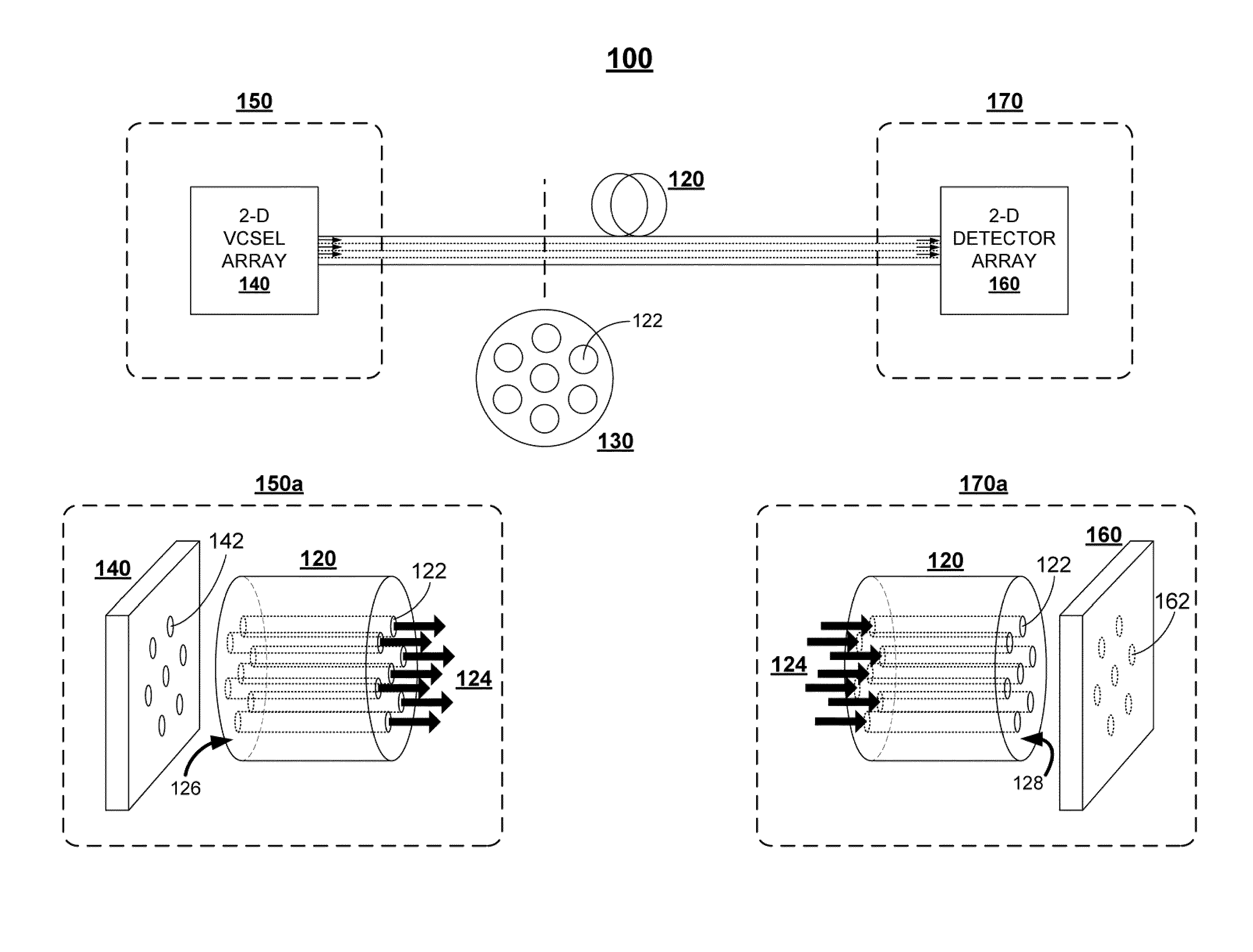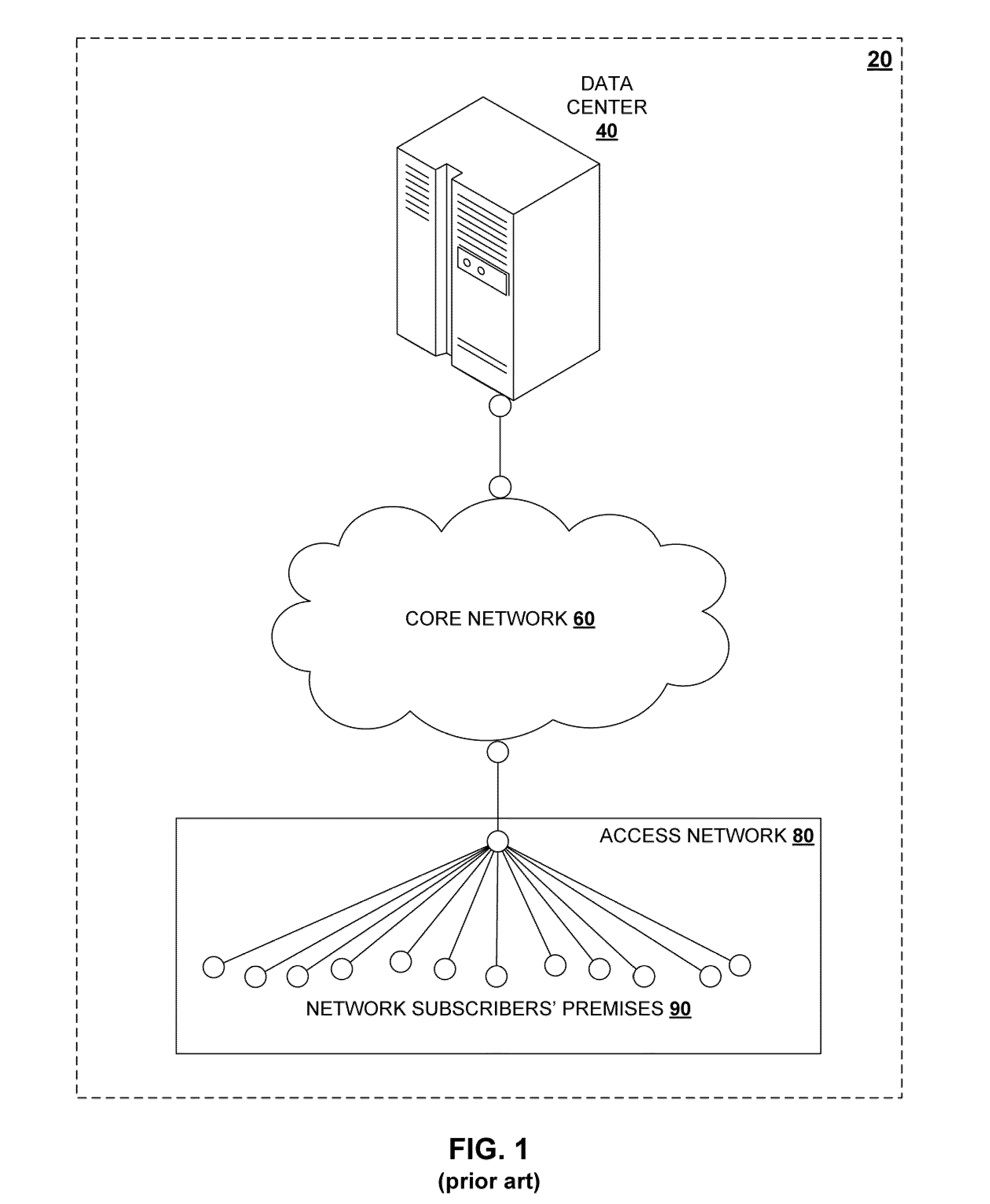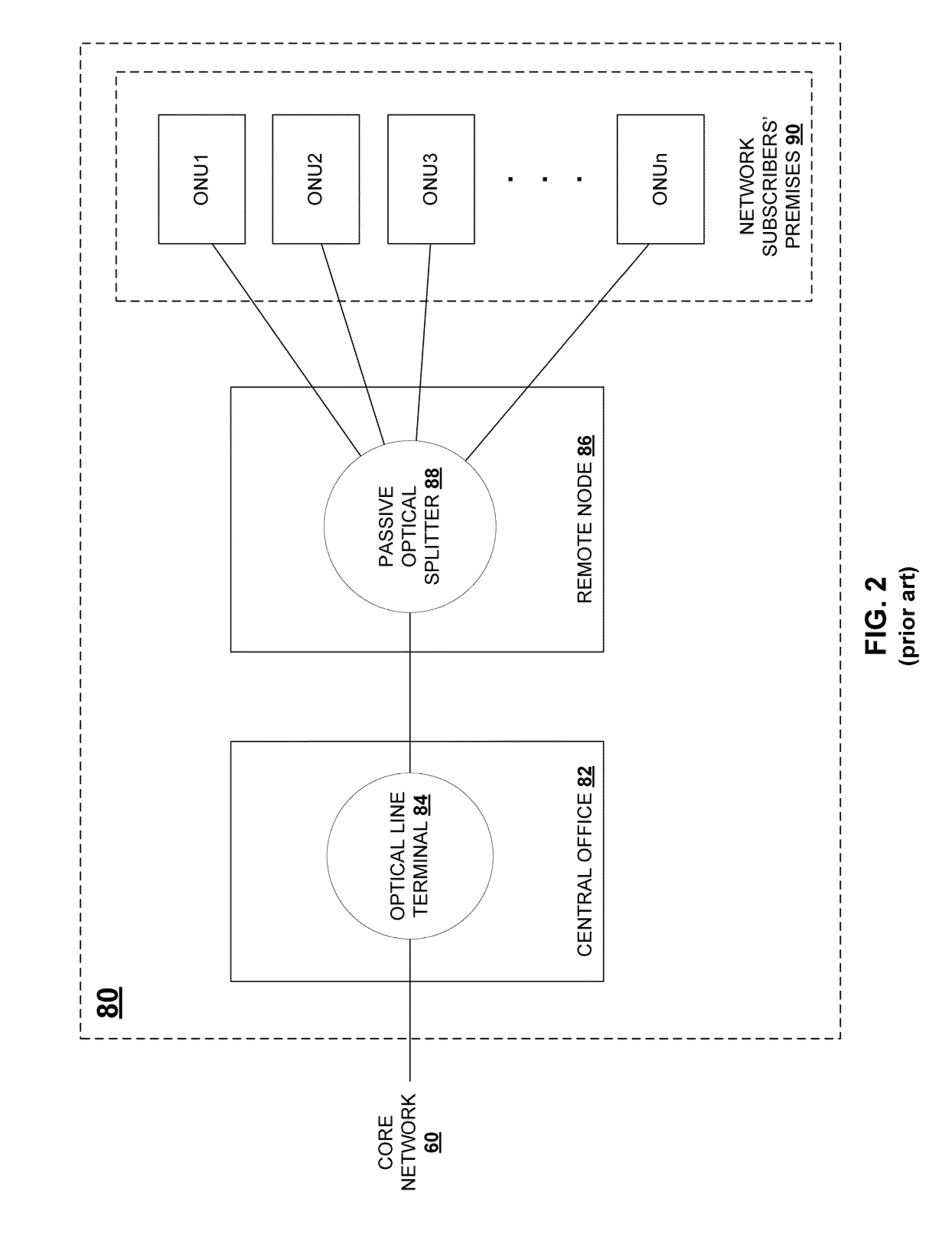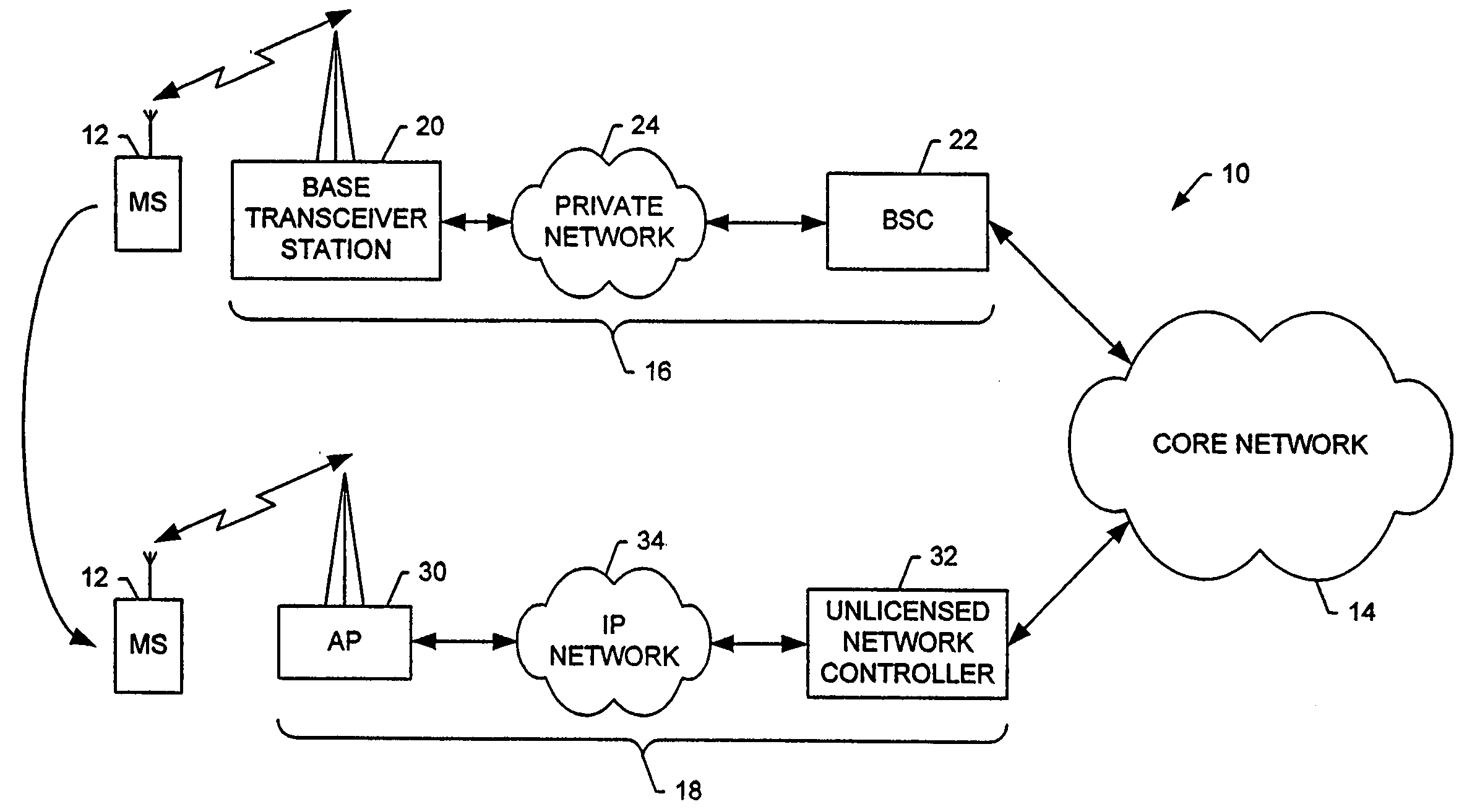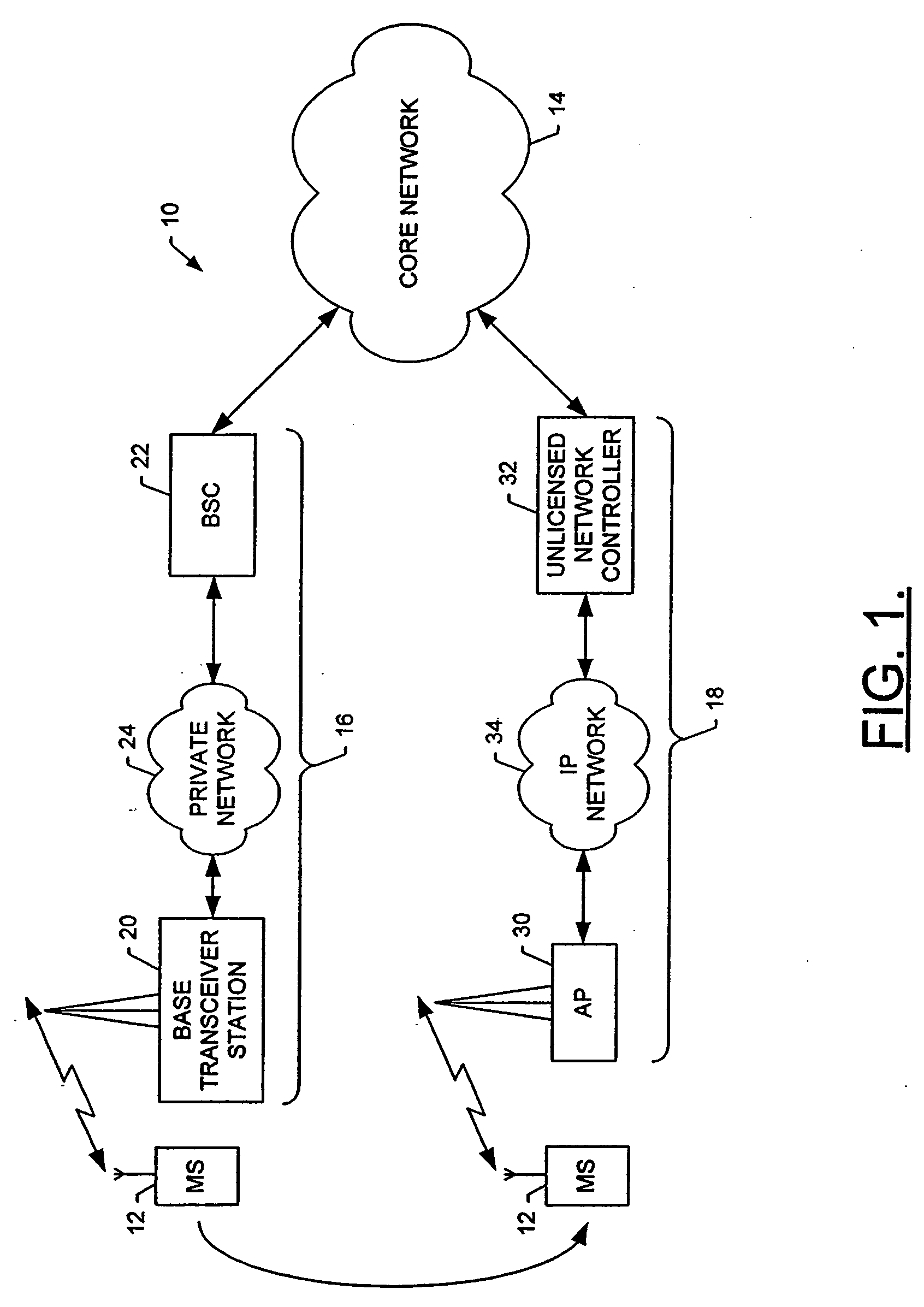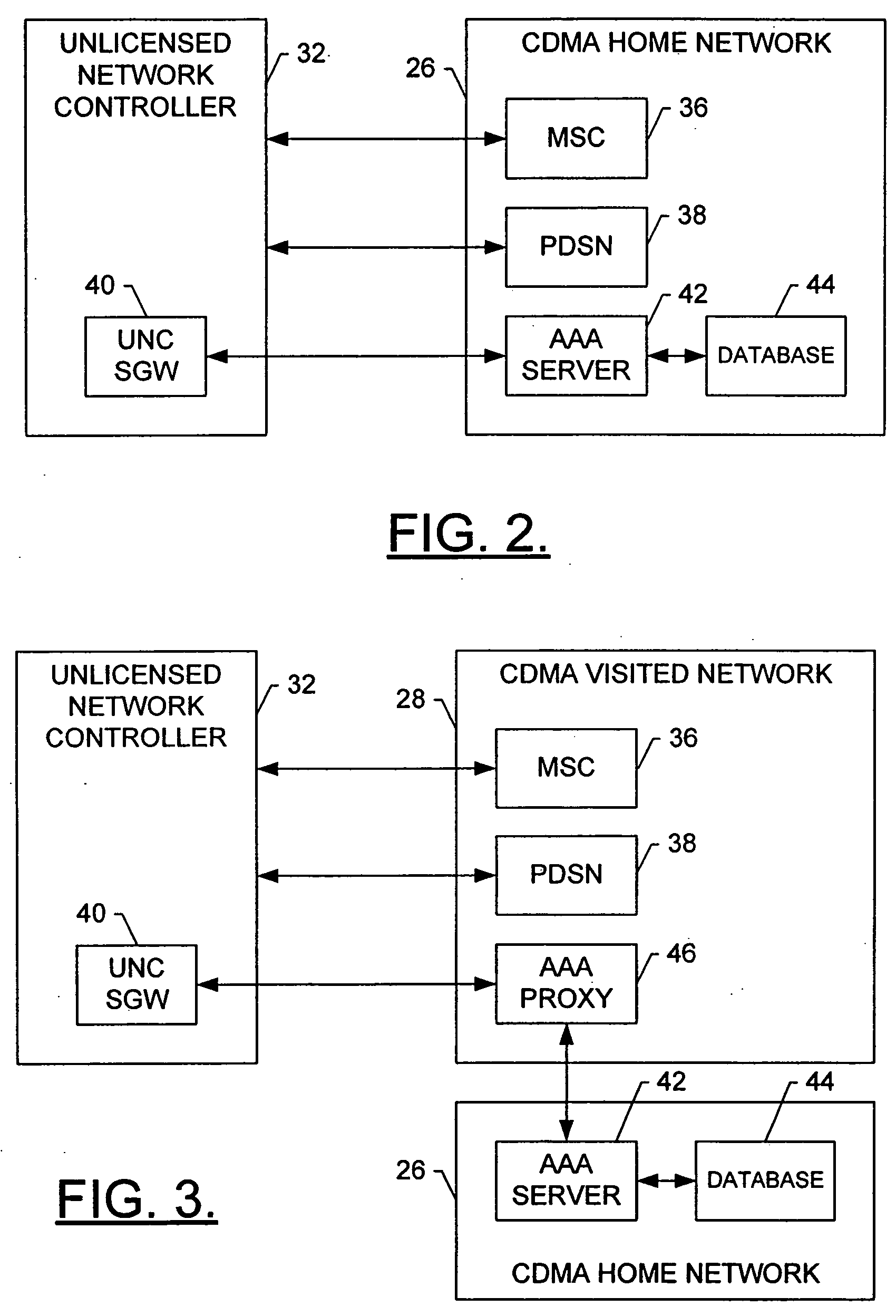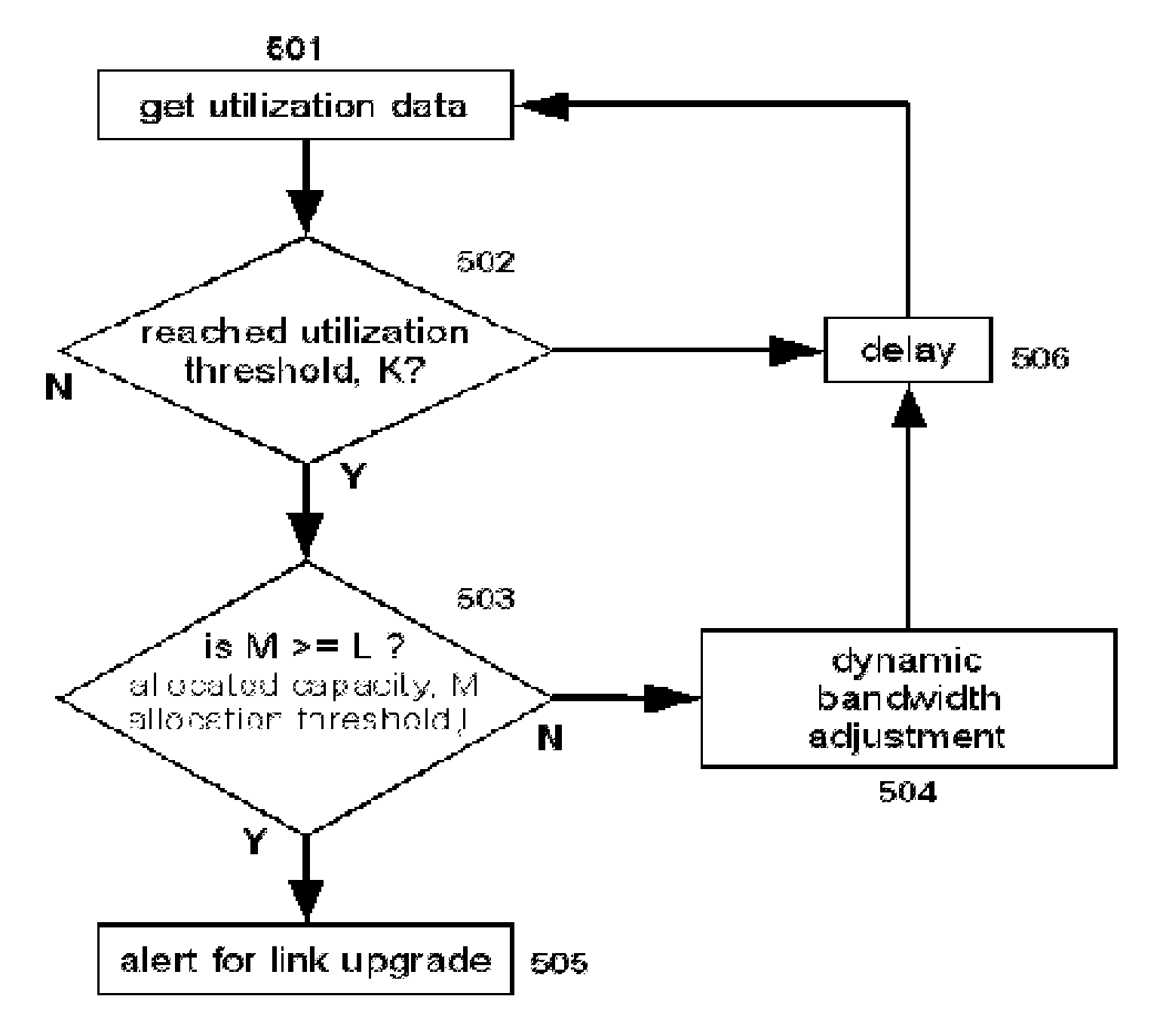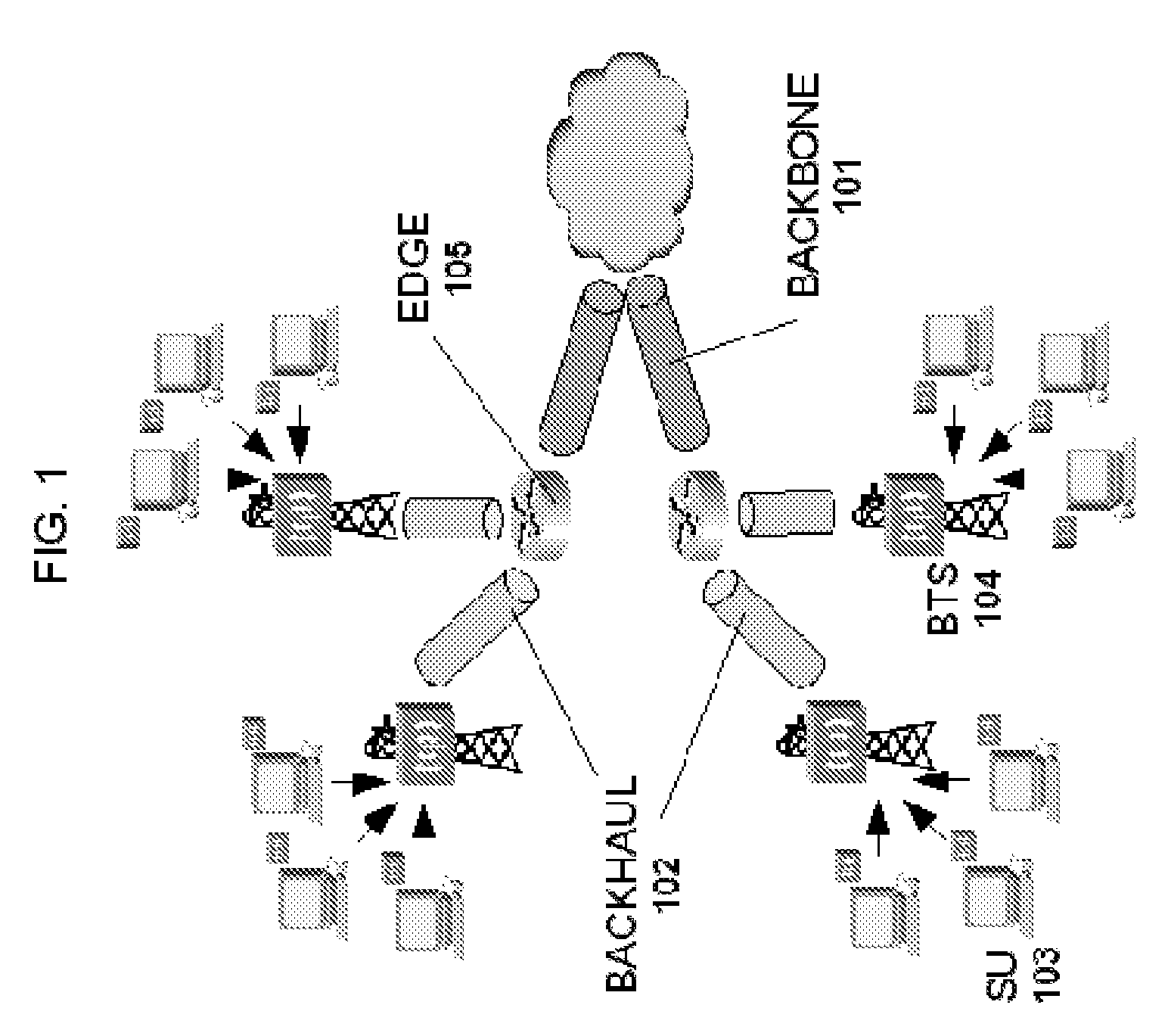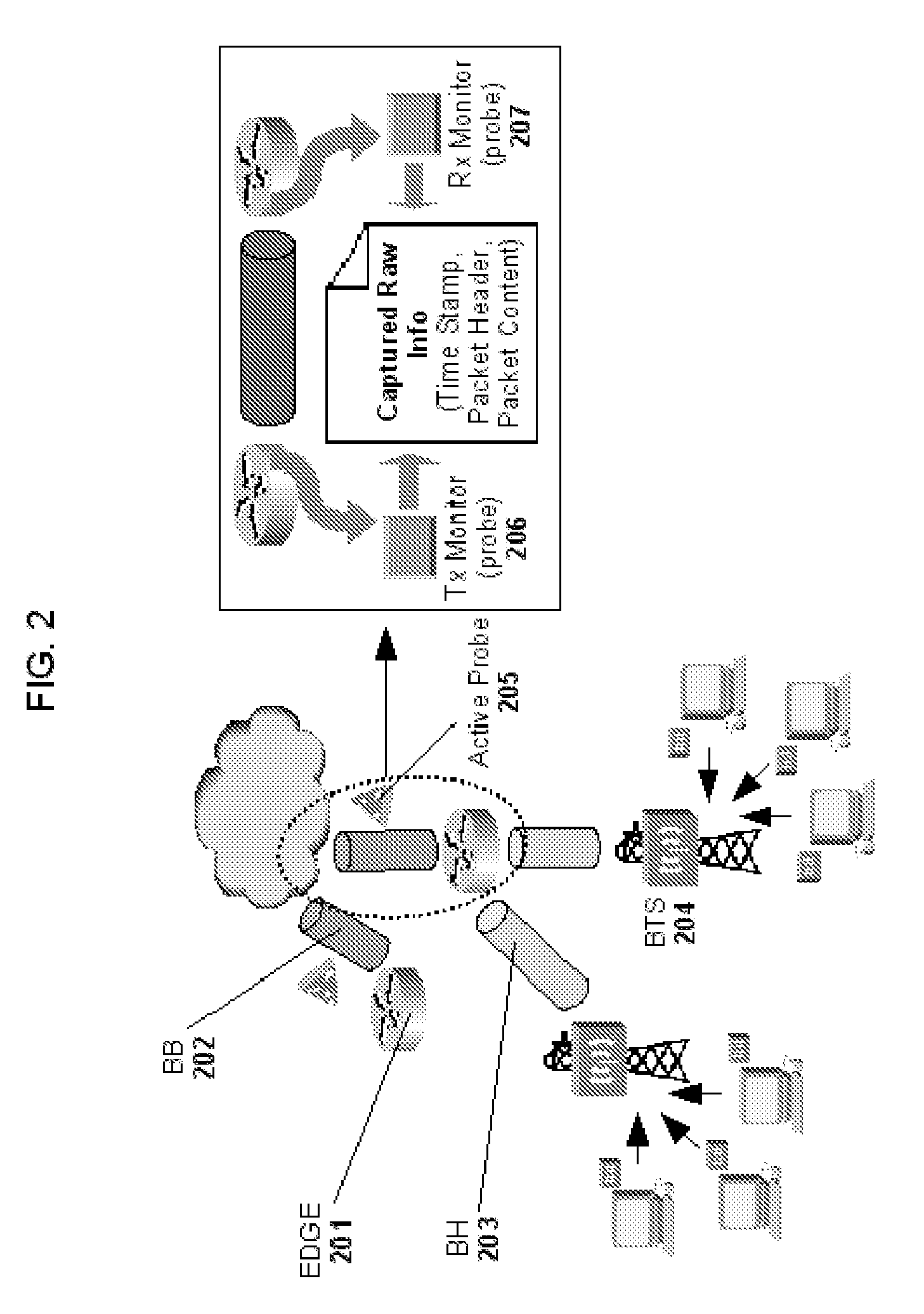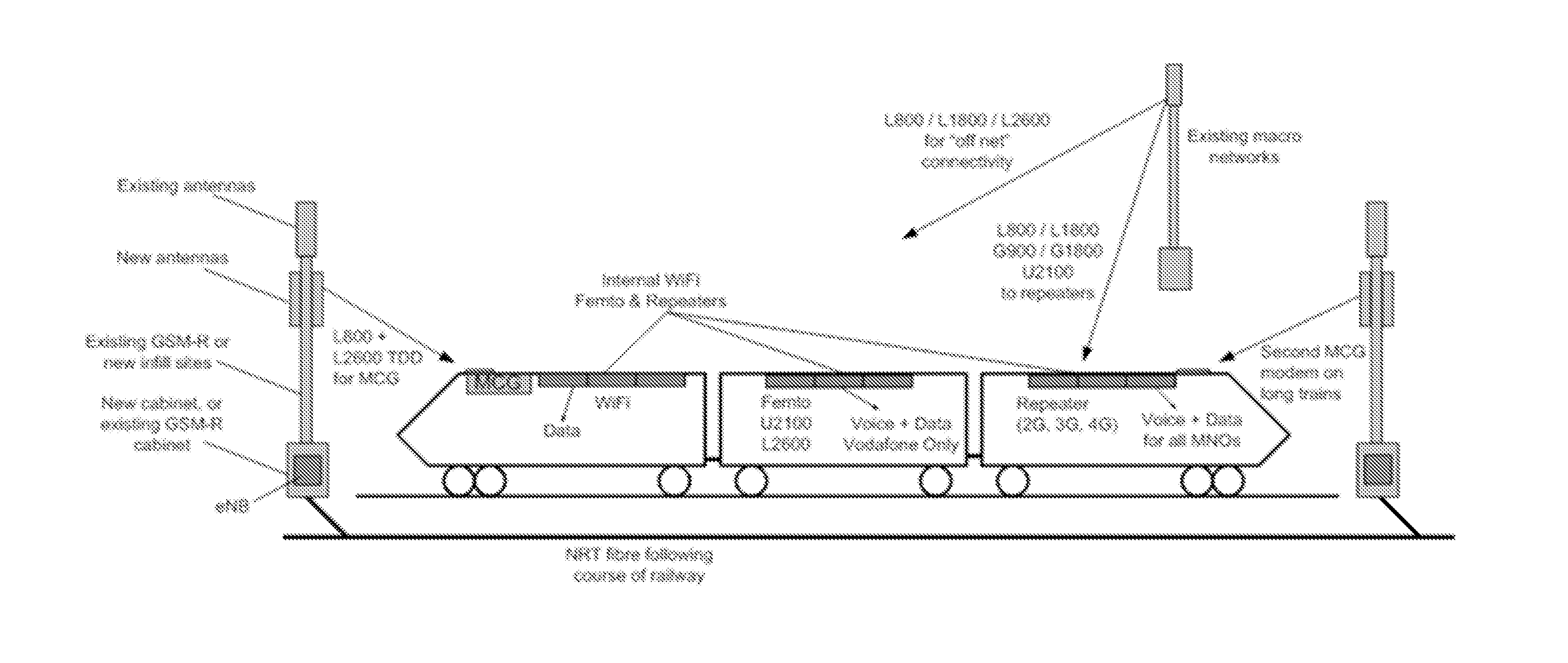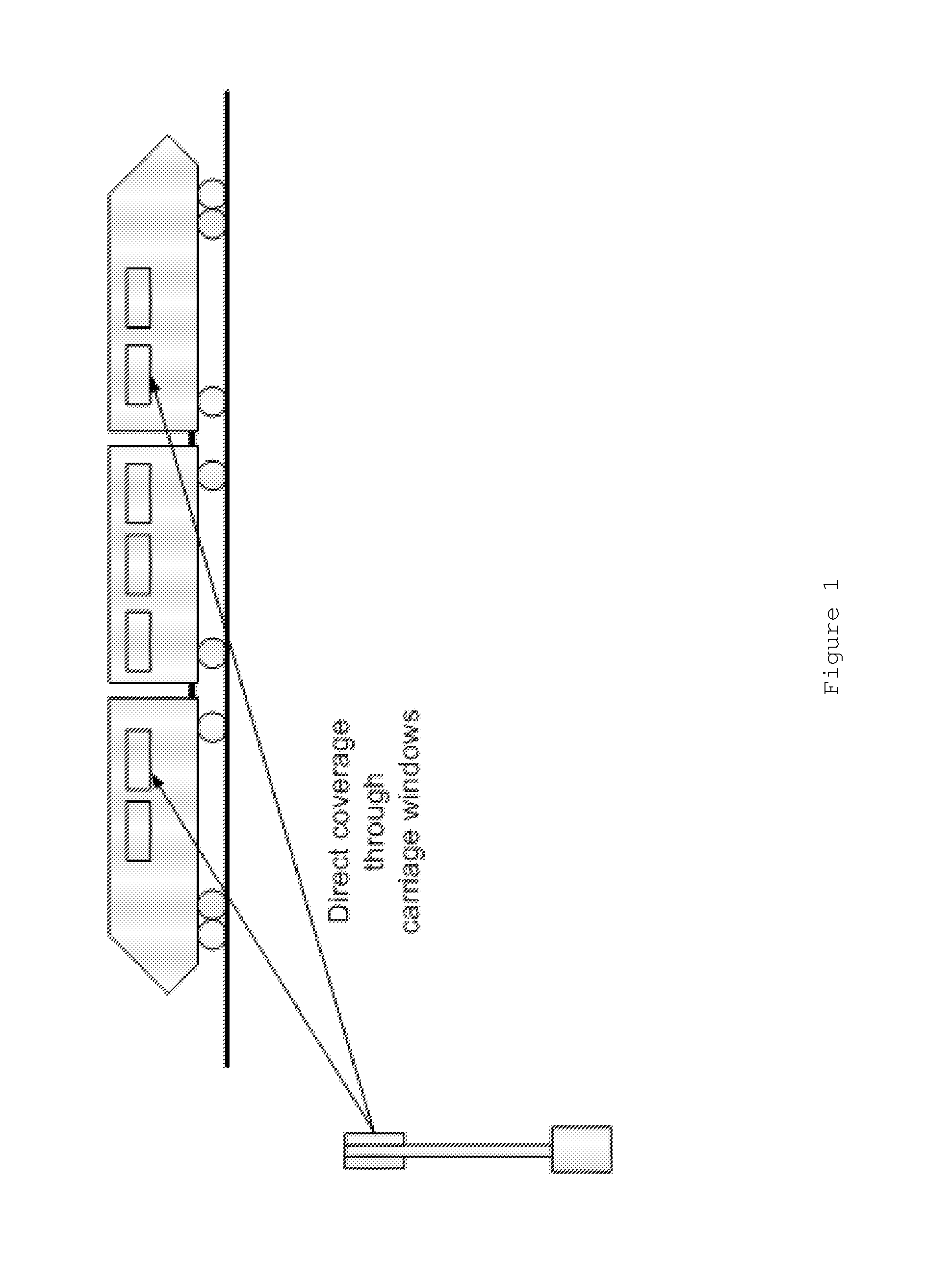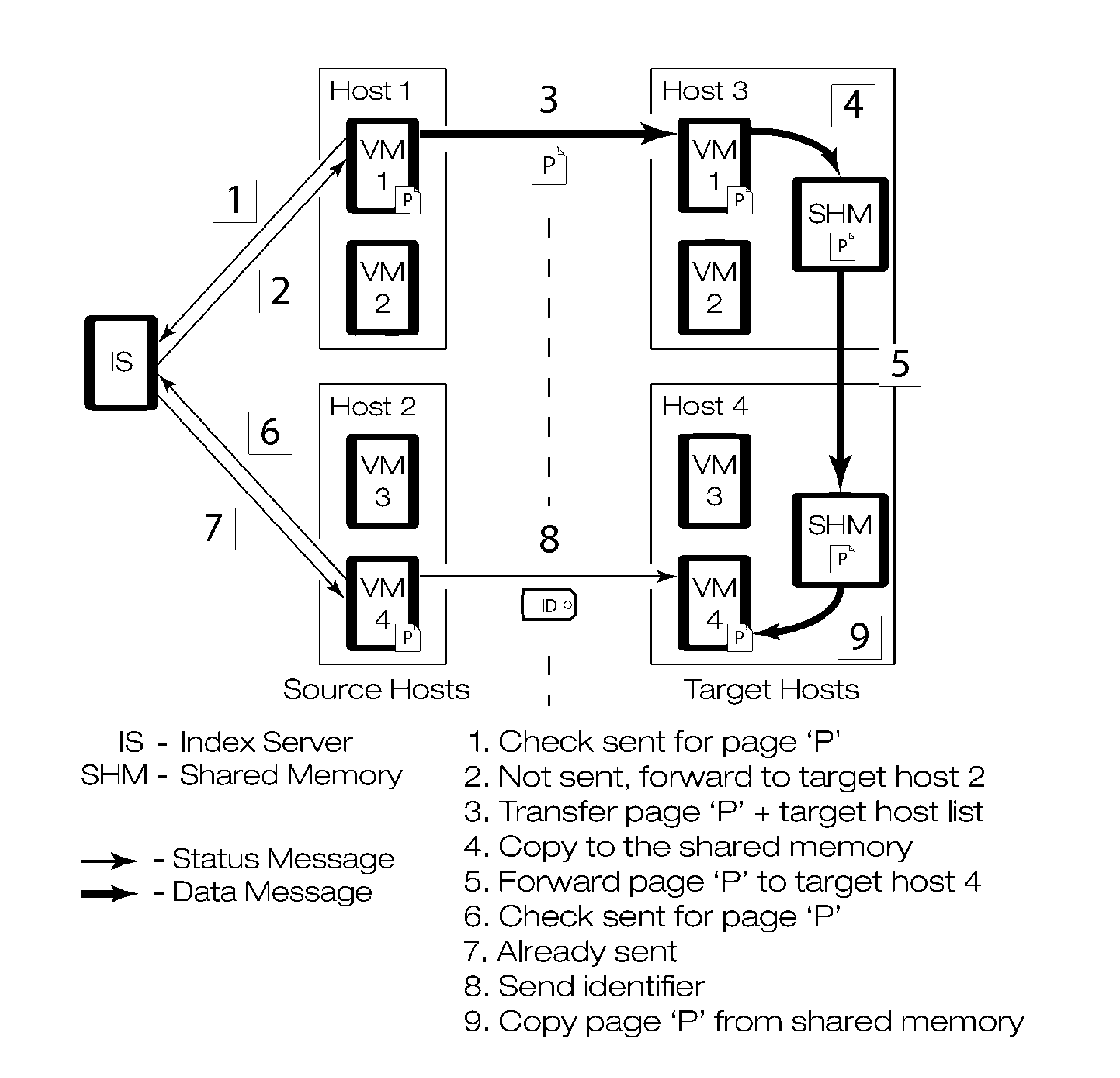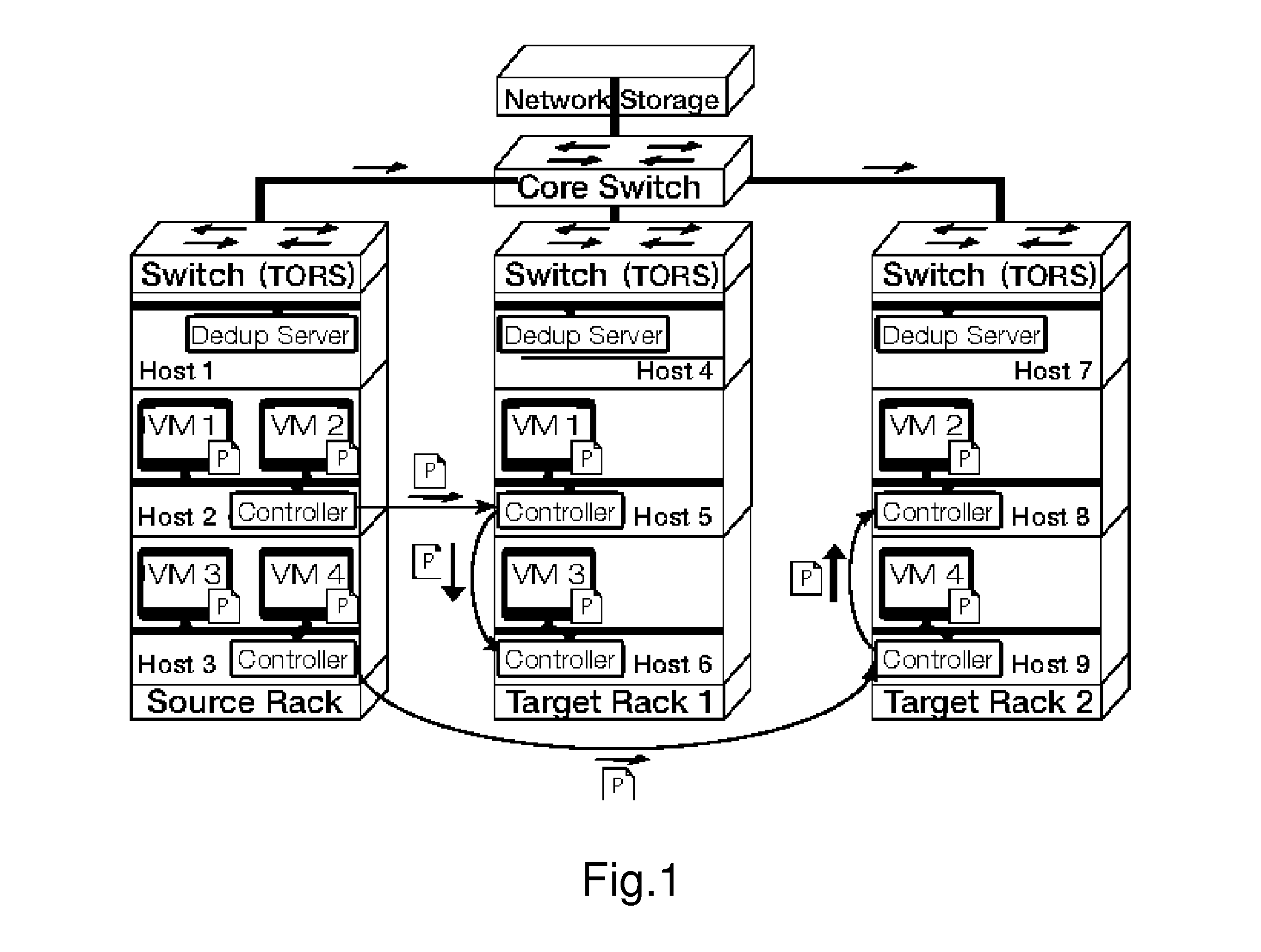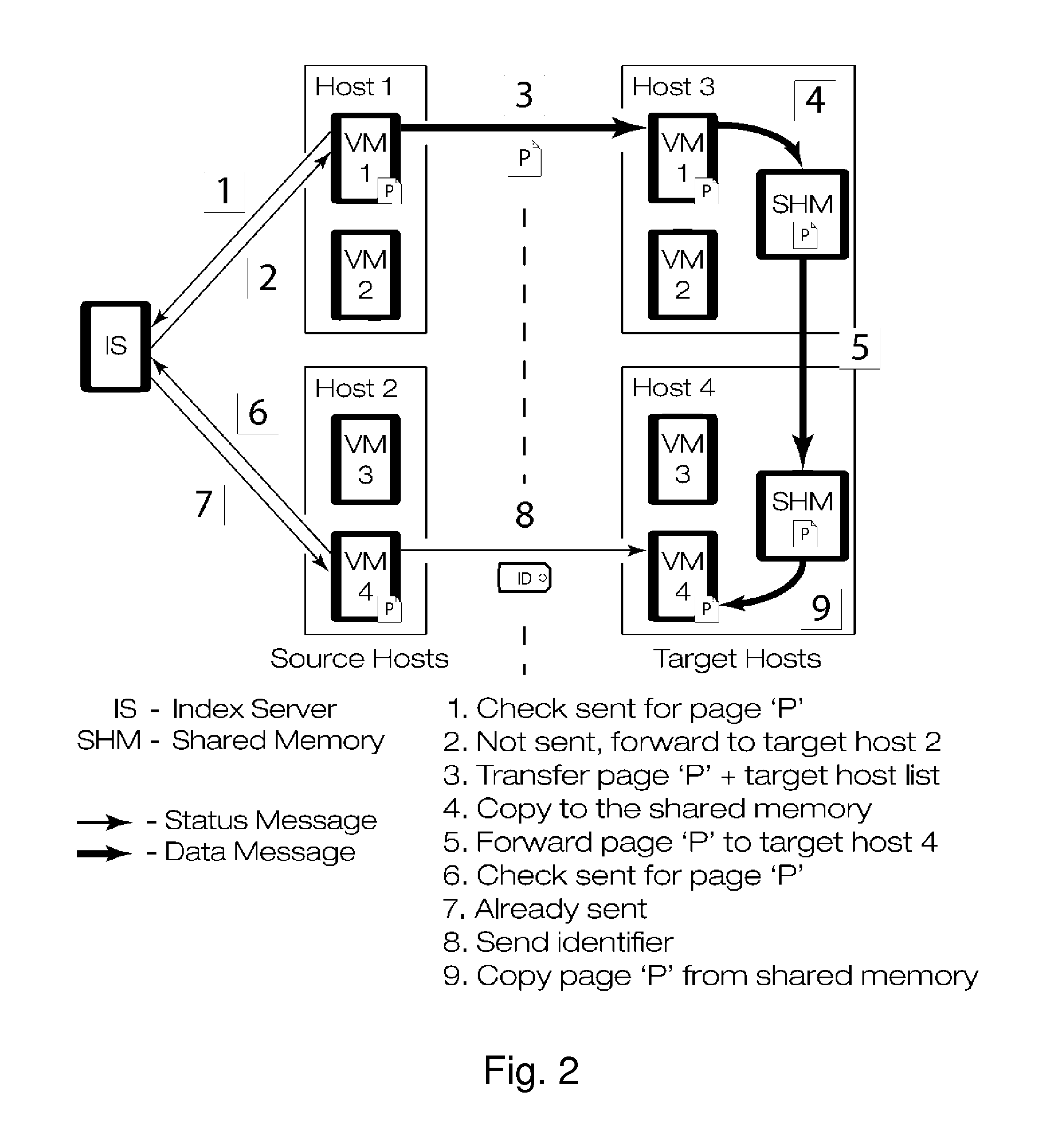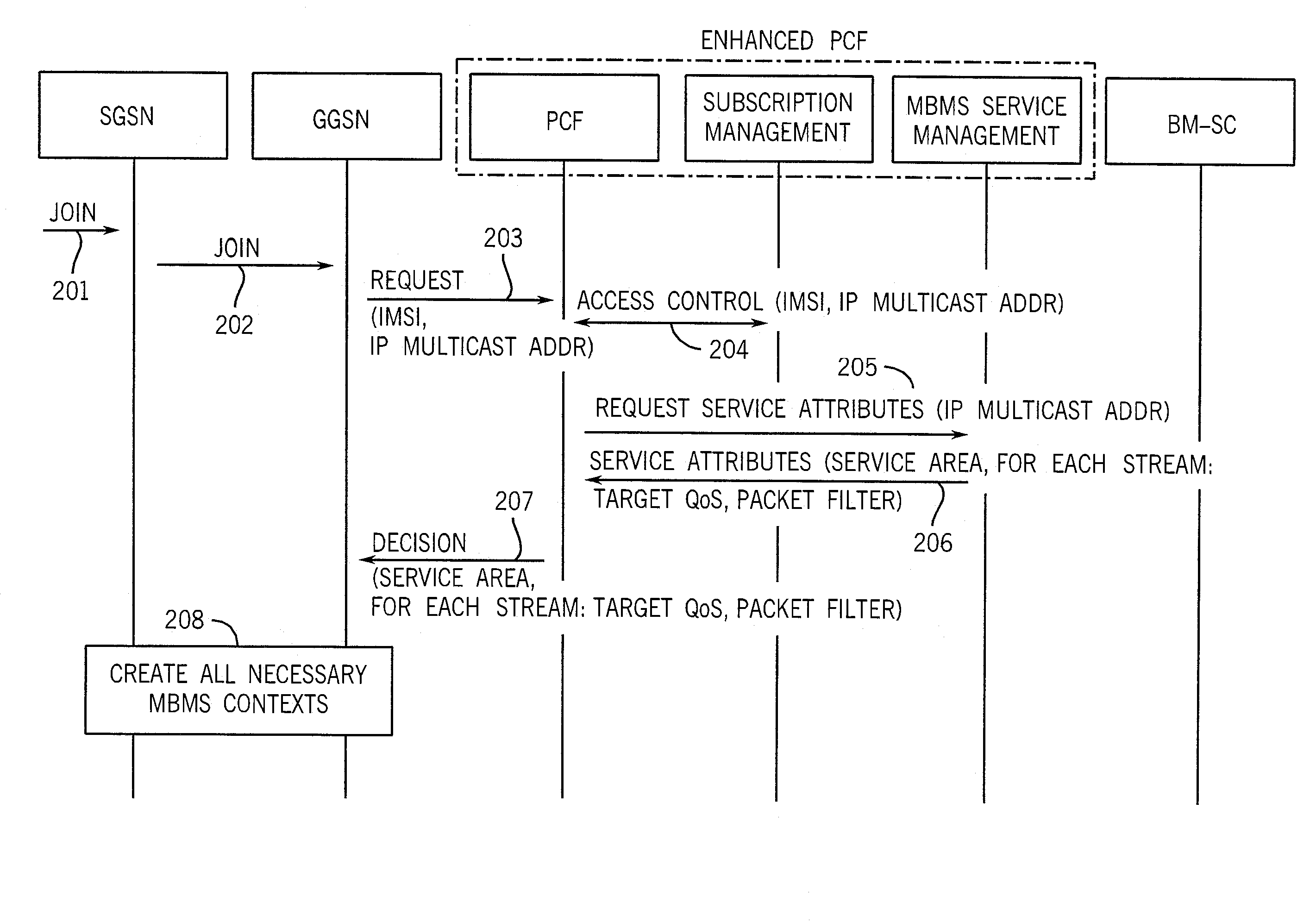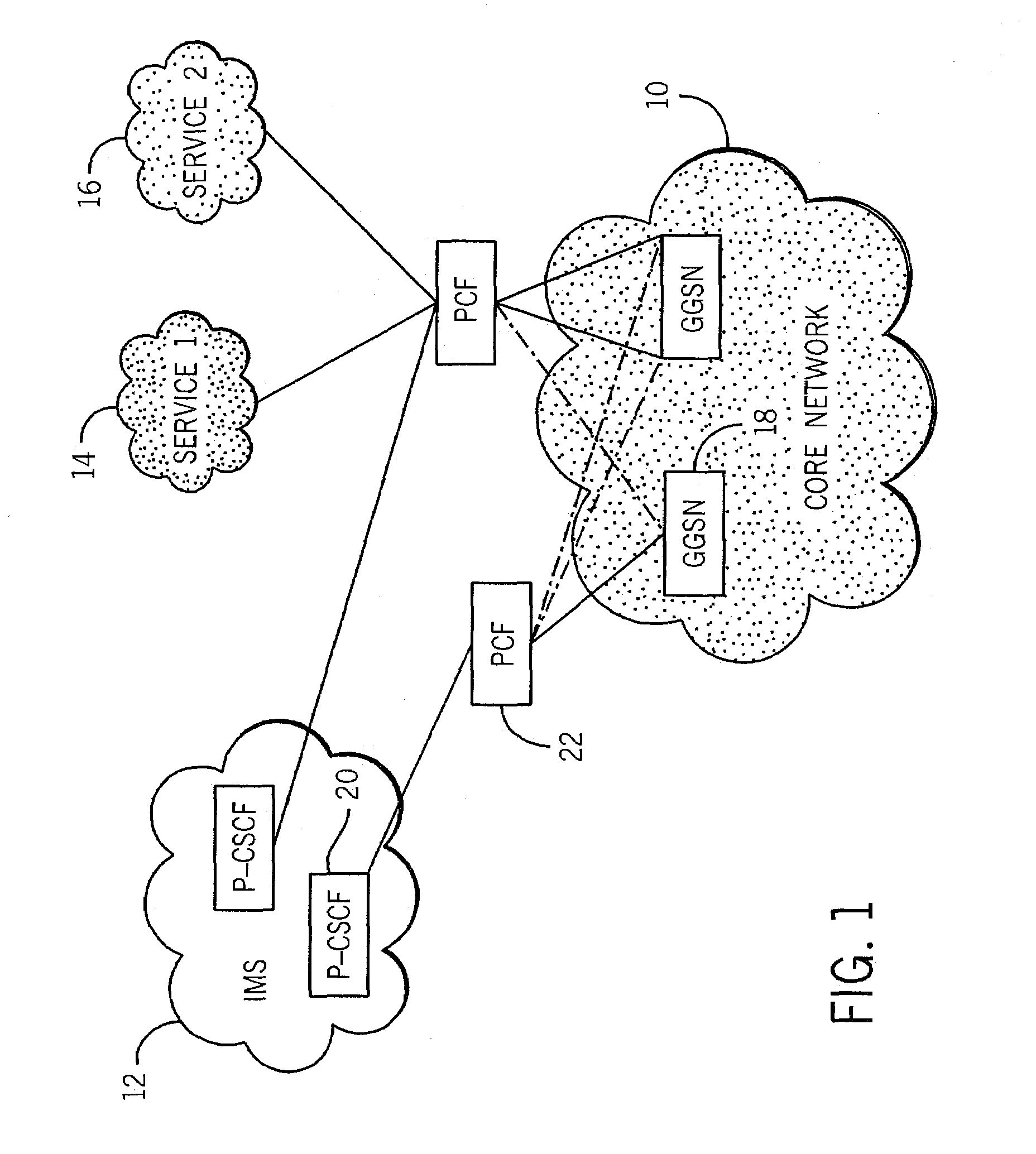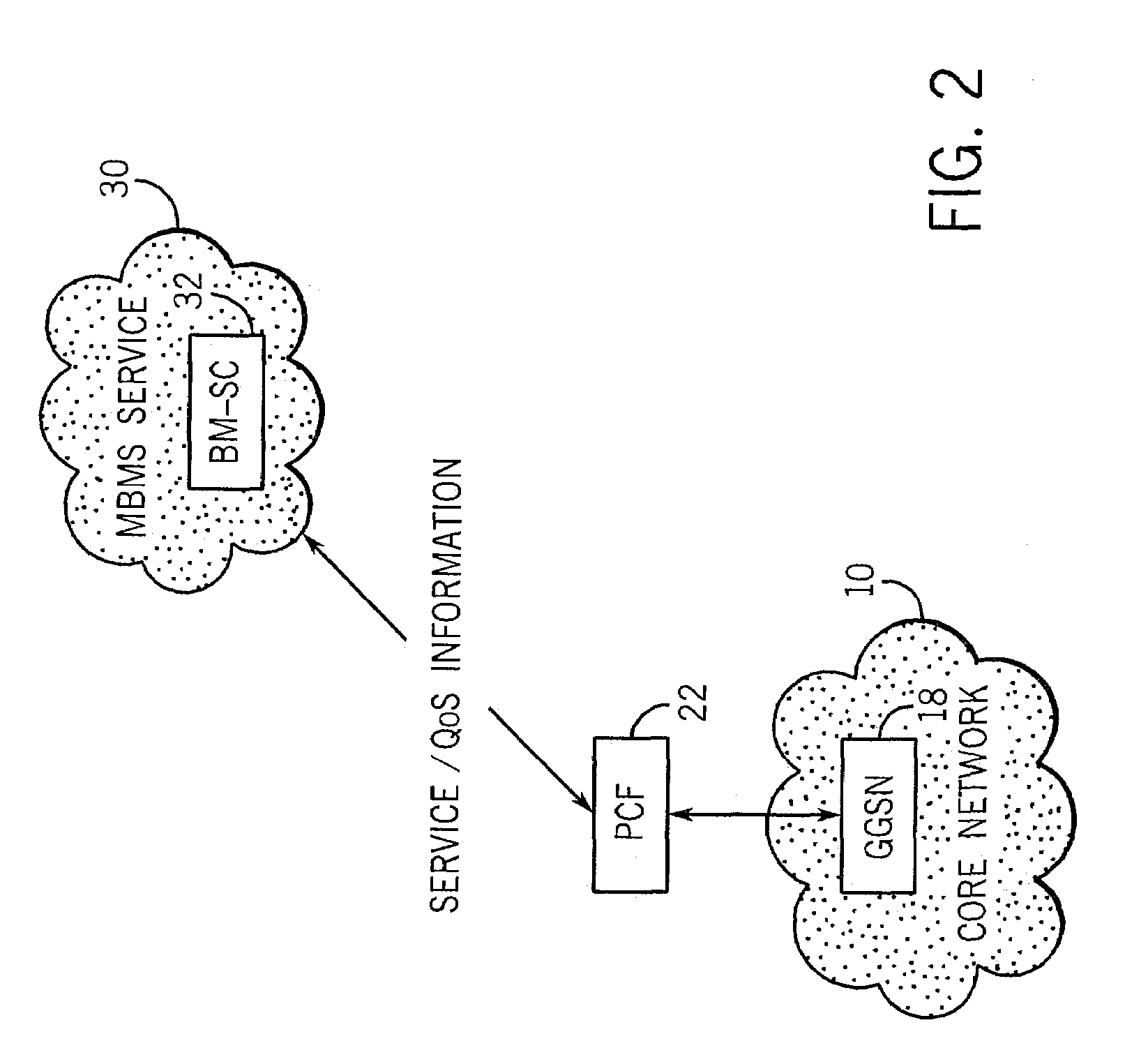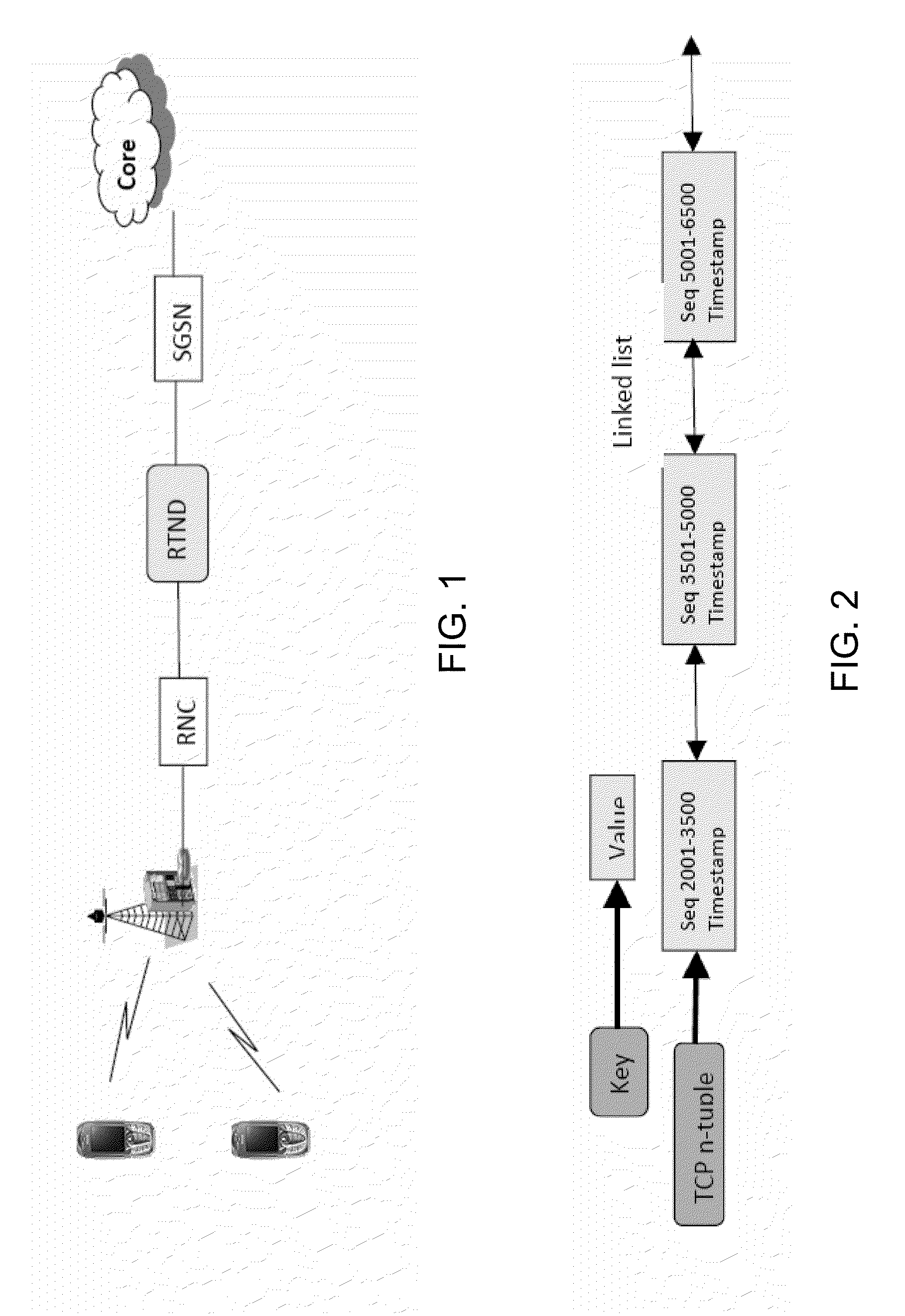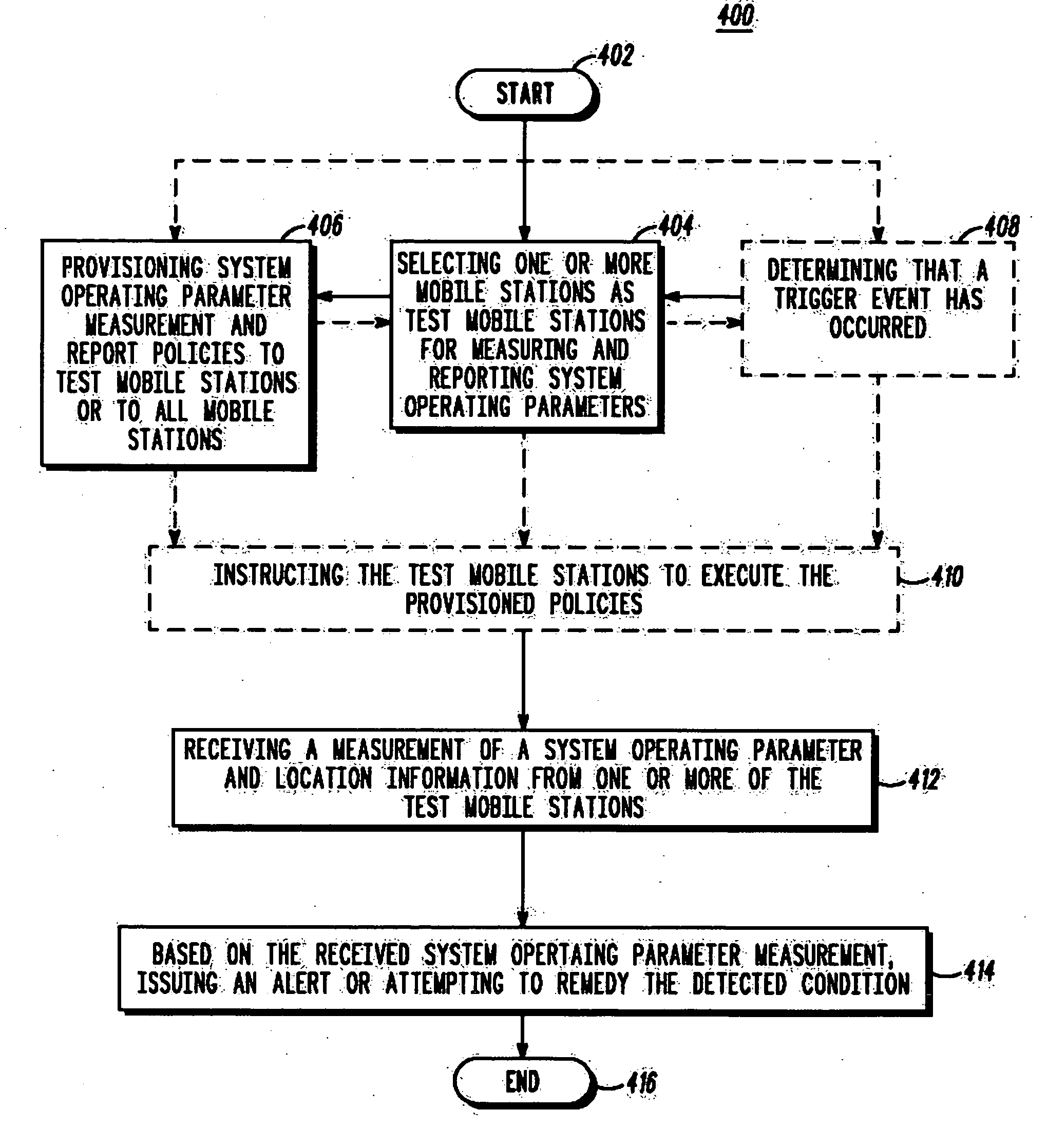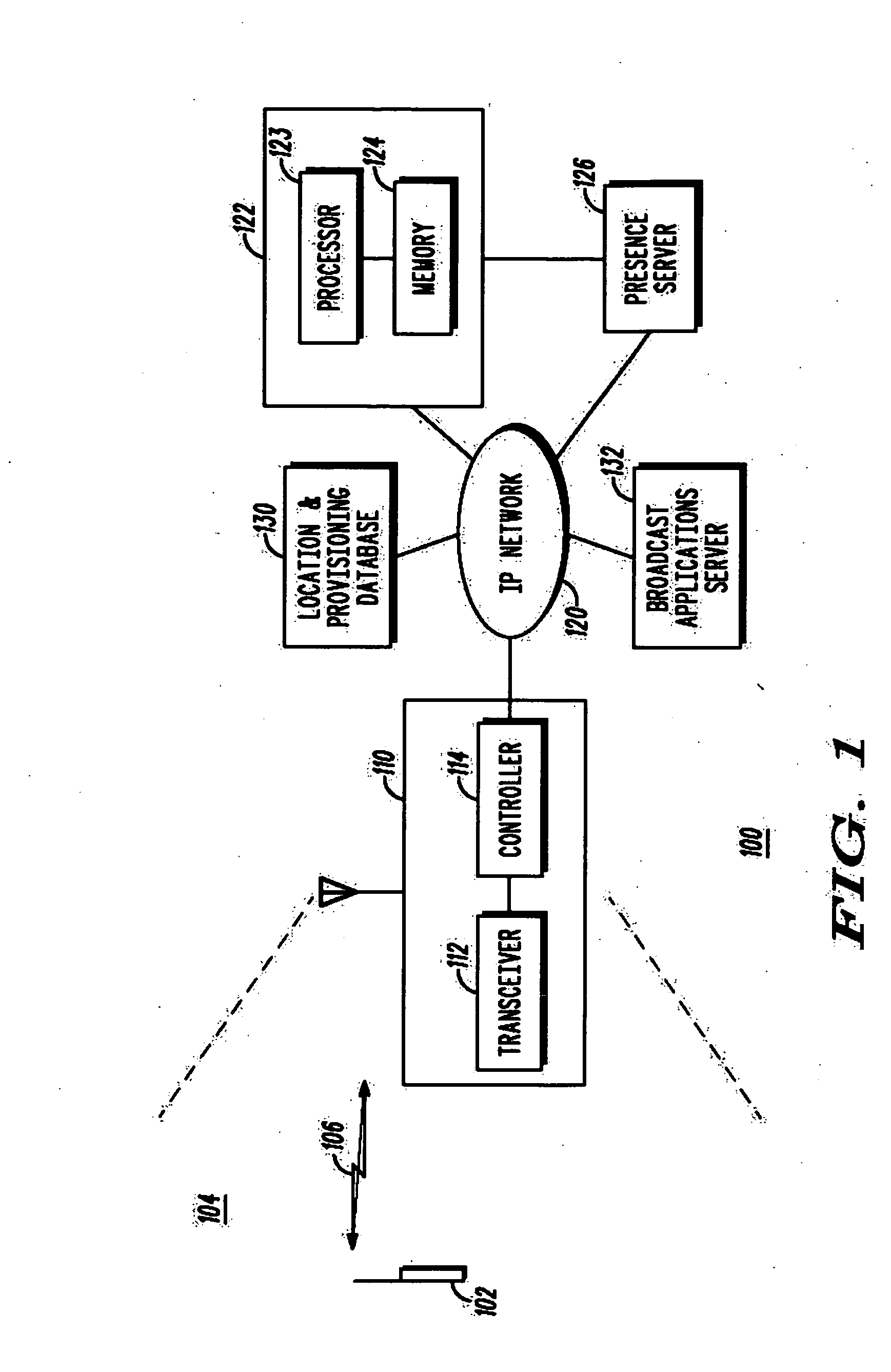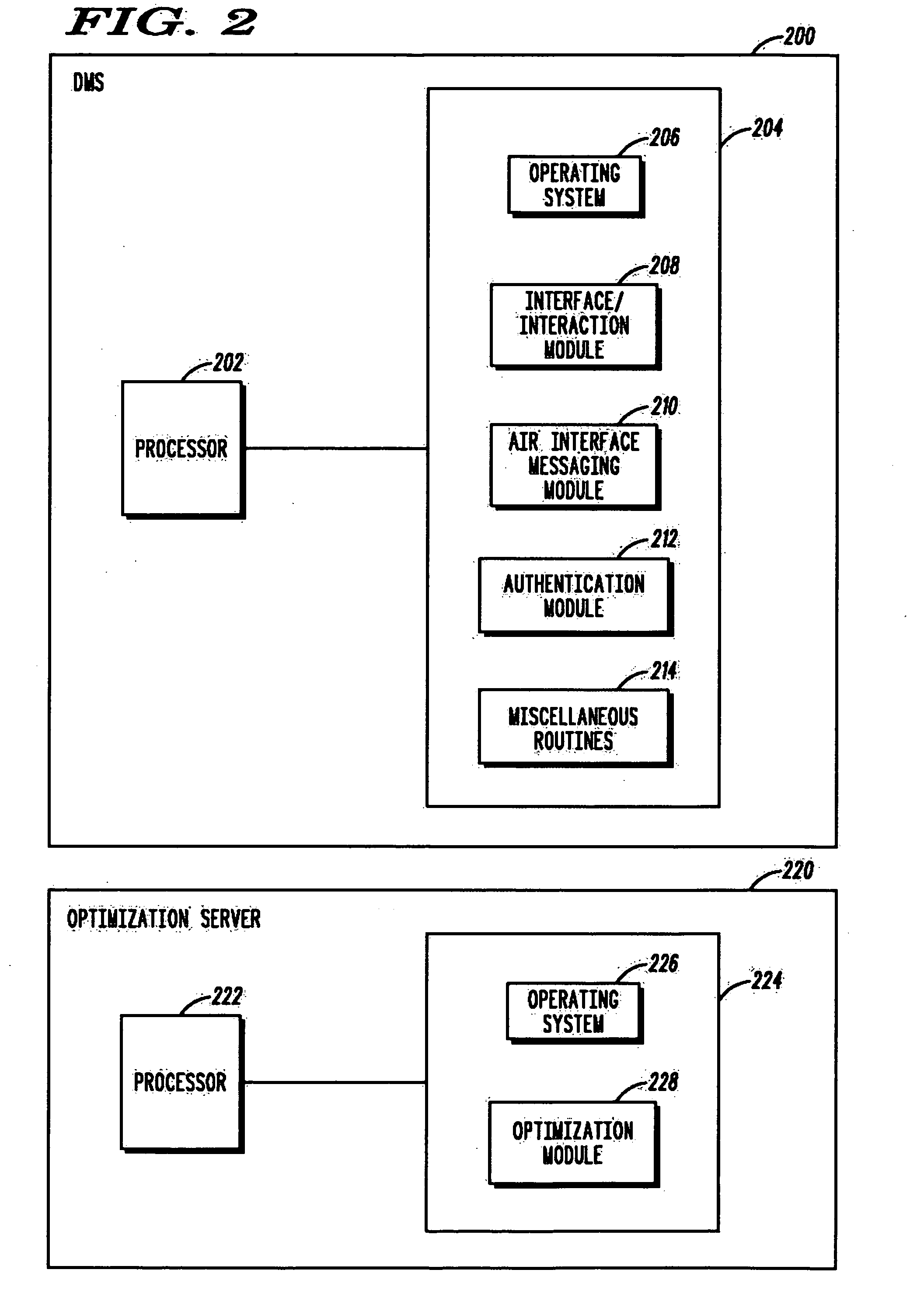Patents
Literature
Hiro is an intelligent assistant for R&D personnel, combined with Patent DNA, to facilitate innovative research.
9701 results about "Core network" patented technology
Efficacy Topic
Property
Owner
Technical Advancement
Application Domain
Technology Topic
Technology Field Word
Patent Country/Region
Patent Type
Patent Status
Application Year
Inventor
A core network, or network core, is the central part of a telecommunication network that provides various services to customers who are connected by the access network. One of the main functions is to route telephone calls across the PSTN. Typically the term refers to the high capacity communication facilities that connect primary nodes. Core/backbone network provides paths for the exchange of information between different sub-networks. For enterprise private networks serving one organization, the term backbone is more used, while for service providers, the term core network is more used. In the United States, local exchange core networks are linked by several competing interexchange networks; in the rest of the world, the core network has been extended to national boundaries. Core/backbone network usually has a mesh topology that provides any-to-any connections among devices on the network. Many main service providers would have their own core/backbone networks, that are interconnected. Some large enterprises have their own core/backbone network, which are typically connected to the public networks.
WiMAX ACCESS POINT NETWORK WITH BACKHAUL TECHNOLOGY
ActiveUS20080090575A1Low costLarge capacityPower managementNetwork traffic/resource managementTransceiverModem device
A WiMAX network and communication method, the network including a plurality of WiMAX nodes deployed in micro or pico cells for providing access service to a plurality of mobile subscribers, a plurality of these nodes being arranged in a cluster, one of the nodes in each cluster being a feeder node coupled to a core network, the modes in each cluster being couple for multi-hop transmission to the feeder node. According to a preferred embodiment, each node includes a transceiver with associated modem, an antenna arrangement coupled to the modem and arranged for multiple concurrent transmissions, and a MAC controller for controlling the transceiver, modem and antenna arrangement for providing both access and backhaul communication.
Owner:QUALCOMM INC
Mobile broadband wireless access point network with wireless backhaul
ActiveUS7620370B2Low costLarge capacityPower managementNetwork traffic/resource managementTransceiverModem device
A WiMAX network and communication method, the network including a plurality of WiMAX nodes deployed in micro or pico cells for providing access service to a plurality of mobile subscribers, a plurality of these nodes being arranged in a cluster, one of the nodes in each cluster being a feeder node coupled to a core network, the nodes in each cluster being coupled for multi-hop transmission to the feeder node. According to a preferred embodiment, each node includes a transceiver with associated modem, an antenna arrangement coupled to the modem and arranged for multiple concurrent transmissions, and a MAC controller for controlling the transceiver, modem and antenna arrangement for providing both access and backhaul communication.
Owner:QUALCOMM INC
Femtocell Integration into the Macro Network
ActiveUS20080207170A1Unauthorised/fraudulent call preventionEavesdropping prevention circuitsCommunications systemNetwork control
Some embodiments of the invention provide a communication system that includes a first communication network, a second communication network, and a core network. The second communication network includes a network controller and a group of two or more access areas that are communicatively coupled to the core network by the network controller. Some embodiments service the second network access areas by providing access area identifiers to each access area while communicating with the first network or core network using a single are identifier assigned to the network controller. Some embodiments provide access control by sending a series of invalid messages to a user equipment (UE) that is not authorized to access services of the second network to reject the UE. Some embodiments reject the UE by sending a message to ban a UE from an access area with a particular access area identifier.
Owner:RIBBON COMM OPERATING CO INC
Packet switching network, packet switching equipment and network management equipment
InactiveUS7046630B2Reduces delay variationReduce in quantityError preventionTransmission systemsAccess networkDelayed time
This invention provides a network management equipment and a packet switching equipment which eliminate a connection setup delay time, reduce a delay and a delay variation involved in data transfer, and effectively perform connectionless data flow processing in a large data network. The network is divided into a connection-oriented core network and a plurality of connectionless access networks connected to the core network where a plurality of connections (called permanent virtual route (PVR)) are set up among a plurality of edge nodes. The network management equipment selects one route from a plurality of PVRs for connectionless data flow received from one of the access networks and transfers data along the PVR.
Owner:HITACHI LTD
Overlay transport virtualization
ActiveUS20090037607A1Data switching by path configurationMultiple digital computer combinationsVirtualizationEdge device
In one embodiment, an apparatus includes one or more internal interfaces in communication with one or more network devices in a first network site through a Layer 2 link, an overlay interface in communication through a Layer 3 link with a core network connected to one or more other network sites, and a table mapping addresses for network devices in the other network sites to addresses of edge devices in the same network site as the network device. The apparatus further includes a processor operable to encapsulate a packet received at one of the internal interfaces and destined for one of the network devices in the other network sites, with an IP header including a destination address of the edge device mapped to the destination network device, and forward the encapsulated packet to the core network.
Owner:CISCO TECH INC
Communication device and communication method using millimeter-wave frequency band
InactiveUS20140073337A1Interference minimizationAntenna arraysNetwork planningComputer hardwareManagement unit
There are provided a communication device using a millimeter-wave frequency band and a communication method using the millimeter-wave frequency band. The communication device includes a beam scheduling unit configured to schedule uplink and downlink beams corresponding to movement of a terminal, a core network interface unit configured to transmit data provided from the beam scheduling unit to a core network, and to provide data received from the core network to the beam scheduling unit, a mobility management unit configured to configure an uplink and downlink beam set based on inter-beam interference information provided from the beam scheduling unit, and an inter-base station interface unit configured to exchange a control message with another base station under control of the mobility management unit. Therefore, it is possible to efficiently build a cellular network using the millimeter-wave frequency band.
Owner:ELECTRONICS & TELECOMM RES INST
Method and apparatus for routing of emergency services for unauthorized user equipment in a home Node B system
ActiveUS8041335B2Lower deployment costsQuality andAssess restrictionNetwork topologiesAccess networkHome Node B
Some embodiments are implemented in a communication system that includes a first communication system comprised of a licensed wireless radio access network and a core network, and a second communication system comprising a plurality of user hosted access points and a network controller. In some embodiments, each access point operates using short range licensed wireless frequencies to establish a service region. In some embodiments, the network controller communicatively couples the core network to the plurality of access points. The method enables an unauthorized user equipment to call from an access point it is not allowed to use for emergency purposes. The method receives at an access point a service request from an unauthorized user equipment with an establishment cause of emergency call. The method sends a registration request to the network controller. The method sends a message to the core network indicating the location of the user equipment.
Owner:RIBBON COMM OPERATING CO INC
Method, apparatus, edge router and system for providing QoS guarantee
ActiveUS7903553B2High-speed capabilityHigh-speed simplicityError preventionFrequency-division multiplex detailsTraffic capacityAccess network
The present invention discloses a method for providing QoS guarantee by an edge router, the edge router transporting user traffic between the access network and core network, the method comprising: creating a service traffic flow classification table; establishing a plurality of label switching paths; configuring the attributes of the label switching paths; classifying and conditioning the service traffic flows entering into the core network at a downlink interface of an edge router according to the service traffic flow classification table; forwarding the processed traffic by an uplink interface of the edge router according to the attributes of the label switching paths. The present invention also discloses an apparatus for providing QoS guarantee by an edge router. Using the present invention, an edge router can provide exact QoS guarantee and QoS routing control for the application flows.
Owner:HUAWEI TECH CO LTD
Handover of Connection of User Equipment
InactiveUS20130201904A1Increase profitLess capacityFrequency-division multiplex detailsTime-division multiplexAccess networkHandover
There is provided initiating a handover of a connection of user equipment, the connection including a path from an access network to a core network and switching the path to the core network on the basis of data received on the connection exceeding a threshold.
Owner:NOKIA SOLUTIONS & NETWORKS OY
Mobile communication network system and method for composing network component configurations
ActiveUS20170070892A1Configuring networkAssess restrictionNetwork topologiesAccess networkNetworked system
Disclosed is a mobile communication network system and a network configuring method. The communication network system includes: a common control access network; at least one access network slice added according to a service type requested by a device; a common control core network; and at least one core network slice added according to a service type requested by the device. The access network slice and the core network slice are determined by the service type requested by the device.
Owner:ELECTRONICS & TELECOMM RES INST
Computer network with point-to-point pseudowire redundancy
A computer network includes a core network connected with first and second Ethernet access domain networks, each of Ethernet access domain networks including a user-facing provider edge (u-PE) device, a primary network-facing provider edge (n-PE) device, a redundant n-PE device, and a plurality of aggregation provider edge (Agg-PE) devices providing connectivity between to the u-PE device and the primary and redundant n-PE devices, the Agg-PE devices running a spanning-tree protocol (STP) algorithm. A primary data path is provided along with first and second redundant data paths that include first and second redundant pseudowires (PWs), respectively, connected across the core network, the first and second redundant data paths being blocked by the STP algorithm when the primary data path is available, the STP algorithm unblocking either the first or second redundant data path in response to a failure of the primary data path. It is emphasized that this abstract is provided to comply with the rules requiring an abstract that will allow a searcher or other reader to quickly ascertain the subject matter of the technical disclosure. It is submitted with the understanding that it will not be used to interpret or limit the scope or meaning of the claims.
Owner:CISCO TECH INC
Universal mobile telecommunications system (UMTS) quality of service (QoS) supporting variable QoS negotiation
InactiveUS7668176B2Eliminate, delays in establishing user connectionsNetwork traffic/resource managementTime-division multiplexQuality of serviceDistributed computing
A UMTS (Universal Mobile Telecommunications System) core network supports the negotiation of variable quality of service (QoS). A QoS information element (IE) is defined that supports downgradeable QoS requirements by allowing multiple traffic classes to be specified in a priority order. Similarly, a QoS information element (IE) is defined that supports upgradeable QoS requirements.
Owner:ALCATEL-LUCENT USA INC
Radio communication system and mobility management method
InactiveCN101035308AEnsure consistencyStay physically resident on the networkAssess restrictionRadio/inductive link selection arrangementsCommunications systemMobility management
The invention discloses a wireless communication system and a mobile management method. And the wireless communication system comprises first wireless network and second wireless network, where the location area marks broadcasted by the first and second wireless networks are the same, and received by mobile terminal so as to make the mobile terminal in idle mode not initiate any location updating flow when roaming between the first and second wireless networks; and the configuration information of at least one support node of the core networks of the first and second wireless networks is set with information of expressing preferred network.
Owner:HUAWEI TECH CO LTD
Network and edge router
InactiveUS7072346B2Inexpensive and highly scalableInexpensive, highly scalable VPNNetworks interconnectionNetwork connectionsAccess networkNetwork packet
In network for forming a VPN on a shared network and communicating via the VPN, a core network of the VPN is formed by an MPLS network, access networks for accessing the core network are formed by VLANs, and edge routers are provided between the MPLS network and VLANs for interfacing the MPLS network and the VLANs. A transmit-side edge router converts a packet, which enters from a VLAN, to an MPLS packet and transmits this MPLS packet to the MPLS network, A receive-side edge router converts the MPLS packet, which has been received from the MPLS network, to a VLAN packet and directs the VLAN packet to a VLAN that belongs to the same VPN as that of a VLAN on the transmit side.
Owner:FUJITSU LTD
Distributed MIMO public mobile communication system
InactiveCN1885736AReduce spatial correlationIncrease independenceSpatial transmit diversityGeolocationCost Controls
The disclosed distributed MIMO public mobile communication system comprises: spanning antenna on street lamp to connect antenna to a central signal processor through current lamp cable, and accessing server to connect with a core network. This invention makes full use of current lamp system, reduces antenna space correlation, and improves system performance and capacity with low cost.
Owner:UNIV OF ELECTRONICS SCI & TECH OF CHINA
Apparatus and messages for interworking between unlicensed access network and GPRS network for data services
Methods for performing various operations via unlicensed mobile access (UMA) radio link control (URLC) messages in an unlicensed mobile access network (UMAN). The UMAN comprises a first radio access network that may be employed for accessing data services provided by a core network comprising a second radio access network. URLC messages are exchanged between mobile stations (MSs) and UMA network controllers (UNCs) to perform various operations associated with the UMAN. An MS may access the UMAN via a wireless access point (AP) that is communicatively coupled to a UNC via an IP network. The URLC messages are sent between MSs and UNCs using an Up interface comprising a set of layered protocols over an underlying IP transport.
Owner:RIBBON COMM OPERATING CO INC
Common radio resource management method in a multi-RAT cellular telephone network
ActiveUS20050026616A1Avoid complex processAvoid problemsNetwork traffic/resource managementRadio/inductive link selection arrangementsCellular telephoneHandover
A Common radio resource management method is performed in a mobile radio communication network employing different radio access technologies that overlap over a geographic area subdivided into cells belonging to the domains of respective controllers which are connected to each other in overlapping or adjacent domains and to a core network by means of relevant interfaces. The controllers calculate new traffic-related Information Elements to be exchanged over the existing interfaces to the aim of planning handovers and / or cell reselections towards adjacent cells either of the same or different RAT. Cell capabilities and mobile terminal capabilitiess being also specified by respective IEs. Diversely from the conventional traffic-related IEs based on Cell Load parameters or Free Capacity, the new IEs include indications of the “availability” of bearer services in the cell in terms of maximum bitrate, either guaranteed or not guaranteed, that can currently be allowed to each bearer service.
Owner:RPX CORP +1
Cloud platform supporting fusion network service and operating method thereof
InactiveCN101969391APromote innovationGood varietyData switching by path configurationGPRS core networkClosed platform
The invention relates to a cloud platform supporting fusion network service and an operating method thereof. The cloud platform is provided with a plurality of hardware and software resources, and is connected with three access networks of a telecommunication network, an interconnection network and a broadcasting and television network respectively through three core networks of operators of the three networks and the corresponding communication protocol to allow platform users (including the operators of the three networks or service providers and the like) to rent platform resources according to respective requirements to deploy respective services and operational capabilities. The cloud platform has a layered structure, and is provided with a platform management layer, a service execution layer, a resource virtualization and management layer and a hardware resource layer respectively from top to bottom, and in an interactive mode among the layers, an upper-layer module uses the function provided a lower-layer module in a mode of interface call. The cloud platform supports the platform users to adjust the rent resources dynamically and conveniently according to actual requirements, and simultaneously, provides the access capability on the resources of the three networks and convenience for the development and operation of the fusion network service by the platform users.
Owner:BEIJING UNIV OF POSTS & TELECOMM
Business exchaging method for switching from 2G to 3G mobile communication system
InactiveCN1889777ARadio/inductive link selection arrangementsWireless communicationAccess network3g mobile communications
A method for changing service from 2G network back to 3G network includes informing access network to revise said service to be SCUDIF call service after switched back service quality being decreased in 2G network is confirmed by core network in 3G network, revising said service to be SCUDIF call service by access network according said notification.
Owner:HUAWEI TECH CO LTD
Home Node B System Architecture with Support for RANAP User Adaptation Protocol
InactiveUS20090265543A1Lower deployment costsSpeed andAssess restrictionNetwork topologiesHome Node BTransport layer
Some embodiments are implemented in a communication system that includes a first communication system comprised of a licensed wireless radio access network and a core network, and a second communication system comprising a plurality of user hosted access points and a network controller. In some embodiments, each access point operates using short range licensed wireless frequencies to establish a service region. In some embodiments, the network controller communicatively couples the core network to the plurality of access points. The method uses three sets of protocol layers: a security layer, a transport layer, and a layer for transferring Radio Access Network Application Part (RANAP) messages, to communicate between the network controller and one of the access points. The method also uses the Iuh interface for the transport of messages across the three sets of protocol layers.
Owner:KINETO WIRELESS
Differentiated services for unicast and multicast frames in layer 2 topologies
In one embodiment, a method includes receiving information on layer 2 topologies at a network device in a core network, mapping one or more Virtual Local Area Networks (VLANs) to the layer 2 topologies to provide differentiated services in said layer 2 topologies, defining multiple paths for each of the layer 2 topologies, and forwarding a packet received at the network device on one of the multiple paths. An apparatus for providing differentiated services in layer 2 topologies is also disclosed.
Owner:CISCO TECH INC
User-plane congestion management
Methods, apparatuses and systems for user-plane congestion management are provided. Among these method, apparatuses and systems is a method, implementable by a base station (and / or a serving gateway), for mitigating user plane congestion. The method may include sending a congestion indication to a core network; receiving a general packet radio system (GPRS) tunneling protocol (GTP) packet including an first internet protocol (IP) packet associated with a first flow within a bearer; obtaining, from a header of the GTP packet, an indicator indicative of a priority of the IP packet, wherein the indicator was inserted into the header of the GTP packet by the core network responsive to the congestion indication; and dropping any of the GTP packet and the first IP packet on condition that a priority of a second IP packet associated with second flow within the bearer takes precedence over the priority of the first IP packet.
Owner:INTERDIGITAL PATENT HLDG INC
Multicore fiber transmission systems and methods
ActiveUS20110274435A1Wavelength-division multiplex systemsOptical mode multiplex systemsAccess networkTransmission channel
An optical data link includes first and second pluralities of transmission devices, at least one of which is configured as an array. A multichannel transmission link has a first end connected to the first plurality of transmission devices and a second end connected to the second plurality of transmission devices so as to form a plurality of parallel transmission channels therebetween. The multichannel transmission link includes a multicore fiber with a plurality of individual cores having a configuration matching the array configuration of the at least one plurality of transmission devices. The multicore fiber has an endface connected directly to the at least one plurality of transmission devices, with the individual cores of the multicore fiber aligned with respective devices in the at least one plurality of transmission devices. Further described are access networks and core networks incorporating a transmission link comprising at least one span of a multicore fiber.
Owner:OFS FITEL LLC
Method, system and mobile station for handing off communications from a cellular radio access network to an unlicensed mobile access network
InactiveUS20060094431A1Convenient handoverEasy transitionRadio/inductive link selection arrangementsWireless commuication servicesAccess networkCellular radio
A method, system and mobile station for handing off communications from a cellular radio access network, such as a code division multiple access (CDMA) radio access network, to an unlicensed mobile access network (UMAN) are provided. The handoff may be effected by a signaling sequence between the mobile station, an unlicensed network controller of the UMAN, a base station controller of the cellular radio access network and the core network. In this signaling sequence, the UMAN may be identified in various manners, such as by means of an otherwise unassigned pilot PN offset or by means of a band class and an invalid frequency.
Owner:NOKIA TECHNOLOGLES OY
Methods and systems for providing quality of service in packet-based core transport networks
InactiveUS7599290B2Effective carryFair sharingEnergy efficient ICTError preventionService-level agreementTraffic capacity
Methods and systems for providing necessary and sufficient quality-of-service (QoS), in a packet-based core transport network that utilizes dynamic setting of bandwidth management pipes or thresholds to obviate link congestion are disclosed. Congestion avoidance is a necessary and sufficient requirement in order to guarantee Quality of Service (QoS) in packet-based core networks.A typical network is composed of a plurality of backbone links connecting edge nodes where backhaul links are aggregated. The backhaul links connect the backbone links to the remote sites serving the subscribers. In order to enforce bandwidth management policies, Access Controllers, which perform traffic shaping, are situated on each remote site.In the event of a violation of certain link threshold settings, dynamic adjustment of the bandwidth management policies on affected Access Controllers is enforced. Various algorithms in determining the correlation between the link nearing congestion and the source or destination of traffic streams are also discussed. This invention implements a feedback control loop wherein probes at various points in the network checks for congestion states to guide bandwidth management threshold decisions in order to maintain the condition of non-congestion throughout the network. Capacity planning and congestion avoidance mechanisms work hand-in-hand to fulfill Service Level Agreements (SLA).
Owner:LATITUDE BROADBAND
Providing broadband service to trains
InactiveUS20160249233A1Improve communication performanceSimple procedureSpatial transmit diversityNetwork topologiesCellular radioRadio networks
A cellular radio network system and method for communicating with at least one vehicle-based mobile gateway terminal is provided. The at least one mobile gateway terminal is configured to communicate a network service for one or more user mobile terminals on-board the vehicle. A plurality of network cells provide cellular radio network coverage along a route of the vehicle. Each network cell is dedicated for communication with the at least one vehicle-based mobile gateway terminal so as to allow communication between the at least one vehicle-based mobile gateway terminal and a core network of the cellular radio network.
Owner:VODAFONE IP LICENSING
Gang migration of virtual machines using cluster-wide deduplication
ActiveUS20140196037A1Reduce throughputIncrease delayMemory architecture accessing/allocationProgram initiation/switchingTraffic capacityData center
Datacenter clusters often employ live virtual machine (VM) migration to efficiently utilize cluster-wide resources. Gang migration refers to the simultaneous live migration of multiple VMs from one set of physical machines to another in response to events such as load spikes and imminent failures. Gang migration generates a large volume of network traffic and can overload the core network links and switches in a data center. The present technology reduces the network overhead of gang migration using global deduplication (GMGD). GMGD identifies and eliminates the retransmission of duplicate memory pages among VMs running on multiple physical machines in the cluster. A prototype GMGD reduces the network traffic on core links by up to 51% and the total migration time of VMs by up to 39% when compared to the default migration technique in QEMU / KVM, with reduced adverse performance impact on network-bound applications.
Owner:THE RES FOUND OF STATE UNIV OF NEW YORK
System and method with policy control function for multimedia broadcast/multicast system services
ActiveUS7391724B2Special service provision for substationError preventionApplication serverAuthorization
A system and method with policy control function (PCF) for multimedia broadcast / multicast system (MBMS) services that includes a core network, one or more application servers, and one or more policy control functions (PCF). In one embodiment, the core network includes one or more gateway GPRS support nodes (GGSN). One of the application servers provides a MBMS service. At least one policy control function is operatively connected between each GGSN and application server. MBMS session request information is sent from the MBMS service server to the policy control function. The policy control function provides authorization information for a MBMS session to the GGSN.
Owner:CRYSTAL MOUNTAIN COMM LLC
RAN Analytics, Control And Tuning Via Multi-Protocol, Multi-Domain, And Multi-RAT Analysis
ActiveUS20130021933A1Error preventionNetwork traffic/resource managementTransit networkAccess network
The present invention identifies methods and procedures for correlating control plane and user plane data, consolidating and abstracting the learned and correlated data in a form convenient for minimizing and exporting to other network devices, such as those in the Core Network and the Access Network, or the origin server, CDN devices or client device. These correlation methods may use Control Plane information from a plurality of interfaces in the RAN, and User plane information from other interfaces in the RAN or CN. IF the device is deployed as an inline proxy, this information may be exported using in-band communication, such as HTTP extension headers in HTTP Request or Response packets, or another protocol header, such as the IP or GTP-U header field. Alternatively, this information can be exported out-of-band using a separate protocol between the RAN Transit Network Device (RTND) and the receiving device.
Owner:RIBBON COMM SECURITIES CORP
Method and apparatus for mobile station management and system
ActiveUS20060128371A1Radio/inductive link selection arrangementsTransmission monitoringAccess networkCommunications system
A communication system optimizes system performance by selectively managing which mobile stations (MSs) are to serve as test MSs. The test MSs report system operating parameters in order to detect sleeping cells, coverage holes, or other flaws in system coverage or in order to determine an impact of a change in an access network configuration. The communication system further provides for end-to-end messaging between the test MSs and network servers via an access network and a core network, thereby permitting network elements that are best able to perform system optimization to control the monitoring, measuring, and reporting by the MSs. To minimize system and user inconvenience, reporting by a test MS further may be based on one or more of whether the MS is in an area of low mobility, has an acceptable power source output level, and is operating in a cell with an acceptable load level.
Owner:GOOGLE TECH HLDG LLC
Features
- R&D
- Intellectual Property
- Life Sciences
- Materials
- Tech Scout
Why Patsnap Eureka
- Unparalleled Data Quality
- Higher Quality Content
- 60% Fewer Hallucinations
Social media
Patsnap Eureka Blog
Learn More Browse by: Latest US Patents, China's latest patents, Technical Efficacy Thesaurus, Application Domain, Technology Topic, Popular Technical Reports.
© 2025 PatSnap. All rights reserved.Legal|Privacy policy|Modern Slavery Act Transparency Statement|Sitemap|About US| Contact US: help@patsnap.com
